





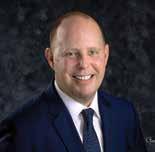




November 12, 2025
Doors open at 8:15 AM | The experience begins at 8:30 AM Sandy Springs | Exact location available upon registration
















November 12, 2025
Doors open at 8:15 AM | The experience begins at 8:30 AM Sandy Springs | Exact location available upon registration




Atlanta has been part of my story since I was three months old, and nothing brings me more joy than helping others discover their place in this city I love. With almost 7,000 sellers and buyers proudly served, my team delivers results with heart, hustle, and hometown pride.
"Zac Did It Again!" speaks to our consistency and our clients' confidence. Discover for yourself why we’re Atlanta’s Favorite Real Estate Team!
Zac Pasmanick, Team Leader ZacSellsAtlanta.com 404-564-7272 | zac@zac.biz


We’re Hiring! We have two open opportunities for a coachable agent with a great attitude and a strong commitment to customer service.




PUBLISHER
MICHAEL A. MORRIS michael@atljewishtimes.com
EDITOR & MANAGING PUBLISHER
KAYLENE LADINSKY kaylene@atljewishtimes.com
Execuitive Assistant
RONIT FRANCO-PINSKY ronit@atljewishtimes.com
EDITORIAL
Managing Editor
SASHA HELLER sasha@atljewishtimes.com
Staff Writer & Proofreader
FRAN PUTNEY fran@atljewishtimes.com
Interim Online Content Coordinator
ROBERT GARBER robbie@atljewishtimes.com
CONTRIBUTORS THIS ISSUE
ALLEN H. LIPIS
BOB BAHR
DAVE SCHECHTER
DAVID OSTROWSKY
DEBBIE DIAMOND
MARCIA CALLER JAFFE
RICH LAPIN
ROBYN SPIZMAN GERSON
ADVERTISING
Senior Account Manager & Team Supervisor
MICHAL BONELL michal@atljewishtimes.com
Account Manager ILYSSA KLEIN ilyssa@atljewishtimes.com
CREATIVE & DESIGN
Creative Director
LILLI JENNISON lilli@atljewishtimes.com
COMMUNITY ENGAGEMENT
Events Director
JACQUELINE MORRIS jacqueline@atlantajewishlifefoundation.com
Atlanta Jewish Connector Coordinator DIANA COLE diana@atljewishtimes.com
GENERAL OFFICE
ROBIN FREEDMAN info@atljewishtimes.com 404-883-2130
Distribution Manager LOU LADINSKY lou@atljewishtimes.com




The Coalition for a Safer Web (CSW) has identified a wave of pro-Palestinian and pro-Hamas protests being coordinated through both open and encrypted social media platforms, with events planned in major U.S. cities in the coming weeks.
According to CSW, several of the groups behind the protests also organized antisemitic encampments and demonstrations on college campuses

and in U.S. cities after the Oct. 7, 2023, Hamas-led attacks on Israel. Among them, the Democratic Socialists of America, the China-backed Party for Socialism and Liberation, The People’s Forum, and Within Our Lifetime, which has been linked to violent protests in New York.
The protests are being timed around major events, including the Jewish High Holidays in September, the United Nations General Assembly in New York,
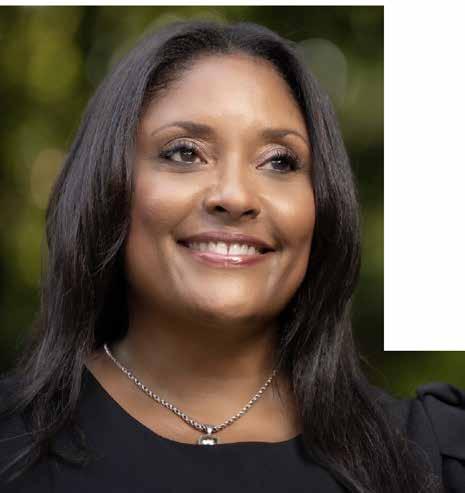
and at Israeli diplomatic outposts across the country.
“Authorities and the American Jewish community should take careful notice that despite a crackdown on campus-based demonstrations, pro-Gaza and pro-Hamas groups are planning protests designed to coincide with religious holidays, the UN General Assembly, and the reopening of universities,” said Ambassador Marc Ginsberg, CSW president.

“Several of these groups have incited violence against Jewish communities and targeted Israeli diplomatic facilities in the past.”
CSW said it will continue to track the groups’ activities and provide updates to law enforcement and Jewish community leaders.
The full schedule of planned protests is as follows, with several protests having already taken place.

AUG. 27: FREE PALESTINE FLAG & BANNER WAVING
Location: Kent, Wash./Kent Station | 4:30 p.m. – 6 p.m.
Target(s): None specified
Organizer: Party for Socialism & Liberation (PSL)
Source: Instagram
www.instagram.com/p/DNy9x0Q5FLI/?igsh=NjZiM2M3MzIxNA%3D%3D
AUG. 29: WEST COAST PROTESTS IN SOLIDARITY WITH PALESTINE TO STOP FUELING GENOCIDE
Location(s): Major west coast cities in California, Oregon, and Washington
Target: Chevron gas stations and highway bannering (allegedly supports Israel)
Organizers: United States Campaign for Palestinian Rights (USCPR), Palestinian Boycott, Divest, Sanctions National Committee (BNC), Democratic Socialists of America







The following is a roundup of developing stories related to Israel’s ongoing conflicts with Hamas, Yemen, and Iran.

U.S. President Donald Trump said in an interview that Israel “may be winning the [Gaza] war, but they’re not winning the world of public relations.”
Trump’s comments echoed ones he made several times last year during the presidential campaign, but he has not repeated the argument since returning to office in January.
He has recently begun reiterating his belief that Israel needs to end the war quickly and told the Daily Caller, “They’re gonna have to get that war over with… It is hurting Israel.”

Forces from the military and Shin Bet security service recovered the body of slain hostage Ilan Weiss in an operation in the Gaza Strip.
His body was recovered along with the remains of a second hostage, later identified as Idan Shtivi, a Nova festival photographer.
Weiss, 56, was killed on the morning of Oct. 7, 2023, while defending Kibbutz Be’eri from Hamas-led terrorists as a member of the emergency response team.
His wife, Shiri, and daughter, Noga, were also taken hostage and later freed during a weeklong truce and hostage release deal in November 2023. Noga was drafted into the IDF in May 2024.
Shtivi, 28, was a nature lover and photography enthusiast who had been studying sustainability and government at Herzliya’s Reichman University.
His body was identified at the Abu Kabir Institute of Forensic Medicine.
Shtivi left the Nova Festival in his car with two friends but was blocked by the terrorists on the road heading north. He then turned the car around and started driving south, but was driven off the road, lost control of the vehicle and hit a tree.
He was last seen in that location, and the car was later found full of bullet holes and blood. His friends’ bodies were found at the scene.
To read the full story, please visit: https://www.atlantajewishtimes.com/idf-recovers-body-of-slain-hostage-ilan-weiss/
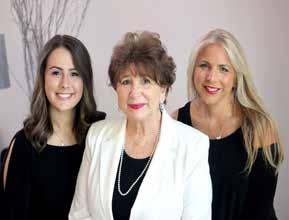

BAROCAS, REALTOR® (C) 678-852-3169
PEGGY FELDMAN, REALTOR® (C) 404-310-0895
AMY BAROCAS, REALTOR® (C) 404-790-0913
Trump asserted Israel had “the strongest lobby in Congress” 15 or 20 years ago but no longer does.
“There was a time where… if you wanted to be a politician, you couldn’t speak badly [about Israel],” he said. “Israel was the strongest lobby I’ve ever seen.. They had total control over Congress,” Trump said. Israel has “been hurt, especially in Congress.”
Trump added that he was “a little surprised” to see declining support for Israel in Congress. “People, they forgot about Oct. 7. You know, Oct. 7 was a truly horrible day, because I’ve seen the pictures.”
“And you know, you have people that deny it ever happened, they’re deniers. You have people that deny the Holocaust ever happened,” he continued. “So, they’re gonna have to get that war over with. But it is hurting Israel. There’s no question about it. They may be winning the war, but they’re not winning the world of public relations, you know, and it is hurting them.”
To read the full story, please visit: https://www.atlantajewishtimes.com/trumpongoing-war-is-hurting-israel-in-court-of-public-opinion/
Six people were murdered and 12 were wounded, six of them seriously, when a pair of Palestinian terrorists opened fire on vehicles and pedestrians in Jerusalem’s Ramot Junction.
The two gunmen, residents of the West Bank, arrived at the junction shortly after 10 a.m. — according to some reports, by car — and opened fire at people waiting at a bus stop as well at a bus that had just stopped there.

Police and rescue personnel at the scene of a terror attack at Ramot Junction near the entrance to Jerusalem, Sept. 8, 2025 // Photo Credit: Chaim Goldberg/FLASH90/Times of Israel
Police said that a soldier and a number of civilians who were present at the scene fired at the terrorists and killed them.
At least six others were listed in serious condition, as well as two whose status was moderate and three who were lightly hurt, according to MDA.
The dead were named as Levi Yitzhak Pash, 57, Yaakov Pinto, 25, Yisrael Matzner, 28, and Rabbi Yosef David, 43, Rabbi Mordechai Steintzag, 79, and Sarah Mendelson, 60.
To read the full story, please visit: https://www.atlantajewishtimes.com/terrorists-open-fire-on-jerusalem-bus-killing-six/

U.S. President Donald Trump’s administration is reportedly growing frustrated with Prime Minister Benjamin Netanyahu, after Israel bombed a meeting of Hamas leaders in Qatar while they were reportedly gathered to discuss a U.S.-proposed framework for a hostage-ceasefire deal.
Trump has made it clear that he was displeased by Israel’s strike — in no small part because it targeted Hamas leaders inside Qatar, a close U.S. ally — saying in its wake that it did not “advance Israel or America’s goals.” But he also stressed publicly that he believed “eliminating Hamas” was a “worthy goal.”
Yet a report by Politico suggested that the Trump administration was more frustrated by the situation than it has publicly let on.
“Every time they’re making progress, it seems like he bombs someone,” a person close to Trump’s national security team told Politico. “That’s why the president and his aides are so frustrated with Netanyahu.”
It was unclear whether the strike would impact efforts to reach a hostage release and ceasefire deal, but Hamas official Fawzi Barhoum said that the assassination attempt on the group’s senior leadership was “an assassination of the entire negotiation process.”
To read the full story, please visit: https://www. atlantajewishtimes.com/white-house-officialsfrustrated-with-netanyahu/ ì

By Marcia Caller Jaffe
Eighty Jewish Atlanta community leaders, many of whom were rabbis, convened at the home of Steven and Delilah Cohen on Aug. 27 to welcome the new Israeli Consul General to the Southeast, Eitan Weiss, who has held four posts in the past 18 years. Weiss began by commending Anat Sultan Dadon’s “six years in an amazing role here” as his predecessor and explaining that “diplomacy is not one man’s act.”
Earlier in the year, Israel’s Cabinet announced Weiss’ appointment as part of a group of new diplomats. The Atlanta consulate serves seven states: Georgia, the Carolinas, Tennessee, Kentucky, Alabama and Mississippi.
Weiss was recently director of export control in Jerusalem and previously head of the Israel Metaverse project. He later served as a deputy chief (Los Angeles Consulate) and held roles at embassies in Ottawa and Moscow (which Weiss described as “freezing and full of fun”). Before entering the foreign ministry, he worked as a customer service manager at Orange in Rosh Ha’Ayin, Birmingham’s sister city in Israel. Weiss has a degree in international relations and political science from Hebrew University, and a master’s in conflict resolution from Tel Aviv University. He served in Army Intelligence in the Israel Defense Forces.
Questions opened. JNF Director Beth Gluck sought Weiss’ takeaway from his California position. Weiss labeled Los Angeles as “an amazing widely ranged community … left, right, and large Orthodox community. We had candid respectful discussions.”
Owner and publisher of Atlanta Jewish Times, Michael Morris, asked Weiss what he needed to accomplish his goals. Weiss replied, “Not money. Be our eyes and ears with friends and families here and there where we come from a place of logic and pause before issuing a verdict.”
He especially referred to the younger generation hiding behind ignorance and social media.
Sabra Ronit Pinksy noted, “Our PR in Hebrew (Hasbara) as a country … Israel is not very productive and we are frustrated and struggling against the massive propaganda of our enemies and Hamas supporters, especially on social media. What can the Consulate and you, Eitan, do to combat it?"
Weiss replied, “Our values dictate that we will not lie … but everyone loves

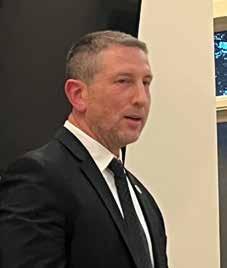


an underdog, and there’s so much propaganda … the media today is not ‘Edward R Murrow.’ It has an agenda.”
Weiss spoke of a biased article from a French source which he attempted to remedy, only to hear excuses of “improper translation,” and the reporter being hired to write the article with a negative slant.
Weiss spoke of Israel still “licking its wounds” post-COVID and Oct. 7, with tourism and GDP indicators.
“Tourism got a big hit, and the government helped it float,” he said. He told of his outreach to college campuses where he has encountered stone throwing and shouting over letting him speak.
The evening’s conversation segued to the United Nations and Australia and others officially recognizing Palestinian statehood. “It’s a slap in the face. At the UN, the odds are against us … being a political body of mostly third-world dictatorships. The resolution will pass.”
Weiss concluded with confidence. “I’m going to continue this race. Anat passed the baton in perfect shape.”
He pledged to build bridges with the local Black, Muslim, and Latino communities with “real dialogue.”
Delilah Cohen urged the community at-large to show up for events like Yom Haatzmaut, and said, “There is a vital need to strengthen the ties between the
Israeli and American Jewish communities here. We must not only act as one, but embrace our collective identity, and our differences, recognizing that we’re stronger together. While challenges such as language barriers and cultural differences may arise, it’s essential that we unite, as when one of us is hurt, we all feel the impact. Closing the gaps between our communities allows collaboration not only during these challenging times of rising antisemitism, but also for fostering positive initiatives in business, education, cultural events, and idea exchange. Together, we can build a more resilient, vibrant, and united Jewish community that benefits us all.” ì
Atlanta is full of interesting “movers and shakers” - some bent on creativity, empire building,activism and/or just plain having fun and living the good life. Lean in to hear some of the “off the cuff” remarks as to what makes the new Consul General of Israel to the Southeastern United States, Eitan Weiss, tick.
As Consul General, Weiss is responsible for overseeing and advancing all aspects of Israel’s bilateral relations throughout the Southeast. His previous post in the United States was as Deputy Chief of Mission at the Consulate General of Israel in Los Angeles. Most recently, Eitan served as the Director of the Export Control Department for the Ministry of Foreign Affairs where he was responsible for the regulation and supervision of military and controlled exports from Israel’s defense industries, which play a crucial role in safeguarding Israel’s national security and advancing its foreign policy interests. During the onset of the Swords of Iron War, after Oct.7, he took on additional responsibilities to ensure the security of supply chains for the IDF and Israeli security forces. Eitan’s diplomatic career also includes diverse positions at Israeli missions around the world. He served as the counselor for economic relations and international cooperation at the Embassy in Moscow followed by a posting in Ottawa as the Head of Public Diplomacy, Academic and Cultural Affairs before returning to Jerusalem to serve as the Deputy Spokesperson for the Ministry of Foreign Affairs. Eitan holds a master’s degree in conflict resolution from Tel Aviv

Prior to joining the ministry of foreign affairs in 2008, I was a flight attendant for El Al Israeli airlines. For almost five years, I traveled the world and learned about other cultures. But the most important thing that happened while working in El Al was meeting my significant other. In 2005, on a flight to New York City, I met my wife Dana, who was also a flight attendant. Working together as a couple for a few years was a
Though I met many famous people in my 18 years of working for the foreign service, I’m sorry to disappoint but I have never been star stricken by anyone other than my wife, especially when she
These days, all I read are reports about everything happening in Israel and other places of interests. When I had time, I read all sorts of novels and history books. Streaming? No thank you. I value silence
“Amazing” is not the appropriate word. I would use “enlightening.” There were many things I learned about Russia and Russians from the three years I lived in Moscow. And yes, it’s extremely cold there. I remember being in Siberia in February, it was -58 degrees Fahrenheit, and my face froze just from a five-
This is a trick question … though we are together for 20 years, I don’t have an answer to that. But I think it will be tied to her mood when
Everything. The people, the food, the hospitality … and even the traffic. Compared to the traffic in Israel, LA, Moscow and even Angola (I spent there two months holding the flag of our embassy, the

What’s the most important thing your parents taught
The basics. To eat, brush my teeth and the other usual stuff. Though I feel that when they tried to teach me more important things, I wasn’t really paying atten-
Marcia Caller Jaffe
By Bob Bahr
Representatives from Temple Emanu-El in Dunwoody teamed up with members of the Chinese Arts Alliance in Atlanta to commemorate the important historical ties between the two communities. The program, which was held at The Breman Museum, coincided with the current exhibit about China and Jewish life there, particularly during World War II.
The co-chair of Temple Emanu-El’s Interfaith and Intercultural program, Bob Grossman, praised the ties that have developed between the Atlanta temple and the Asian community that finally brought them together at the museum.
"When we first came together,” Grossman said, “our goal was simple. It was just to learn from one another, to explore our cultural traditions and to discover the values that we share. But what has emerged is something truly meaningful.”


The Breman’s exhibit, “Hidden History - Recounting The Shanghai Jewish Story,” runs until Oct. 12.
In China, there has been an active Jewish community for centuries and the kind of ties that the two groups have forged in Atlanta is not unlike the relationship that developed in one of China’s most important cities, Shanghai. Those historical ties are highlighted in a current exhibit at The Breman.
It’s called “Hidden History - Recounting The Shanghai Jewish Story.” It outlines the development of the Jewish community in the free and cosmopolitan environment of the Chinese city, once the fourth largest population center in the world.
There were Jews there over a thousand years ago. They were attracted by the plentiful business opportunities that stretched back from their former homes to the so-called Silk Road in Asia. And, as Rabbi Joseph Prass, director of Breman’s
It is my honor to serve you wherever you are in the city of Atlanta. I wish you a safe, joyous, and prosperous new year.
L’Shanah


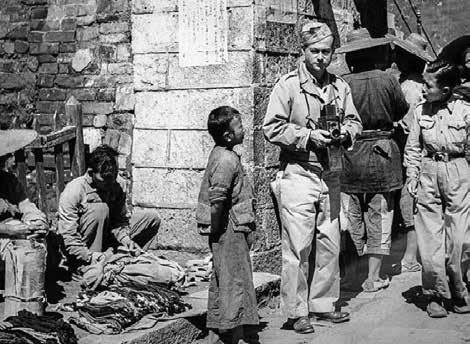
Many of the photographs in The Breman exhibit were taken just after World War II by Arthur Rothstein
Holocaust Education project, told his museum audience, word spread of the fortunes to be made in China.
“This is a place that we can exist,” Rabbi Prass recounted. “We can thrive, and we don’t face antisemitism like we do back in Europe.”
The first synagogue there was established during the Jin Dynasty in 1163 and over the centuries Jews maintained their traditional religious life while incorporating teachings from Confucianism and other Eastern cultural influences.
But it was not until 1843, when the British won their so-called Opium War with China that Shanghai was among five Chinese cities declared to be open ports. The cities were free to welcome newcomers to develop and expand existing networks for trade, transportation, and communication. The Jewish Sasoon and Kadoori families built fortunes that rivaled those of the Rothschilds in Europe.
But it was not until the Nazis took over Germany and the spread of antisemitism took on new life in Europe that Shanghai became a beacon of hope for Jews who had been denied refuge in country after country. As the exhibit recounts, as many 20,000 Jews fled persecution to make the long journey to relative safety in Shanghai. The journey for many of them was facilitated by a Chinese diplomat in Vienna, Feng Shan Ho, who issued as many as 5,000 visas for his country.
Even more remarkable was the work done by Chiune Sugihara, who was the vice-consul for Japan in Kaunas, Lithuania, a center of European Jewish life. Despite serving as a representative of a nation that was allied with Nazi Germany, he wrote, by several estimates, as many
as 6,000 exit visas for Polish and Lithuanian Jews facing almost certain death.
Even though Shanghai provided a refuge, it was a city under Japanese occupation during the war years. The thousands of immigrants were tightly packed into what was called the Hongkew Ghetto, of less than a square mile. There was widespread squalor and disease and life was difficult, but they and their Chinese neighbors endured.
After the war, their plight was documented by Arthur Rothstein, a Jewish American photographer working for the United Nations, which was rebuilding China. In an interview with the Canadian Broadcasting Corporation, his daughter, Annie Segan-Rothstein recounted how her father was well aware that his parents and grandparents had also escaped persecution before their journey to America. His photos of the Hongkew Ghetto, she says, portray his empathy for the people he photographed.
“I see beautiful images that tell a wonderful story of inclusion and tolerance,” she says, adding that she hopes “people can look at her father’s photos and learn to be more accepting of others.”
It was in much that same spirit that brought together the Jewish community of Temple Emanu-El and Chinese Americans at The Breman. Tracy Xu, an Atlanta insurance executive who played a key role in organizing the intercultural program, praised the bonds that have developed between the two communities.
“It is truly remarkable that today we stand together here with one identity, American, rooted in an ancient and proud tradition, Both of our communities have also faced immense struggles, yet, here we are tall and strong.” ì

We can’t ensure this Rosh HaShanah will usher in a peaceful year. But with your support, Magen David Adom can continue to be a source of light, hope, and lifesaving care to all Israelis — no matter what 5786 brings.
By Robyn Gerson
George Rishfeld, now 86, feels certain that his life at the fragile age of two was saved during the Holocaust for a deeper purpose. As a result, he has spent decades telling his story of survival and resilience and is dedicated to educating students and audiences about the Holocaust. His story has touched the hearts and minds of generations of all ages, while inspiring his own grandson to pen poetry to continue George’s mission.
Rishfeld shared, “We are losing most survivors, and I am concerned. As long as I can, I will keep talking.” Even as cancer threatened his voice, following radiation, Rishfeld has not slowed down and added, “Antisemitism has risen from a flame or flicker to a flash storm. We must tell the story. You see the phrase ‘never again’ has unfortunately turned into ‘again’ on Oct. 7.”
While Rishfeld still works, overseeing care packages for first responders, he is dedicated to educating the world, students and sharing his story. Following this interview, he was on his way to a rural area in Georgia to speak to 600 children about the
Holocaust presenting his 50-minute life story.
In 1939, Rishfeld’s beloved parents made a pact with a righteous Gentile family that no matter what happened to them, their child must be saved. Later in life, he recalled his mother telling him, “George, the only way to save you at the critical moment when we were being rounded up was to throw you over a barb wire fence to the daughter of the couple, we had made a pact with as we saw things unfolding.”
If they did not survive, this family would bring up George as their own child, in the Catholic faith. Rishfeld explained, “I’m told by my parents that I was thrown over the barbed-wire fence of the Vilna ghetto, into the arms of Helinka Franchevitz. Helinka took me home to the apartment she lived in with her parents, and they hid me for about three years. They whisked me off to their apartment in Warsaw and kept me safe as their own child.”
When the war ended, Rishfeld was five years old, and the year was 1945 when his parents’ story unfolded. He shared, “How my mother survived was because she could sew, making garments for the Nazis
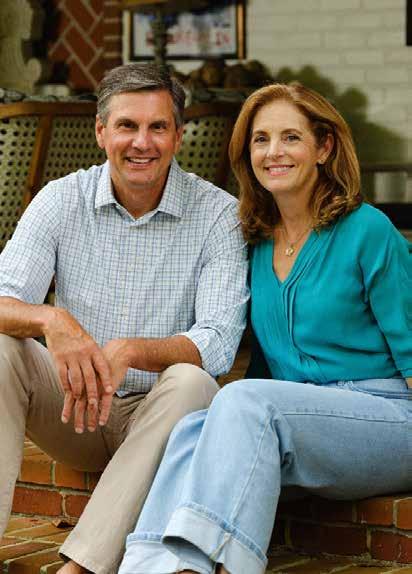
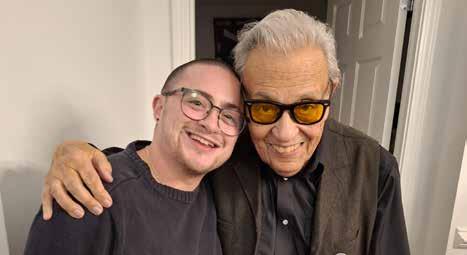
in a factory. The fact that my parents even reunited was a miracle. Following being liberated, she was standing on a train platform in Lithuania coming to find me, and my father showed up on the same platform wearing a Russian uniform he had stolen, as he had escaped from the ghetto in 1943. Ninety-five percent of the people were murdered, and my father had escaped and lived in a cave for 2 ½ years as part of
a partisan group. They thought the other was dead and as their eyes locked, in sheer disbelief, they ran towards each other, embraced and were reunited. They came and got me, and the rest is history.”
Fast forward to 2007. Rishfeld moved to Atlanta from California and, upon arrival here, he went to the Breman Museum and volunteered as a speaker. He said, “I’ve been speaking all over the Southeast ever
As you celebrate the start of Rosh Hashanah, Allison and I are wishing you a blessed holiday filled with health,

“While
Max Gresyon // Poem has been reprinted with permission by Max Greyson
since, including the Georgia Commission on the Holocaust, sponsored by the State of Georgia, and to numerous schools, colleges, churches, and private events, and the homes of both Jewish and non-Jewish community members.”
Rishfeld’s resilience has continued throughout his life, and explained, “It’s all about my mantra: ‘Better and better every day, in every way.’ I’ve stayed positive my whole life because I’m a survivor. It’s for my own well-being and the people around me. It’s that simple. My parents were very positive people. They were destined to survive, and they fought for that.”
Rishfeld added, “Most students are hungry for knowledge. They’re not getting the right perspective. They’re taught hatred by their peers, when they should be learning tolerance and positivity. I want them to be taught the meaning of tolerance, and then I want them to become it. We must know that what happened between 1933 to 1945 happened. It is not a myth, it’s not a legend, and it’s certainly not a fairy tale. More than 11 million innocent people were systematically murdered. History cannot repeat itself. Unfortunately, I’m watching it repeat today.
centration camp? Would it be soothing or depressing? I wondered if the birds sang in a sadder tune — after all, there was nothing they could do but watch. It wasn’t until my grandfather read my poem that my perspective shifted. He challenged me to reconsider this truth: Even during a horrific tragedy like the Holocaust, there were — and always will be — beautiful sunny days. Sunny days where you can look around, feel warmth on your skin, and listen to the birds. Days of gratitude, growth, and hope. You just must look and listen.”
Greyson added, “I hope we all find the courage to imagine life beyond our own experience; to see through someone else’s eyes and walk in their shoes. I hope people linger there long enough to feel not just the weight of each person’s story, but also the hope within it. I hope they will think critically, with an open mind and a compassionate heart.
“My grandfather came to share his story to my class in every level of my schooling from fifth grade to college and my Master of social work program. He brought the most amazing woman into my life — my Bubbie, my grandmother, his beloved Pamela. He teaches me important things about living life to the fullest. To say I’m grateful to him would be an understatement, I couldn’t
ever say enough to express my awe for him. When I witness injustice, I don’t remain silent, a proud Jewish man, born from a legacy of perseverance and unbreakable spirit.”
Max’s poem personifies George’s belief that, “Life is not easy to start with, and you must have open ears and eyes because history has a chance to repeat itself. You can’t avoid knowing, hearing, reading, watching and seeing what’s going on in the world. Keep your mind, your eyes, and your ears open. It’s part of a love story and how my parents reunited. It was serendipitous looking for me. Both sides saved me.”
Even with life’s ongoing challenges, Rishfeld continues, “I just lost my beloved wife, Pamela, and living in grief after 54 years. She was the love of my life, my soulmate. I still say stay positive; the glass is half full. I don’t look at the negative as it takes the same amount of energy to be positive vs. negative. The sun shines between your ears. Peace and kindness must exist to have a future and a good future. Righteous Gentiles saved me because it was the right thing to do. I feel the same way now as I educate others.”
Rishfeld added, “Last but not least, believe in something better. Without that, there’s no hope. We still must forge ahead working towards never again.” ì
Fortunately, the future isn’t written yet.”
Recently, Rishfeld’s grandson, Max Greyson, inspired by his grandfather, wrote a poem that he hopes will continue to share George’s story. Greyson said, “I’m honored to share my poetry. Since my early childhood, I’ve listened to the remarkable and heartbreaking stories of my grandfather and great-grandparents. They continue to both astonish and move me. I am a social worker, therapist, child forensic interviewer, and a passionate Jew. I am the eldest grandchild and great-grandchild to survivors of the Holocaust.”
Max shared how his grandfather inspired him to write the poem, “On a beautiful sunny day in May, I was sitting on my back porch, soaking in the sun, listening to the birds — observing nature. Nothing makes me feel more connected to G-d than when I’m with nature. But then a different thought popped into my head: during the Holocaust, while some of humanity’s darkest tales were being written, the birds must have still been singing. I considered how the birds sounded; how they might have hit the ear differently. What would it be like to hear a bird’s song in the torture of a con-

By Debbie Diamond
At Congregation Beth Tefillah’s fundraiser for Mikvah Mei Shifra, keynote speaker Charlene Aminoff shared her remarkable story of faith and determination, engaging and inspiring the more than 100 women in attendance.
As an influencer, international speaker, and founder of a couture wig company, Aminoff spoke candidly about the extraordinary moments in her own life where she has experienced the hand of Hashem working miracles. Aminoff has made it her life’s mission to share her personal stories of facing down an infertility diagnosis, an incorrect and potentially fatal ultrasound reading, her daughter’s drowning, and now a recent diagnosis of cancer.
With her unwavering belief in the restorative and purifying power of the mikvah, she was the perfect choice for the event. “I chose Charlene as our speaker because her belief in the mikvah and Hashem is so strong. I felt like women would be touched and inspired by her stories, as well as her presence,” said Rob-



in Varon, event chairperson.
In addition to Varon, chairs for the Chinese Auction were Mira Liniado and Jessica Kraitzick. The festive and beautifully decorated event was filled with pink and white flowers, dimmed lighting and candles. The vibrant crowd noshed on appetizers, sushi, desserts, specialty
drinks and cocktails – all while supporting the continuing operations of Mikvah Mei at Congregation Beth Tefillah.
When Aminoff took the stage, she began by recounting her awareness of the significance of Hashem’s hand in her family’s life. After being told by a fertility specialist “to give up on having biologi-
cal children of (her) own,” she and her husband were blessed with five biological children. She attributes this turn of events in large part to her steadfast devotion to Hashem, Torah, and mitzvot. Her journey of faith deepened when, shortly after that infertility diagnosis, she became pregnant with her oldest

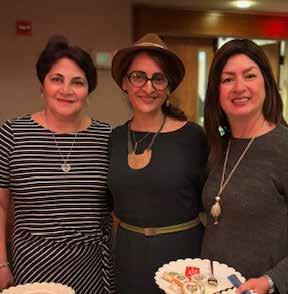
child. During an early scan, a team of doctors entered the exam room and warned of several abnormalities they saw and urged termination. Overwhelmed, the couple sought a second opinion. That night, Aminoff turned to the mikvah, pouring out her heart to Hashem.
“As my tears hit the water, I decided then and there that I would become closer to Hashem. I had grown up in an observant family but still wore pants. I decided to stop wearing pants as the first step in my unfolding journey. I also spoke with my rebbe, who told me that I would have a healthy baby boy,” Aminoff shared, as the women listened intently.
Only days later at another ultrasound with a specialist, the physician laid down his scanner and looked deeply into the Aminoffs’ eyes. “You have a healthy baby boy here. I can only imagine the other scan was done on faulty equipment, and I will let their office know,” he said. Incredulous and with absolute joy, they left the office eager to welcome their firstborn son.
Years later, another test of faith emerged. Aminoff recounted looking out over the ocean from the balcony of her second home in Miami, marveling at the most beautiful indigo sky she had ever seen. In that moment, she marveled at her good fortune – a lovely family of two boys and two girls, a life she embraced and a loving husband. She had no idea what awaited her the following day.
She and her husband had decided to rent wave runners in the afternoon for the three oldest children while their youngest daughter, Gali, would stay back at the pool with their housekeeper. As the family made their way back from the beach, they discovered chaos at the pool. Gali, then two years old, had been pulled from the water, limp in a stranger’s arms. They immediately shouted for an ambulance. Aminoff’s husband began CPR. As he worked on little Gali, Aminoff began praying and saying tehillim. She
pulled a towel from a chair to cover her shoulders and wrapped a blue scarf that had been left poolside around her hair. As she tells it, she beseeched Hashem on Gali’s behalf, praying for her survival. Once again, she promised herself that she would dress even more modestly, eliminating bathing suits, and vowing to cover her hair at all times. And she kept praying!
Later, the couple learned that their beloved daughter had slipped into the pool while their housekeeper had fallen asleep. The “stranger” who saved Gali told them he never went to the pool during his many stays over several years at the complex. On that particular day, however, his business meeting had been delayed due to flights being postponed. With the additional time in his schedule, he had intended to go to the gym for an hour but was enticed by the same beautiful sky Aminoff had seen the day before and decided to visit the pool instead. As he finished his swim, he encountered what he initially thought was a ball at the end of the pool. That ball turned out to be Gali, and she just happened to be right by where he had chosen to exit the pool. Simply a series of coincidences perhaps? Aminoff is certain the hand of Hashem was at work.
The next day, doctors at the hospital shared the good news that Gali had no discernible brain damage despite being underwater and without air for more than three minutes. In fact, Gali was released the following day and has experienced no problems to date.
Today, Aminoff faces a new challenge – a cancer diagnosis earlier this year. Yet with the same resilience and faith with which she has faced every challenge, she believes her commitment to Hashem will continue to sustain her through life’s trials.
And for any inquiring minds: Aminoff told audience members that she did not fire the housekeeper who fell asleep while watching Gali. Instead, she followed the advice of her rebbe, who told her to look at it as an opportunity for forgiveness and personal growth – that is until much later when the housekeeper stole from them. And as for the first doctor who told her to give up on her dream of having biological children -- he has a large gold-framed photo of the sevenmember Aminoff family in his waiting room with a plaque that states, “Hashem is the ultimate doctor,” courtesy of the Aminoffs.
To donate to Mikvah Mei Shifra, please visit https://www.bethtefillah.org/ payment.php and indicate for Mikvah when asked to select “Type.” ì

Wishing you a New Year that is fruitful and sweet, filled with everything that means the most to you.
L’Shanah Tovah.
- Carr Family

Senator Brian Strickland extends his warmest regards to the Atlanta Jewish community. May we all work together for a brighter future.

By Dave Schechter
Ann Hite is determined that Lucille Selig Frank be remembered as more than a footnote in the life and death of her husband, Leo Max Frank.
The acclaimed author’s new biography of Lucille Frank — “I Am A Georgia Girl,” published by Mercer University Press — was celebrated at a Sept. 8 talk and book signing for an audience of about 100 people at the Cobb County Public Library in Marietta.
Answering questions from the AJT prior to the event, Hite said, “My goal with writing this book is to tell Lucille’s truth that no one really seemed to care about when she was alive. Pretty much most wanted all that happened to Leo … 110 years ago, to go away, fade into the background, and be forgotten. I couldn’t let that happen.»
Hite’s fascination with the story began more than 50 years ago, as a 9-yearold, hearing her grandmother describe seeing Leo Frank’s body hanging from the tree in the Marietta woods where he was lynched at sunrise on Aug. 17, 1915.
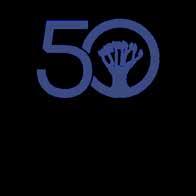

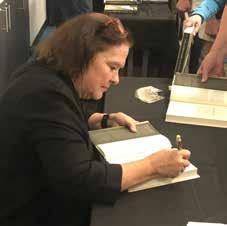

Hite’s grandmother, then just 6 years old, was brought by her father, from their home in Forsyth County, as some 3,000 people came to the site, many in a festive mood. Frank’s body was left hanging for hours before it was removed.
The book’s working title had been, “Lucille Selig Frank: The Wife Of Leo M. Frank and Echoes of The Mary Phagan Murder Case.” Hite acknowledged that,

“I have never been good with titles, and the original title of this book was an effort to remind readers who Lucille was in history because so very little was written about her. It was very long and clunky.”
The new title was adopted after Mary Beth Kosowski, the Mercer University Press marketing director, reminded Hite of Lucille Frank’s last public statement, made to the Augusta Chronicle: “I
am a Georgia girl, born and reared in this state, and educated in her schools. I am a Jewess.”
The full quote “gave me a window into who Lucille Selig Frank was,” Hite said. “In her own way, Lucille was reminding the public that the killing of Leo had wide-spreading repercussions for them and others.”
Hite devoted more than a decade to


research and writing before submitting the manuscript in the summer of 2024. Her connection to Lucille Frank has deepened since in a way she could not have foreseen.
Early this year, Hite was introduced to Chuck Marcus, a great-nephew of Lucille Frank. Marcus’ grandmother, Sarah Selig Marcus, was Lucille’s oldest sister.
“Our phone conversation was a gift. Chuck was 13 when Lucille died in 1957, so he could remember what she was like. He filled in the gaps of her later years, who she had become,” Hite said. “Chuck told me he had a gift he wanted me to have, and I would need a truck to pick it up at his home. My time at Chuck’s home was amazing. He had many of Lucille’s possessions. One of them was Lucille’s writing desk. This was the gift he wanted me to take home.
“You can’t imagine how it felt for me to receive this desk. You see, when I began this book, I worried about doing Lucille justice. I knew how private she was and worried about exposing her story. When I received this beautiful desk, I couldn’t help but think somehow Lucille was giving her approval. A nod to my effort to tell her truth,” Hite said.
“The desk is a treasure to me, a full circle moment,” she said. “I did all the edits to ‘I Am A Georgia Girl’ at Lucille’s desk, and many times I felt sure she was looking over my shoulder. Today, with the book in print, I continue to write at this desk. I can only be inspired by someone as brave as Lucille.”
Marcus told the AJT that Hite was gifted the desk “as an appreciation token of her research and work that honored Lucille. It was such a pleasure doing this from myself and the family.”
The book is a change of pace for Hite, the author of more than a dozen works of fiction, most set in and around Black Mountain, N.C., and involving ghosts or spirits. Her debut novel, “Ghost on Black Mountain,” received a 2012 Georgia Author of the Year prize. She has been shortlisted for other honors.
“Writing ‘I Am A Georgia Girl’ came from a deep need to tell Lucille’s story,” Hite explained. “I have four daughters and three granddaughters, and Lucille’s story serves as a mentorship to them and any young woman who knows it. What happened to Lucille and how she handled the circumstances are so relevant to 2025.
“The newspapers painted Lucille as a weak hysteric, like they did most women at the time. Yet, she wrote two letters to the newspapers at the time Leo was going to trial for Mary Phagan’s murder. The first letter addressed Hugh Dorsey, the prosecutor of Leo’s case, for his handling or mistreatment of Minola
McKnight, the Seligs’ cook, while getting her statement. When Dorsey answered her back in the same papers, he played her concerns down, marginalizing her views. Lucille promptly wrote a second letter, firing back her thoughts. At the time, ladies were not to have opinions. Lucille did and voiced them. She went on to fight tirelessly to save her husband’s life and prove his innocence.”
In 1913, Frank, a 29-year-old, Cornell University-educated engineer — and a Texas-born Jewish transplant from New York City — was superintendent of the National Pencil Company factory in downtown Atlanta. On April 26, Phagan, a 13-year-old employee from Marietta, came to pick up $1.20 owed her for work done the previous week. Her body was discovered the next morning in the factory basement. Three days later, Frank was arrested and charged with murder.
Following a trial that generated sensationalistic newspaper coverage, Frank was convicted on Aug. 25, 1913, sentenced to death, and sent to the state prison farm in Milledgeville. His appeals, including to the Supreme Court of the United States, were denied.
On June 21, the day before the scheduled execution, Gov. John Marshall Slaton commuted the sentence to life imprisonment. Late on the night of Aug. 16, Frank was kidnapped from the prison and driven to a Marietta farm belonging to former Cobb County Sheriff William Frey.
The kidnapping and lynching were carried out by a cabal calling itself the Knights of Mary Phagan, organized by prominent citizens of Marietta and Cobb County. No one was prosecuted for Frank’s murder.
Hite said that her grandmother told her: “I can only say that no person, no matter what, should ever be treated like he was treated that day.”
The Georgia Board of Pardons and Paroles granted a posthumous pardon in 1986 without judging Frank’s guilt or innocence, but “in recognition of the state’s failure to protect the person of Leo M. Frank and thereby preserve his opportunity for continued legal appeal of his conviction, and in recognition of the state’s failure to bring his killers to justice, and as an effort to heal old wounds.”
The Cobb County library is a short drive from both the site of the lynching and Phagan’s grave in the Marietta City Cemetery. Leo Frank was buried in the Mount Carmel Cemetery in the New York City borough of Queens. Lucille Selig Frank’s ashes were buried in the Oakland Cemetery in Atlanta, between the headstones of her parents. ì

As we enter this sweet new year, our family wishes you and your loved ones a joyous and meaningful Rosh Hashanah and Yom Kippur! May this new year bring good health, prosperity, and happiness into your lives. - The Kennedy Family

By Marcia Caller Jaffe
Ophira Eisenberg, standup comic, writer, and host of the “Parenting is a Joke” podcast, performed at the Marcus Jewish Community Center of Atlanta (MJCCA) on Aug. 17 to a room full of devoted fans and a few who came out of curiosity in hopes of having some new laughs.
Brooklyn natives Cindi and David Stern, positioned on the second row, had fond memories of doing volunteer work with Eisenberg back in New York and are fans of her podcast. As a special bonus, octogenarian home-grown comedian Jerry Farber preceded Eisenberg and warmed up the crowd.
Farber, who is always quick on his skinny feet, began his set noting that he might not have new material since he was recycled now four decades ago; but mostly he did have it. Those who followed Farber through his dating, late in life marriage, and child rearing, were thrilled to see now grown son, Rocky, take a bow in the audience. Sparing no one from a joke, Farber joshed that Rocky was still in


MJCCA PreK preschool. Farber harkened back to his own childhood days in North Carolina, home of the Klu Klux Klan. “What were my


parents thinking of moving there from Baltimore?” He bantered about Rabbi Brian Glusman. MJCCA Rabbi, gambling whether a man might jump off a building
on TV news … “It’s just that one of them had already seen it happen live earlier.” Farber then held up two huge posters … one of his own head atop a Herculean

body.
Eisenberg, taking the stage in casual attire, was very down to earth, and as audience fan Sarah Katler said earlier, “She is relatable.”
Eisenberg’s first schtick was making fun of the unusualness of her own name … even writing on a Starbucks cup and as a Jewish version of Oprah.
“I’m like the Eunice of Tel Aviv, the Mabel of Jerusalem.”
Being on Dunwoody turf, she had note cards about how visitors ranked Atlanta’s tourist spots. First, she bantered about hotel front desk employees getting asked dumb questions like, “Do the windows open so I can get fresh air and is the air fresh 24/7 if you walk outdoors?”
She joked that the Georgia Aquarium is “too expensive unless I can take a fish home” … “The World of Coke has sticky floors.”
Reading Yelp reviews about the Atlanta Botanical Garden, she joked, “It seems like more of a park, than a garden … I came in February and everything was dead.”
Like Farber, Eisenberg also shared about her childhood as she described her parents’ journey from Israel to Newfoundland, Canada. “What were they

thinking? My father came in 1958 to give bar mitzvah classes … to whom?” They then moved to Calgary where her father was indeed head of the Hebrew school where they were “not rich. Think of working class … Hebs for Hire, W2 Jews, DIY Jews.”
Bottom line: she was indeed relatable by being casually conversant with the audience.
Later, while speaking with the AJT, she said, “I love Atlanta, my only complaint was that I could only be there for all of 24 hours this time around because of a few shows in a row, but it is one of my favorite cities, and it has incredible restaurants and food. Next time, I need additional time to dine … sometimes audiences are tougher on female comedians. All the feedback I received was overwhelmingly positive after the show; and it was so nice to meet and talk to some of the people that came. There were also a bunch of newer standup comics that came with Jerry Farber, and that’s always cool and great to talk to after the show. In general, I’m always working and building my act; and I put together certain jokes and stories that I think will work for the crowd and setting I’m performing in. And then my job is to sell it and perform it." ì
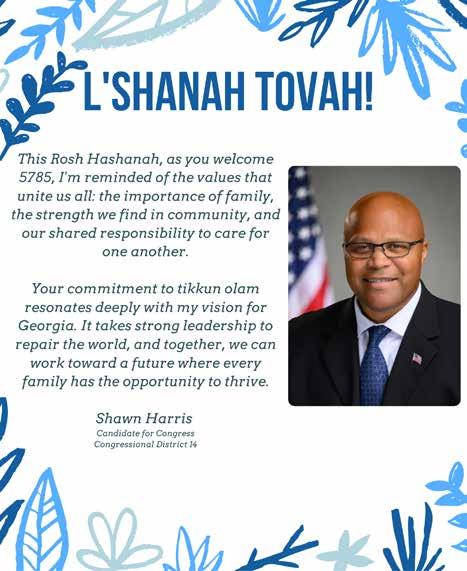
By Marcia Caller Jaffe
No Jews arrived in yachts, but on Aug. 24, approximately 1,100 music fans grooved to the mellow sounds of a yacht rock outdoor concert at the Marcus Jewish Community Center of Atlanta. The concert was held on the newly reimagined Halpern Plaza Courtyard and the new Heyman Stage (Heyman Family Foundation). DJ Mello served as the opening act before the 7 p.m. concert start. Interestingly, the main act, Yacht Rock Revue, comprised of seven men and one female, performed the previous night at the Chastain live concert venue (now Synovus Bank Amphitheater).
The evening was part of the culmination of a Capital Campaign Donor roll out for the MJCCA Dunwoody campus transformation with facility enhancements and expanding programs. A representative of the JCC said, “We wanted a way to celebrate the capital campaign and mark its conclusion with the community, hence the idea for the concert.”
Sponsors and those buying VIP tickets had seats and up-close access to the

stage. Others mingled in the rear section (and brought their own seats) for $36. Front courtyard seats were $72. Kosher food trucks were available as the blue


skies remained clear.
Yacht rock is a style of smooth, soft rock music that bloomed in the late 1970s and early 1980s, based in Los Angeles.
The actual term was coined decades later in the mid-2000s as a tongue-in-cheek label, but since has become the accepted name for the genre. Yacht rock plays on


the idea of wealthy West Coast lifestyles, where the music felt like the perfect soundtrack for relaxing on a yacht in the sun — smooth, sophisticated, and a bit decadent.
Many yacht rock bands used elite session musicians (like Toto) who played on countless records. The sound is smooth and polished with lush arrangements. There are also jazz & R&B influences with frequent use of jazz chords, electric piano, saxophone, and breezy rhythms. Yacht rock themes include romantic escapism, California lifestyle, sailing, heartbreak, or self-reflection with clear vocals often with layered harmonies.
Some of the most famous yacht rock original acts include:
Michael McDonald/The Doobie Brothers (“What a Fool Believes”)
Steely Dan (“Peg”)
Toto (“Rosanna,” “Africa”)
Kenny Loggins (“This Is It”)
Christopher Cross (“Sailing”)
Hall & Oates (“Sara Smile,” “Kiss on My List”)
Fan Sandy Bailey recalled that the MJCCA crowd’s best reactions were to Sade’s “Smooth Operator,” Van Morrison’s “Brown Eyed Girl,” Hall and Oates’ “I Can’t Go For That (No Can Do), and Toto’s “Africa.”
Co-Chair and MJCCA Board Member Michelle Simon related, “There could’ve been no better way to show off the beautiful newly imagined MJCCA, and the fruits of the successful capital campaign, than with a community-wide music festival featuring yacht rock. The celebratory feeling of all those in attendance was a living testament to our shared purpose in creating such a wonderful space for our vibrant Atlanta Jewish community.”
Parking was off-site with shuttles to and from the First Baptist Church nearby. Bailey further stated, “The crowd was very convivial and mixed with all ages. A few danced, but not many. I will say the security was really visible and top notch.” ì
Joined the Fir m, 2009; West Highland Terrier; Specialist in Strategic Napping, Lobby Security, and Midday Snack Negotiations

Hi there,
It’s me, Henry! As the leaves change and the air gets crisp, I’ve been thinking about what matters most: home, family, and making sure everyone and everything is looked after.
Just like raking leaves, estate planning is one of those things that’s easy to put off. But trust me, it feels so much better when it’s done Whether you ’ re updating your will, setting up a trust, or planning for future care, now is the paw-fect season to get things squared away.
You can sniff out more infor mation on our website anytime. While you ’ re there, don’t miss the chance to sign up for our free educational webinars and monthly newsletter The humans are great at explaining the serious stuff, and I make sure they don’t bury the lead or the treats Give us a call at 770-229-5729 to fetch yourself an appointment to give you and your family some peace of mind this fall.
Tail wags and treats, Henry Goldberg Chief Love Off icer & Proud Leaf Chaser
By Marcia Caller Jaffe
Ahavath Achim Synagogue’s Committee on Response to Hate and Antisemitism will showcase the award-winning documentary, “Refuge,” on Sept. 25, followed by a conversation with the producer and one of the film’s subjects.
Produced by Erin Bernhardt, an Atlanta native, the film takes place in Clarkston, Ga., one of the most diverse cities in the U.S. where more than 40 languages are spoken by residents. The film focuses on the community of Clarkston, but also is about the friendship between Dr. Heval Kelley, now a practicing cardiologist at Northside Hospital, and Chris Buckley, a former white nationalist and leader of the KKK in North Georgia.
The film follows Buckley’s journey from hate to understanding with the help of, first, a deprogrammer whom Chris’ wife, Melissa, found on the Internet, and then his evolving friendship with the Muslim doctor (Heval). Although there is no charge for admission for the Sept. 25 screening, viewers must register.
The program is co-chaired by Drs. Marianne and Stephen Garber, and Margie Eden.
Following the film, Erin and Chris Buckley will take part in a conversation. They are particularly interested in sharing actions that audience members can take to combat hate. The movie explores themes of empathy, understanding, and resilience through the film and the subsequent conversation.
Therapist Dr. Marianne Garber, stated, “When I watched the film, I was both incredibly impressed with Clarkston and equally moved by how important it is to step forward and reach out. I was nervous about calling Chris … but he was so
warm and welcoming to me. He recognizes how his past colored his perspective and seeks to help reach out to others whose past interactions could affect their present feelings.”
Also a therapist, Dr. Stephen Garber related, “’Refuge’ shows that it is possible for individuals to move away from deep seated hate, and communities can help others learn to understand and accept those who are different from them. Seeing the world as ‘us vs. them’ leads to so many problems. Finding our common humanity is the solution. This hopeful message is even more important now than ever.”
It’s certainly not a new concept that one-on-one friendships can change the trajectory of otherwise miserable or unfortunate outcomes.
Some feel that the current atmosphere in the U.S. leans towards being divisive, and that Clarkston is an exemplary beacon of hope. This writer recalls a film and book, “Outcasts United - The Story of an American Town, A Refugee Team, and One Woman’s Quest to Make a Difference,” by Warren St. John, about a young female Jordanian coach in Clarkston who took on Black, brown and white boys, some barefoot, playing soccer on every flat surface they could find. Despite obvious local challenges like equipment, fields, and uniforms, the team’s spirit broke a lot of barriers.
Known as the most “diverse square mile in America,” Clarkston is in DeKalb County with a population of 14,756. The “Bitter Southerner” labeled it the “Ellis Island of the South.” The diversity is a result of a refugee resettlement program that began in the 1990s identifying Clarkston as an ideal location due to its proximity to Atlanta, public transporta-


The movie,
explores themes of empathy, understanding, and resilience and will conclude with a meaningful panel discussion.
tion, and affordable housing. Non-Hispanic whites make up only 10.7 percent of the population base.
“Refuge” won Best Feature Film and Audience Award in the 2022 Atlanta Film Festival. It has received accolades in multiple film festivals in Breckenridge, Cleveland, Virginia, and Sedona, and DOC NYC including jury and programming acclaims.
According to Lauren Dyckman, director of congregational engagement and events, “We are excited about the positive response we have received about the screening. Also, the event will have
appropriate security in coordination with the advice of the Ahavath Achim security consultants and representatives of the Jewish Federation of Greater Atlanta.” Dr. Marianne Garber noted that Jewish day schools, other synagogues, Christ the King Church, Marist School, Jewish Education Loan Fund, Jewish Women’s Fund of Atlanta, SOJOURN, JBar (Jewish Bar Association), National Council of Jewish Women and others are promoting the screening.
To register, please visit: https://aasynagogue.org/event/screening-of-refugeand-panel-discussion/ ì



D i s c o v e r W h a t M a k e s U s
D i f f e r e n t
Sunkissed
Swimming
Pool
Sensations Dining
Health & Fitness Center Art Studio
c t i v i t i e s a n d e v e n t s t o i n d u l g e n t i n r e s o r t - s t y l e
a m e n i t i e s , w e p r i o r i t i z e y o u r c o m f o r t b y o f f e r i n g
a l l e s s e n t i a l s e r v i c e s , a c t i v i t i e s , a n d c a r e i n o n e
c e n t r a l i z e d l o c a t i o n A t H e a r ti s B u c k h e a d , w e
r e d e f i n e s e n i o r l i v i n g , c r e a t i n g a h a v e n w h e r e
e v e r y m o m e n t i s t a i l o r e d t o e n h a n c e y o u r
w e l l b e i n g , a l l o w i n g y o u t o l i v e a l u x u r i o u s l i f e o n
y o u r t e r m s




By Dave Schechter
Jewish Democrat Debra Shigley is one step away from a seat in the Georgia Senate.
Shigley will face a Republican — likely Jason Dickerson — in a Sept. 23 runoff to fill an open seat in Georgia Senate District 21, which takes in a large portion of Cherokee County and a piece of northern Fulton County.
Sept. 23 also is Rosh Hashanah, the Jewish new year, which begins at sunset on Sept. 22 and concludes at sunset on Sept. 24.
Georgia election law requires that a runoff be four weeks after the primary, one of the major changes made by the Republican-controlled legislature after the 2020 election.
”I’m looking forward to celebrating Rosh Hashanah that morning and we’ll encourage folks to vote early the prior week,” Shigley said.
Early voting began Sept. 15 and runs through Sept. 19.
The Jewish Community Relations Council of Atlanta issued a statement

critical of the runoff scheduling: “The scheduling of the runoff election for State Senate District 21 on Rosh Hashanah, one of the holiest days of the Jewish calendar, is deeply concerning and highlights the insensitivity of this decision. Our Jewish community should never have to choose between religious observance and civic participation. We strongly urge election officials to ensure this oversight is never

As the only Jewish candidate for Sandy Springs City Council, Andrew Chinsky would appreciate your vote and support for District 6, which encompasses areas west and south in Sandy Springs including Riverwood, Temple Sinai, and One River Place.
Andrew’s family has long been part of our community. His wife, Allie (Maron), attended the Greenfield Hebrew Academy (now Atlanta Jewish Academy), and they were later married by Rabbi Heller of B’nai Torah. Andrew’s children attend The Davis Academy and Temple Sinai Preschool.
Professionally, Andrew is an in-house attorney for a national business based in Atlanta, and he holds a bachelor’s degree in
public policy from the University of Michigan and a law degree from Harvard Law School. Andrew also graduated from Leadership Perimeter and the Sandy Springs Citizens’ Leadership Academy.
The Chinsky family now has four generations living within a 10-minute drive of their house, ranging in age from 2 to 92. Andrew wants to ensure the future of Sandy Springs remains bright for young families and seniors alike with a focus on safe streets and communities, parks and playgrounds, and creating walkable spaces around City Springs.
Please visit www.andrewchinsky.com to learn more about the campaign.

repeated.
“We call on state leaders to be more mindful of Georgia’s diverse faith communities when setting election calendars, and we reaffirm our commitment to ensuring all citizens can fully participate in the democratic process without compromising their religious practice,” the JCRC statement said.
Shigley, with 39.51 percent, topped the overall vote count in the Aug. 26 primary, beating six Republicans. Unofficial results showed Dickerson with 17.36 percent of the vote and Steve West 17.04 percent, with five others further back.
The runoff is required because no candidate received a majority of the votes cast.
The seat was vacated when Republican state Sen. Brandon Beach was appointed Treasurer of the United States by President Donald Trump.
Shigley was the leading vote getter in Cherokee County, with 26.85 percent, trailed by West with 24.08 percent. In Fulton County, Shigley held 62.12 percent, far ahead of Dickerson with 13.58 percent.
Voter turnout was estimated at 15 percent in Cherokee County and 13 percent in Fulton County.
“My team and I are more than ready to continue this historic momentum,” Shigley said. “I am very proud of the campaign we have run so far, and it is clear that our vision - for an affordable, healthy, educated Georgia where working families can thrive - is resonating with our neighbors. We are ready to push to the finish line and make sure that we can bring that vision to life under the Gold Dome.”
At present, Fulton County Democratic Rep. Esther Panitch is the only Jewish member of the General Assembly. A single Jewish legislator accounts for 0.04 percent of the General Assembly. An es-

timated 1.3 percent of the state’s population is Jewish.
The Atlanta Journal-Constitution noted a disparity in how the Shigley and Dickerson campaigns were financed going into the primary. Dickerson, the president of Purple Chip Capital Management, had loaned his campaign $500,000 in personal funds and received one other campaign contribution of $100. Shigley had raised about $141,000, most of the money in small contributions.
Shigley, 46, received her undergraduate degree from Harvard University and her law degree from Georgia State University. She has worked as an employment attorney and was co-founder of a company called Colour, a technologybased hair care service for women of color. She and her husband, Kevin, are the parents of five children.
In 2024, Shigley won the Democratic primary in House District 47 but was defeated in the general election by 12-term Rep. Jan Jones, the second-ranking Republican in the House, who received 62 percent of the vote.
Beach represented Senate District 21 from 2013 until May, when he took office as the 46th Treasurer of the United States. Beach, a staunch supporter of Trump, backed efforts to overturn Georgia’s 2020 presidential election results. Beach won more than 70 percent of the vote in 2024 (outperforming Trump).
Republicans currently hold a trifecta under the Gold Dome, with majorities in the House and Senate and Gov. Brian Kemp as the state’s chief executive. Republicans hold 100 of the 180 seats in the House and 33 out of 56 seats in the Senate.
State representatives and senators are paid $17,342 plus per diem annually for their part-time jobs. State Senate districts average 191,000 residents and state House districts 59,500. ì




Delta Resumes Tel Aviv Service from JFK
Delta will resume daily flights to Tel Aviv (TLV) from New York-JFK on Sept. 1,
Sept. 15, 1891: Journalist-novelist Moshe Yaacov Ben-Gavriel is born in Vienna, Austria. An Austrian soldier in Jerusalem in 1917, he fights for the British in World War II, then shifts from newspapers to novels and short stories.
Sept. 16, 1977: In talks kept secret even from the United States, Israeli Foreign Minister Moshe Dayan meets in Morocco with Egyptian Deputy Prime Minister Hassan Tuhami to assess each side’s willingness to negotiate toward peace.
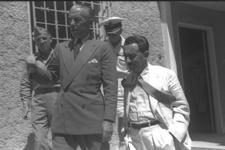
Count Folke Bernadotte meets with Israeli Foreign Minister Moshe Sharett at HaKirya in Tel Aviv on Sept. 9, 1948, eight days before Bernadotte’s assassination. // National Photo Collection of Israel
Sept. 17, 1948: Count Folke Bernadotte, a Swedish mediator who negotiated a onemonth Arab-Israeli cease-fire in June, is assassinated by Lehi (the Stern Gang) over his plan for a permanent peace with an international Jerusalem.
Sept. 18, 1918: Champion swimmer Judith Deutsch is born in Vienna, Austria. She joins fellow Austrian swimmers Ruth Langer and Lucie Goldner in refusing to go to the 1936 Olympics in Berlin and later makes aliyah.
2025. The route will be flown on Delta’s state-of-the-art Airbus A330-900neo, offering four product experiences: Delta One, Delta Premium Select, Delta Comfort and Delta Main.
Seats on Delta partner airlines Air France and KLM also remain bookable.
For more information, please visit: https://news.delta.com/delta-resumestel-aviv-service-jfk-sept-1.
In February, the Georgia Solidarity Network crafted a letter petitioning Delta to resume nonstop flights to Tel Aviv and asked community members to sign the letter. The letter noted that reinstating this route would not only benefit travelers but also foster stronger economic, cultural, and diplomatic ties between the Southeastern United States and Israel.
Compiled by AJT Staff
Sept. 19, 1988: Israel becomes the ninth country with a space capability, launching the 340-pound Ofek 1 satellite. Named for the Hebrew word for horizon, Ofek 1 completes an Earth orbit every 90 minutes.
Sept. 20, 1931: Actress Haya Harareet, best known as Judah Ben-Hur’s love interest Esther in 1959’s “Ben-Hur” remake, is born in Haifa. She appears in Israeli, Italian, U.S. and British films from 1955 to 1964.

21, 2008.
By
Sept. 21, 2008: Facing corruption charges on which he later is convicted, Prime Minister Ehud Olmert resigns. A Knesset election in February 2009 results in Benjamin Netanyahu’s return as prime minister.
Sept. 22, 2000: Yehuda Amichai, the poet laureate of Jerusalem, dies of lymphoma at 76. Themes of war, peace and loss are prominent in his poetry, which has been translated into more than 40 languages.
Sept. 23, 1920: Rabbi Ovadia Yosef is born in Baghdad. He moves to Jerusalem at age 4. He is Israel’s chief Sephardi rabbi from 1973 to 1983, then serves as the spiritual leader of Orthodox Sephardi political party Shas.

hosted its End-ofSummer Party at its Jerusalem Aliyah campus // Photo Credit: Kineret Rifkind
End-of-Summer Party at its Jerusalem Aliyah campus.
This summer was truly historic, highlighted by the landing of the organization’s 65th charter Aliyah flight and August reaching the highest monthly record of Aliyah in 25 years with more than 1,000 Olim arriving in Israel.
This summer, North American Olim found new homes in cities across Israel. Jerusalem welcomed the largest amount with 384 Olim, while 380 chose Beit Shemesh as their new home.
Nefesh B’Nefesh Hosts End-of-Summer
Nefesh B’Nefesh in partnership with Israel’s Ministry of Aliyah & Integration, the Jewish Agency for Israel, Keren Kayemeth LeIsrael, and Jewish National Fund-USA closed out an incredible summer of Aliyah with the Nefesh B’Nefesh
Sept. 24, 1996: A northern exit from the Western Wall Tunnel to the Via Dolorosa opens to the public, leading to three days of Palestinian riots. The project is seen as an expression of Israeli sovereignty over all of Jerusalem.
Sept. 25, 1982: Some 400,000 protesters march in Tel Aviv to demand an inquiry into Israel’s role in the Christian Phalangist militia’s massacre of Palestinians in the Sabra and Shatila refugee camps in Lebanon.
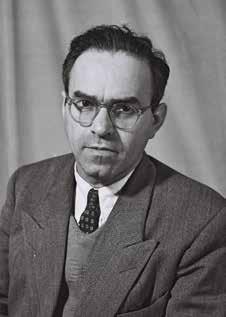
Rabbi Zerach Warhaftig, shown as a Knesset member in late 1951, helped found the National Religious Party.
// By Teddy Brauner, National Photo Collection of
Sept. 26, 2002: Rabbi Zerach Warhaftig, a founder of the National Religious Party and a signer of the Declaration of Independence, dies at 96 in Jerusalem. A native of Belarus, he made aliyah in 1947.
Ra’anana became home to 162 new Olim, Tel Aviv welcomed 127, and Modi’in opened their doors to 100 Olim. It was a summer filled with new beginnings, inspiring stories, and the joy of welcoming so many new Olim home.
Compiled by AJT Staff
Sept. 27, 1950: The Third Maccabiah Games, originally scheduled for 1938 but canceled by the British for fear of illegal immigration, begin in the 50,000-seat stadium in Ramat Gan with 800 athletes from 20 countries.
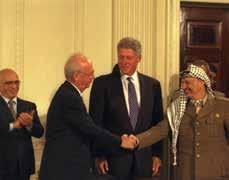
Sept. 28, 1995: Israeli Prime Minister Yitzhak Rabin and PLO Chairman Yasser Arafat sign the Israeli-Palestinian Interim Agreement, known as Oslo II, in Washington. It establishes the elected Palestinian Authority.
Sept. 29, 1923: Under borders drawn primarily by the United Kingdom and France after World War I, the Golan Heights are given to the new, French-influenced country of Syria instead of being included in Mandatory Palestine.
Items are provided by the Center for Israel Education (israeled.org), where you can find more details.

By TOI and Agencies
More than 4,000 film industry figures, including major Hollywood actors, vowed to boycott Israeli cinema bodies they claimed were “implicated in genocide” in Gaza, in an open letter published Monday.
“We pledge not to screen films, appear at, or otherwise work with Israeli film institutions — including festivals, cinemas, broadcasters, and production companies — that are implicated in genocide and apartheid against the Palestinian people,” read the letter, first published in The Guardian newspaper.
The signatories included British stars Olivia Colman, Riz Ahmed, Aimee Lou Wood, Josh O’Connor, Tilda Swinton and Joe Alwyn (the latter of whom had a supporting role in the recent post-Holocaust drama, “The Brutalist”); American actors Mark Ruffalo, Emma Stone, Ayo Edebiri and Cynthia Nixon; Spanish actor Javier Bardem; Mexican filmmaker Gael García Bernal; and filmmakers Ken Loach, Yorgos Lanthimos, Adam McKay, and Ava DuVernay (the latter’s film “Origin” compared Nazi rule to slavery and global caste systems.)
They join several progressive Jews who have long been vocal pro-Palestinian activists, including Ilana Glazer, Hannah Einbinder, Emma Seligman, and Wallace Shawn.
The letter, organized by the group Film Workers for Palestine, said it was inspired by filmmakers who had refused to screen their work in apartheid South Africa.
The pledge is distinct from other previous arts and culture Israel boycotts in naming specific Israeli cultural insti-
tutions that the letter’s signatories are boycotting. Those include major Israeli film festivals like the Jerusalem Film Festival, Haifa International Film Festival, Docaviv and TLVfest.
“In this urgent moment of crisis, where many of our governments are enabling the carnage in Gaza, we must do everything we can to address complicity in that unrelenting horror,” the letter read.
“We answer the call of Palestinian filmmakers, who have urged the international film industry to refuse silence, racism, and dehumanization, as well as to do everything humanly possible to end complicity in their oppression,” the film workers said in their petition.
The institutions to be boycotted would include any involved in “whitewashing or justifying genocide and apartheid,” or those that partnered with the Israeli government.
The group behind the letter cited the Jerusalem Film Festival and the Docaviv documentary film festival, which “continue to partner with the Israeli government.”
“The vast majority of Israeli film production and distribution companies, sales agents, cinemas and other film institutions have never endorsed the full, internationally recognized rights of the Palestinian people,” according to a FAQ document accompanying the letter.
The pledge does not specifically target Israeli individuals. Instead, the document says the “refusal takes aim at institutional complicity, not identity,” and that “a few Israeli film entities are not complicit.”
Several open letters signed by prominent figures from the worlds of cinema,

music and literature have been published as pressure mounts on the Israeli government to end the devastating, nearly twoyear war in Gaza, and urgently address the humanitarian crisis there.
An Italian filmmakers’ collective, Venice4Palestine, urged the city’s film festival in August to take a stand, with a letter gathering 2,000 signatures, including from Oscar-winning director Guillermo del Toro.
Last month, some 200 British and Irish writers called for an “immediate and complete” boycott of Israel, “until the
people of Gaza are adequately provided with drinking water, food, and medical supplies, and until all other forms of relief and necessity are restored to the people of Gaza under the aegis of the United Nations.”
The writers also said: “We demand the return of all hostages and those imprisoned without charge or trial on all sides. We demand an end to settler violence against Palestinians on the West Bank. We demand the immediate and permanent ceasefire and cessation of violence by Hamas and Israel.” ì
The following is an index of Israeli hostages with the most current information available as of press deadline.
The first phase of Israeli hostage transfers is complete. The Atlanta Jewish Times will update this hostage tracker with current news of the next round of hostage transfers. Bring Them Home.
Israeli hostages remaining:
Fifty-five more hostages are held in Gaza by Hamas and Islamic Jihad terrorists. The hostages are:
Rom Braslavski, 21
Yosef-Chaim Ohana, 24
Nimrod Cohen, 20
Matan Angrest, 22
Ziv Berman, 27
Gali Berman, 27
Maxim Herkin, 36
Segev Kalfon, 27
Bipin Joshi, 24
Elkana Bohbut, 35
Alon Ohel, 24
Ariel Cunio, 27
Bar Kupershtien, 23
Guy Gilboa-Dalal, 23
Eitan Horn, 38
Tamir Nimrodi, 20
Matan Zangauker, 25
Avinatan Or, 31
Omri Miran, 47
Eitan Mor, 24
David Cunio, 34
Eyvatar David, 24
The following hostages are either believed to be dead or their deaths have been confimed:
Amiram Cooper, 84 (murdered in captivity)
Inbar Hayman, 27 (murdered in captivity)
Asaf Hamami, 41 (murdered in captivity)
Eliyahu Margalit, 75 (murdered in captivity)
Uriel Baruch, 35 (murdered in captivity)
Tal Haimi, 41 (murdered in captivity)
Oz Daniel, 19 (murdered in captivity)
Tamir Adar, 38 (murdered in captivity)
Eitan Levy, 52 (murdered in captivity)
Ran Gvili, 24 (murdered in captivity)
Yair Yaakov, 59 (murdered in captivity)
Ronen Engel, 54 (murdered in captivity)
Sahar Baruch, 35 (murdered in captivity)
Itay Chen, 19 (murdered in captivity)
Aviv Atzili, 49 (murdered in captivity)
Dror Or, 48 (murdered in captivity)
Muhammad Al-Atrash, 39 (murdered in captivity)
Joshua Loitu Mollel, 21 (murdered in captivity)
Idan Shitvi, 28 (murdered in captivity)
Yossi Sharabi, 53 (murdered in captivity)
Arie Zalmanovich, 85 (murdered in captivity)
Daniel Peretz, 22 (murdered in captivity)
Guy Illouz, 26 (murdered in captivity)
Lior Rudaeff, 61 (murdered in captivity)
Meny Godard, 73 (murdered in captivity)
Ilan Weiss, 56 (murdered in captivity)
Hadar Goldin, 23 (murdered in 2014)
Omer Neutra, 21 (murdered in captivity)
Sonthaya Oakkharasri (murdered in captivity)
Sudthisak Rinthalak (murdered in captivity)

Michael A. Morris Publisher
For the record, I am in favor of a two-state solution. To me, that sounds fair, equitable and internationally justifiable. Under this solution, or any other solution, there are certainly hurdles, compromises, safety concerns and many other details, but a two-state solution seems to be a prudent, normal, acceptable and admirable goal. Quite frankly, I am not sure what any other option would be; one-state (although Israel has never shown an interest in annexing the West Bank, so a one-state solution is really a two-state solution); subdividing Israel (I have never heard of that from either the Israeli or the Palestinian side, but trying to think outside the box); three-state
solution -- or more (again, I have never heard of this); and the final option I can conjecture, one state that is not Israel (now that, I hear about every day from the Palestinians).
While I am favorable to the only obvious choice, a two-state solution, I do not live in Israel and I would certainly error on the side of letting the Israelis decide what is best for them, so it is just my opinion; but again, I have never been privy to an alternative. Clearly, Israel has been partial to a two-state solution as they have offered that to the Palestinians several times over the past decades, and I am not aware of any viable alternatives that have been proposed or discussed in earnest.
But here is the real crux of the matter. History has spoken, Hamas, Fatah, the Palestinian Authority, PLO, whatever Palestinian organization you want to name, have clearly demonstrated over the past 45 years of negotiations that they do not want a two-state solution and that their goal is not a two-state solution but a one-state solution that does
not include Israel or Jews.
Recently, the leaders of the UN, France, Saudia Arabia, and other countries are back to demanding Israel acquiesce to a two-state solution. My first reaction is not very professional, Duh. Other than the complete annihilation of the Jewish people and Israel, please tell me what alternatives are on the table. There aren’t any alternatives, so they can stop yelling; and Israel has already agreed many times to a twostate solution, but the Palestinians have yet to agree once, so who are you yelling at? Honestly, some of these leaders’ sound like idiots. That’s like demanding Ukraine cease all Russian conflict -- tell that to the Russians -- tell that to the Palestinians. The Israelis get it, they have been at the negotiating table, and the Palestinians have no interest. Is the UN suggesting that the Israelis should kidnap all the various leaders of the different factions of the Palestinians and force them sign a piece of paper declaring their independence?
But seriously, how is Israel supposed to get their adversaries to the negotiating table? Maybe if the president of France yells loud enough, Netanyahu will be forced to make Abbas sign a peace deal (or even sit at the table). What kind of stupid talk is that? (Let’s not take Palestinian sovereignty too far, they would still require Israel to supply the majority of their water, electricity, roads, schools, and hospitals, unless Jordan, Syria, Lebanon, or Egypt step up to the plate – oops, they have said “no” already.)
Why are heads-of-state demanding a two-state solution from Israel for which they have debated, considered, offered and have not taken it off the table, while no one is attempting to convince the leaders of the Palestinians to accept this position; and then blaming Israel for the lack of progress and peace? Doesn’t this sound incongruous? President Macron, Crown Prince Mohammed bin Salman, force the Palestinians to the table, then maybe we can have some peace. ì


It is an honor to represent you as co-Chair of the Georgia-Israel Caucus in the state senate.

I wish you, your family, and the entire community a blessed new year. May joy and comfort follow you all the days.



[Somewhere, perhaps, a rabbi might begin a sermon as follows.]
My intention was to speak about Israel, but as I stand before you, I am hesitant.
On the one hand, at the High Holy Days, rabbis address the largest number of congregants we likely will see all year. If you have something important on your mind, this is the time to share it.
On the other hand, a less controversial topic, one more palatable to the greatest number of people, might be a better choice.
I have been conflicted as to which path to follow. In talking with my rabbinic colleagues, I am not alone in this quandary.
I decided that — because this is a time of such inflamed passions — it is appropriate to speak about the current situation.
Some of you have tried — in this congregation, and in the community at large — to foster constructive conversation about Israel. Regrettably, those efforts have fallen short.
The dogmatism on the extremes has made dialogue difficult, at best, and woe be it unto the person who dares to carve out a centrist position.
I fear that many of you have been cowed by the often shrill tone of arguments and have decided that you cannot or will not engage on issues related to Israel.
That is unfortunate.
Modern versions of the Al Chet (in Hebrew, “for the sin”) prayer recited multiple times during Yom Kippur, reference “the sin of silence and indifference.”
This is not the time for silence.
And any luxury of indifference vanished on Oct. 7, 2023.
What happened that day — and on all of the days since — has profoundly impacted Jewish communities globally.
As a community, we have grieved, we have held vigils, and we have watched from afar — a greater geographic than emotional distance, for many — as Israel has waged war against Hamas in Gaza.
You may have heard voices urging you to “support Israel,” but that phrase can be interpreted variously, and as I have asked before, which Israel are you talking about? Israel is more diverse ethnically, racially, culturally, religiously, politically, and economically than those who pay only casual attention may realize.
Other voices may say, “You are not an Israeli, so leave these issues to them.”
Let me suggest that, given the repercussions of the war on Jewish individuals, institutions, and businesses outside of Israel, the Jewish community has a right, perhaps an obligation, to speak up.

Speak up. Or others will speak for you.
If some of this sounds contradictory, please consider that multiple things can be true at the same time, things you agree with and things you don’t.
If your concern is for the hostages in Gaza, speak up. At this writing, they number 48, with maybe 20 still alive. Do not forsake or forget them.
If your concern is for the welfare of the Israeli people, as distinct from elements of its government, speak up.
If your concern is for the future of Israel as a democratic nation, speak up.
If your concern is for the U.S.-Israel relationship, speak up.
If your concern is the “made in the USA” label affixed to weapons and defensive systems that provide Israel with the ability to protect itself and the capability to wage war, speak up.

www.weberschool.org


If your concern is for the safety of Jewish Americans in their neighborhoods, on their campuses, or in public spaces, speak up.
If your concern is that Jewish Americans have been abandoned by those once considered friends or ostracized by those once viewed as allies, speak up.
If your concern is the splintering of the Jewish American community, speak up.
If your concern is that younger Jewish Americans, particularly those raised with Tikkun Olam as a central value, find it difficult to square their upbringing with Israel’s military actions in Gaza, speak up.
If your concern is understanding what does and does not constitute antisemitism, speak up.
If your concern is that antisemitism has been politicized, speak up.
If your concern is understanding when criticism of Israel is and is not antisemitic, speak up.
If your concern is the antisemitism that permeates anti-Israel protests and is prevalent throughout social media, speak up.
If your concern is understanding what Zionism does and does not entail, speak up.
If your concern is for the Israel Defense Forces, speak up.
If your concern is for the civilian population of Gaza, particularly the children, speak up.
If your concern is for the future governance of Gaza, speak up.
My advice is the same, whatever your opinion and whatever concerns you hold.
Speak up. Or others will speak for you. ì
In recognition of the Atlanta Jewish Times celebrating its 100th year from its first edition in 1925, the AJT will re-publish articles from the Southern Israelite from editions dating as far back as 1929, the earliest edition available through the Digital Library of Georgia. All of the Southern Israelite editions, from 1929-1986, can be viewed at gahistoricnewspapers.galileo.usg.edu/lccn/sn78003973/
Please enjoy this retrospective of Jewish journalism in Atlanta and across Georgia, and thank you for supporting the Atlanta Jewish Times for the last 100 years.


David Ostrowsky
A cursory glance at the list of all-time ping-pong greats indicates Jews have maintained a prominent presence in the sport over the past century. Legendary Polish table tennis champion Alojzy Ehrlich and Czech multi-world title champion Traute Kleinová, both of whom survived the Holocaust, soared to great heights in the ping-pong universe. Back in the States, there was Leah Neuberger, who secured 29 national titles and is immortalized in the International Jewish Sports Hall of Fame.
Most famously, in the latter half of the 20th century, Marty Reisman, winner of five bronze medals at the World Table Tennis Championships, established himself as a titanic figure in Jewish sports. Though younger generations may not be particularly familiar with Reisman, who succumbed to complications of heart and lung ailments in December 2012 at the age of 82, his endlessly fascinating life story is coming to life this holiday season with the release of “Marty Supreme.”
Though the film, produced by A24 with its largest-ever budget of $70 million and starring Timothee Chalamet (“Wonka,” “A Complete Unknown”) is only loosely based on Reisman’s life — Chalamet plays a fictionalized table tennis player, Marty Mauser, whose love interest is Gwyneth Paltrow’s character — it was inspired by Reisman’s meteoric rise to fame and flamboyant personality.
The real-life Marty Reisman, monikered “The Needle” for his slim physique and quick wit, secured a towering legacy by traversing the globe to compete against everyone from movie stars to maharajahs. Along the way, he racked up 22 major table tennis titles, including a pair of United States Opens and a British Open. Reisman’s crowning achievement on the table arguably occurred in 1997, when at 67, he became the oldest player to capture a national championship in a racket sport by winning the United States National Hardbat Championship. Some even consider him to be one of the Top 10 table tennis players of all time.
“I took on people in the gladiatorial spirit,” he said in an interview with the New York Times in March 2012, shortly before he passed away, leaving behind

of the most colorful figures in Jewish sports
Supreme,” which promises to be a hit movie this
his wife, Yoshiko, daughter, Debbie and grandchildren. “The modern game is played with fraud, deceit and deception. This racket is the purest reflection of a player’s ability.”
Reisman’s ability was — per the upcoming movie’s title — unquestionably supreme. But it was his rather colorful persona and flair for showmanship that warranted the silver screen treatment. A product of Manhattan’s Lower East Side, Reisman is credited for making ping pong into not just an art form, but also a circus act. Reisman’s decades-long run as a world champion spawned such homespun tales of him being able to slice a cigarette in half from across the net and besting opponents while playing blindfolded. Sporting his ubiquitous Borsalino hat, Reisman frequently opened for the Harlem Globetrotters — when he wasn’t losing and winning millions on wagers over his own matches. Later in life, his Upper West Side table tennis gyms were frequented by such luminaries as Matthew Broderick, Dustin Hoffman, Kurt Vonnegut, David Mamet and Bobby Fischer.
Judging by its recently released trail-
er, “Marty Supreme,” directed by Josh Safdie (“Uncut Gems”) and co-written by him and Ronald Bronstein, aims to not just chronicle Reisman’s innate ping pong talents but also the protagonist’s swashbuckling ways. A succession of frenetically moving clips includes Chalamet dashing through a street market, combing through wads of cash in the front seat of a cab, and fighting for his life in a violent car chase.
But at its core, the flick is grounded in a classic rags-to-riches story of a young man from a working-class neighborhood who has bigtime aspirations (“Everything in my life is falling apart, but I’m going to figure it out”) to make a career out of a passion that consumed his life ever since he was nine. With a Dec. 25 release date, “Marty Supreme” easily fits the mold of the season’s traditional line of feel-good films. Just like the real-life Marty Reisman, the made-up one never harbors doubt that his unyielding quest to soar above all obstacles in pursuit of ping pong glory will pan out. When asked what he will do if his plan goes awry, Marty quickly retorts, “that doesn’t even enter my consciousness.” There is,
however, acknowledgment that table tennis is indeed a niche passion as at one point, Chalamet’s character says, “I have a purpose. And if you think that’s some sort of blessing, it’s not. It means I have an obligation to see a very specific thing through. And with that obligation comes sacrifice.”
Reisman, or rather Mauser, comes across as so self-assured in his ability to attain fame and fortune at the ping pong table that at one point in the trailer, he tells a middle-aged gentleman sitting across from him, “I know it’s hard to believe, but I’m telling you, this game, it fills stadiums overseas. And it’s only a matter of time before I’m staring at you from the cover of a Wheaties box.”
It’s a catchy line that perfectly embodies Reisman’s/Mauser’s lifelong drive to thrill the masses with his ping pong wizardry. That narrative of Reisman being not just an extremely gifted pingpong player who started competing as an adolescent, but also an entertainer destined to give electrifying performances serves as the heartbeat of the upcoming sports movie that promises to have many Jewish motifs weaved into its plot. ì
By David Ostrowsky
It was quite the conundrum for Blake Corosky, the sports agent who represents Jacob Steinmetz, the Arizona Diamondbacks pitching prospect and first-ever practicing Orthodox Jewish ballplayer to be drafted. In spring 2024, one of his other clients, Core Jackson, then a junior shortstop for the University of Utah to which he had transferred from the University of Nebraska, was enjoying a breakout season and starting to get on MLB teams’ radar screens ahead of the upcoming draft. As he started interviewing with big-league scouts, Jackson shared a deep dark secret with both potential employers and his agent: one evening in the midst of a drunken stupor during his freshman year at Nebraska in 2021, he drew a swastika on the dorm room door of a Jewish student.
Upon hearing the news, Corosky was so dumbfounded that he contemplated cutting ties with Jackson. Instead, the MLB-certified agent (True Gravity Baseball) called Steinmetz’s father, Elliott, who serves as the head men’s basketball coach at Yeshiva University, for advice on how to proceed with a young man who came across as very remorseful but — even years later — still didn’t quite understand the gravity of the situation. Initially very upset, Elliott Steinmetz proposed that Corosky consider trying to enlighten his client about antisemitism. A few hours later, Elliott, himself, reached out to Jackson to begin educating him about the Holocaust.
In the ensuing months, as Jackson became more aware of the horrific nature of his 2021 act — and teams passed on him in the 2024 MLB draft as they became more aware of his background — it grew apparent to the veteran Yeshiva basketball coach that Jackson, raised in a Christian household in the rural town of Wyoming, Ontario, had extremely limited knowledge of the history of Jewish persecution, or Judaism in general. Steinmetz subsequently arranged for Jackson, who was fined and ordered to perform community service in the immediate aftermath of the incident, to be tutored by Ann Squicciarini, a graduate student in Yeshiva’s Holocaust education program. Immediately, Squicciarini took the initiative to organize a five-week course consisting of video and reading assignments in conjunction with weekly check-ins.
This past summer, Jackson — still represented by Corosky who had demanded that the ballplayer inform every single team

of his heinous act while following the personalized Holocaust lesson plan — was selected by the New York Yankees in the fifth round of the MLB draft, held just before the All-Star Game at Truist Park. Reportedly, Yankees amateur scouting director Damon Oppenheimer claimed the franchise’s decision followed the most thorough “due diligence” examination of a player in his 23 years on the job, and that it was approved directly by owner Hal Steinbrenner (it is quite rare for a principal owner to sign off on a selection this late in the draft). Additionally, the selection of Jackson, who also was charged with driving under the influence on Utah’s campus last September, ensued after Yankees officials met with Jackson and multiple high-ranking Jewish members of the club, including team president Randy Levine, were consulted.
When The Athletic reported last month that the Yankees, like every team, were fully aware of Jackson’s past history when they selected him, the New York Times-owned sports publication included an acknowledgment by Jackson that he was “blackout drunk” when he scribbled the swastika, and that he had zero recollection of the incident or what prompted him to do it. Jackson did, however, admit to The Athletic that he’s now aware he made a “really stupid mistake” and claimed that he is no longer “the person he was when it all happened.”
Neither Jackson nor Elliott Steinmetz was available for an interview
with the Atlanta Jewish Times, however, Ari Kohen, director of the Harris Center for Judaic Studies at the University of Nebraska, did speak to the AJT about Steinmetz’s and Squicciarini’s work in teaching Jackson about the atrocities of the Holocaust.
“From everything that I’ve heard, this has sounded to me like a successful intervention,” said Kohen, who was at the Harris Center when the incident occurred but had not been made aware of it until this summer. “It has sounded to me like the kind of work that I would generally like to see when it comes to educating somebody — taking a really unfortunate situation and using it as a learning opportunity rather than simply an opportunity to punish and scold. It was designed well as a good response that seems to have hit the mark.
“I was inclined to really believe that this was a young man [Jackson] who wanted to do something that he regarded as bad and hurtful — and knew that this was a bad, hurtful symbol — but I actually was inclined to believe that he doesn’t have — or didn’t at the time — the background where he could have actually explained in some detail what this meant and to whom specifically it was bad and hurtful and exactly why.”
In his first taste of professional baseball this summer for the Yankees’ SingleA affiliate, the Hudson Valley Renegades, Jackson has scuffled, hitting well below
.200 without a single homer. Amidst Jackson’s early career struggles, Elliott Steinmetz has remained an impassioned supporter of the enticing young prospect, at one point even visiting him in the Renegades’ home of Fishkill, N.Y. Judging by the social media post he cranked out afterwards, the longtime Yeshiva stalwart apparently feels that Jackson is a changed man.
“I’m proud of Core for owning a mistake and for seeking out understanding and education.
“I’m proud of True Gravity Baseball for creating an opportunity for a kid to have a pathway back.
“I’m proud of the New York Yankees for having the backbone to trust our process, and the patience to do the diligence, to give Core a chance to chase his dream.
“One of the great parts of this story is that nobody has to spin it. What you read is how it happened. A kid made a terrible and ignorant mistake — one that often, in today’s world, can end your dreams. He didn’t look for an easy way out. He did the work. He put himself at risk and financial detriment with his honesty. He prayed. He got the right people in his corner. And ultimately, he won himself a second chance.
“Now it’s in his hands completely — exactly where it’s supposed to be.
“I’ll be rooting for him — on and off the field.
“It’s your choice if you do, too.” ì
By Robyn Spizman Gerson
At 90 years young, Dr. Mike Levine is still on the run. He now adds another remarkable accomplishment to decades of accolades, as he enters his 90th year and a race that’s not for the faint of heart. Levine is admired and beloved by many who cheer him on to victory, and he adds another win to his achievements.
On July 4, Levine accomplished another goal. He placed first in his category at The Peachtree Road Race, Atlanta’s premier July 4 10K (6.2 mile) race in its 56th year. Achieving a first-place finish demanded hundreds of hours of dedicated training, a remarkable accomplishment made even more impressive by Atlanta’s classic heat and humidity on the holiday morning.
The Peachtree Road Race has established itself as the world’s largest 10K, typically attracting more than 60,000 participants. The course takes thousands of runners from Buckhead down Peachtree Road and finishes in Piedmont Park. The race is televised and attended by many of the finest runners worldwide.
Levine is surrounded by a large circle of friends, his devoted children, and former patients. He and his wife, Esther Levine — the celebrated grand dame of the MJCCA Jewish Book Festival — are community icons who share a passion for lifelong learning and a relentless cando attitude. At 63 years of marriage, they are supportive of each other’s interests, passions, and non-stop volunteerism.
Reflecting on a lifetime of service, Levine shared, “I practiced pediatrics for 45 years, the first two years in the U.S. Air Force and the next 43 in Sandy Springs. During those years, I was privileged to care for three generations of patients and served as chairman of the medical staff at Scottish Rite Hospital [now Children’s Hospital of Atlanta]. I retired at the age of 73 in 2008.”
At the age of 63, due to rotator cuff surgery on his “serving arm,” he had to give up tennis. He has also faced the common challenges of aging. He added, “Over the years, in addition to the shoulder surgery, I have had prostate cancer surgery, cardiac bypass and stents, and a total knee replacement. I run about three to four Atlanta Track Club-sanctioned races a year now and usually win my age group. I no longer run non-stop but now do what is known as the Galloway method, which is a timed run of about two minutes followed by a 30-second walk, three to four miles, five days a week. I have run 20 Peachtree Road Races, only missing it
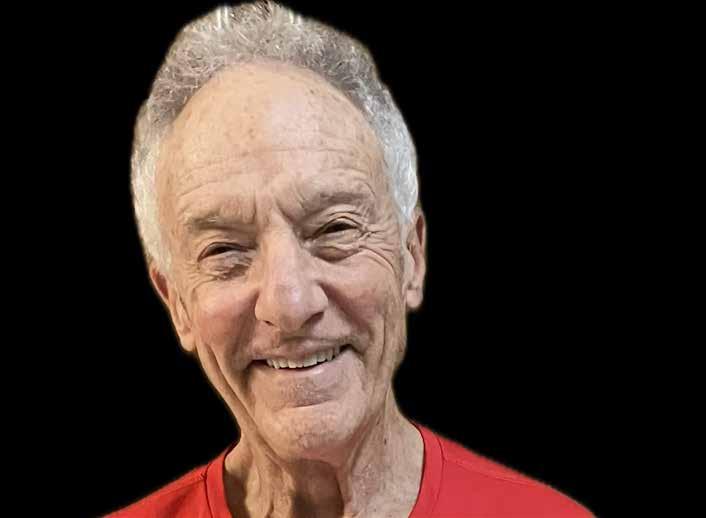
if we are out of town on July 4. I am a member of the Atlanta Track Club.”
When asked about the coveted Tshirt given to runners each year, he said, “I have stacks of race T-shirts and wear a few of my favorites, but the Peachtree shirts are prized and pristine in the closet.”
This year, of the five runners in the Peachtree Road Race in his category, Levine was the youngest. The secondplace finisher was 91 and finished almost five minutes behind him, certainly worthy of praise as well.
When Levine crossed the threshold of 90 years, a group of 50 of the River Rats, the regular runners at the Chattahoochee River, recently honored him and another 90-year-old with an early morning birthday celebration at the river, replete with birthday cake, balloons, and specially designed T-shirts.
His retirement days are filled with more than just running. He reflected, “In my retirement, I volunteer at the Breman Jewish Home, where I conduct a discussion group on current events for the residents. And yes, while running the
Peachtree or any other race, someone invariably will come up to me and say, ‘Aren’t you Dr. Levine? You were my pediatrician or my children’s pediatrician.’”
Mike and Esther’s family weighs in on the lifelong inspiration Mike has provided as he reaches the milestone of 90. His son, Dr. Josh Levine, a worldrenowned plastic surgeon in New York, said, “My dad has always been an inspiration and role model for me. He’s always been incredibly physically active and disciplined. I remember well all those words of encouragement from when he was a highly ranked tennis player in the State of Georgia. He would spend hours with me teaching me his disciplined techniques with repetition and patience, and I hear those words in my head as I now try to convert those ancient lessons into pickleball skills: racket back … bend your knees, hit it where they ain’t! And of course, the reason I considered becoming a doctor was to follow his awesome example.
“Dad was the consummate physician: academic, driven, dedicated to his craft and his patients, and above all, kind
and caring. I’m still learning from him as he continues to push boundaries and succeed! Keep winning, Dad, and showing us all how to be winners!”
Daughter, Shira Levine, a marketing executive based in Melbourne, Australia, added, “Dad’s physical and mental advice has always been ‘keep moving.’ He’s living proof this philosophy works and has guided me my whole life.”
Mike Levine offered these insights for others, “I will continue to run as long as I am able and am training now for next year’s Peachtree. Every morning when I wake up, I am stiff and have aches and pains. Once I start running, after about a half mile, the aches disappear, and the pleasure of being out in nature overtakes me, and the rest of the day is a breeze. My philosophy is ‘no matter how you feel, if you keep moving, you will feel better.’” It’s with awe that we say L’Chaim to Mike Levine. May the years ahead be paved with miles of good health and continued joy. Perhaps, a few fewer aches and pains, although we’re pulling for you as you continue to cross the finish lines of life, one careful step at a time. ì




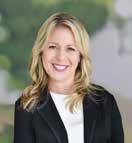


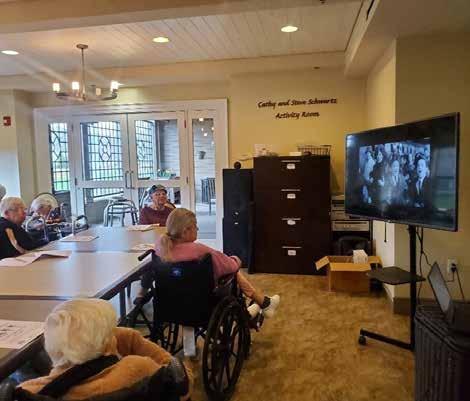
Jewish HomeLife recognized Oy Vey VR with the LondonRinzler Volunteer Service Award on Sept. 7.
At Jewish HomeLife’s annual meeting on Sept. 7, Oy Vey VR was awarded the prestigious London-Rinzler Volunteer Service Award in recognition of its groundbreaking work enriching the lives of seniors and hospice patients through immersive technologies. Oy Vey VR is a 501(c)(3) community initiative and the innovative passion project of Stuart Steiner.
Oy Vey VR currently operates two signature programs:
∙ The Weinstein Hospice VR Initiative – Bringing the world to hospice patients through breathtaking, immersive virtual reality experiences that foster joy, connection, and meaningful moments with loved ones.
∙ Empowerment University for Seniors – A first-of-its-kind program designed specifically for dementia patients, combining VR experiences, custom EmpowerView tablets, and engaging Masterclass-style subjects that spark curiosity, wonder, and a renewed sense of purpose — proving that you’re never too old to learn.
“These programs remind us that quality of life is not about age — it’s about experiences,” said Steiner, founder of Oy

Vey VR. “Whether it’s taking someone to the beach in VR, letting them walk the streets of Jerusalem, or engaging them in an Empower U class that lights up their imagination, we’re creating moments that matter. This award belongs to every volunteer, caregiver, and patient who has been part of this journey.”
Dr. Mirie Manzour, volunteer services manager at Jewish HomeLife, praised the program’s impact: “Virtual reality is making waves in healthcare. For hospice patients, it gives individuals and their families the opportunity to experience activities they might not otherwise have access to. We have seen the VR sessions give patients a sense of agency and engagement with their loved ones and caregivers.”
The London-Rinzler Volunteer Service Award is presented annually to honor outstanding volunteer contributions that enhance the lives of Jewish HomeLife residents and patients. Oy Vey VR’s recognition underscores the growing role of innovative technologies in delivering dignity, comfort, and connection to the senior and hospice communities.
Compiled by AJT Staff
On July 28, Ariella Ayenesazan helped lead the American Jewish Committee (AJC) Atlanta’s annual Summer Intern Leadership Luncheon as part of her Goldman Fellowship. Alongside intern Addison Goldberg, Ayenesazan welcomed 11 interns from 10 civic and private sector organizations to an afternoon of networking, learning, and leadership development.
The luncheon’s theme this year, “Growing as a Leader: Navigating Turbulent Times,” could not have been more timely. Ayenesazan and Goldberg invited a distinguished panel of speakers — former U.S. Attorney Ryan K. Buchanan, past AJC Atlanta Vice President Steve Labovitz, and Honorary Consul of Ukraine Tetiana P. Lendiel — to share their insights on resilience, adaptability, and charting a purposeful path during uncertain times.
Each speaker brought a unique perspective to the conversation. Buchanan spoke about the importance of grounding oneself in service and integrity, particularly when faced with professional or personal adversity. Labovitz emphasized mentorship and civic engagement as essential tools for leadership, reminding the group that meaningful progress often comes from difficult, but necessary,
conversations. Lendiel offered a powerful diplomatic lens, reflecting on her experiences navigating global challenges and underscoring how empathy and flexibility are just as important in international relations as they are in everyday leadership.
For the interns in the room, these lessons resonated deeply. Following the panel, the group had the opportunity to engage directly with the speakers, asking questions about navigating early careers and balancing values with ambitions. The dialogue that unfolded was authentic, energizing, and practical. The luncheon was a true exchange of ideas between rising leaders and seasoned professionals.
Beyond the formal discussion, the luncheon provided space for interns to connect across industries, compare experiences, and explore ways to collaborate.
“What stood out most to me was the sense of shared purpose in the room," said Ayenesazan. “Each intern came from a different organization, yet all were united by a commitment to leading with intention and creating positive impact in their communities.
Compiled by AJT Staff


Hadassah Greater Atlanta was honored to host two teens and their teacher from the Hadassah-supported Meir Shfeyah Youth Aliyah Village and Boarding School in northern Israel at a luncheon graciously held at the home of Jodi Mekyten on Aug. 7.
Youth Aliyah began in 1934 with the rescue of children from Nazi Germany. Today, it comprises 43 villages across Israel and is funded by the Ministry of Education, with supplemental support from organizations like Hadassah. Hadassah proudly supports two of these villages: Meir Shfeyah and Neurim.
Central to Hadassah’s mission is the well-being and future of the next generation. The Hadassah-supported Youth Aliyah villages provide a nurturing environment that helps vulnerable youth chart a path to success. Since its founding, Youth Aliyah has helped more than 300,000 students from 80 countries.
Tomer Bar, a teacher accompanying the students, shared his appreciation. “A single opportunity can open up things for the entire world. We are so proud that Meir Shfeyah makes such a positive impact on the lives of our students.”
The two visiting students, Darya Dubrovsky and Hana Shvartzman, expressed their gratitude in perfect English. “Living, studying, and experiencing different things at Meir Shfeyah has changed our lives and opened up possibilities we might never have been exposed to.”
Michele Rubin, Hadassah National Youth Aliyah chair, added, “Hadassah Youth Aliyah Villages provide education, counseling, and love — fostering independence, self-esteem, and success. Meir Shfeyah students complete their matriculation at twice the national average, and 97 percent go on to serve in the IDF. Many even choose to do an additional year of community service and pursue higher education.”
Paula Zucker, president of Hadassah Southeastern Region, highlighted the villages’ vocational and enrichment programs: “Each village offers vocational training in high-tech auto repair, precision toolmaking, and winemaking. Cultural enrichment in music and art, along with structured sports programs, builds well-rounded individuals with discipline, teamwork, and self- esteem.”
The students — young immigrants and at-risk native Israelis — often arrive in desperate need of hope, direction, and support. At Hadassah villages, they receive shelter, food, counseling, education, and a full range of supportive services. Many arrive with little understanding of their Jewish heritage, and Hadassah offers meaningful opportunities to connect with their roots through programs like Joy of Judaism and heritage trips to Poland and Ethiopia.
Hadassah is proud to continue making a profound and lasting difference in the lives of these young people.
Compiled by AJT Staff
By Robyn Spizman
Farmers & Fishermen Purveyors has been awarded a Top Workplaces 2025 honor by the Atlanta Journal-Constitution with a second-place ranking for a company with less than 149 employees. This list is based solely on employee feedback gathered through a third-party survey administered by employee engagement technology partner Energage, LLC. The confidential survey uniquely measures the employee experience and its component themes, including employees feeling respected and supported, enabled to grow, and empowered to execute, to name a few.
Founded in 2019 by industry veteran, Kirk Halpern, CEO and founder, and his son, Ben, who serves as the executive vice president, Farmers & Fishermen Purveyors has swiftly emerged as the market leader in premium meat and seafood distribution across Georgia and the Southeast. Positioned at the intersection of tradition and innovation, the company has earned a reputation for delivering exceptional quality, innovative product lines, and white-glove service to some of the most prestigious hospitality and culinary destinations.
Backed by a team of seasoned professionals and driven by a culture of excellence, Farmers & Fishermen continues to disrupt the protein supply chain model with agility, integrity and a relentless
focus on client success. As it scales with precision and purpose, Farmers & Fishermen stands out not just as a category leader but also as a case study in operational excellence, sustainable growth, and entrepreneurial vision in the food service sector.
Kirk Halpern shared, “The 2025 Top Workplace Award is an extremely meaningful honor. We are grateful to receive recognition from our hardworking staff. At Farmers & Fishermen, the guiding principle we believe is that if you take care of your employees, your employees will take care of your customers. We strive to train, educate, and support our staff and are proud of the efforts they make every day to make a difference. Our staff serves our community in a meaningful way and makes us so proud. The food industry is a challenging and forever changing landscape, and these are hardworking, dedicated individuals. This purposeful award represents their workplace satisfaction, and we consider that the most meaningful praise we can possibly earn.”
“Earning a Top Workplaces award is a badge of honor for companies, especially because it comes authentically from their employees,” said Eric Rubino, Energage CEO. “That’s something to be proud of. In today’s market, leaders must ensure they’re allowing employees to have a voice and be heard. That’s paramount. Top Workplaces do this, and it pays dividends.”
U.S. Sen. Jon Ossoff hosted a roundtable with members of the Atlanta Rabbinical Association in his Atlanta office.
During the meeting, Sen. Ossoff and the rabbis discussed the ongoing threat of antisemitism, the importance of the U.S.-Israel alliance, and their continued work to protect and support Georgia’s Jewish community.
Sen. Ossoff was joined by Rabbi Bradley Levenberg, Temple Sinai; Brooke Rosenthal, Atlanta Rabbinical Association; Rabbi Dan Dorsch, Congregation Etz Chaim; Rabbi Ari Kaiman, Congregation Shearith Israel; Rabbi Josh Hearshen, Congregation Or VeShalom; Rabbi Elizabeth Bahar, Temple Beth Israel; Rabbi Chaim Listfield, Congregation Etz Chayim; Rabbi Dr. Ira Bedzow, Emory Purpose Project; Rabbi Michael Bernstein, Congregation Gesher L’Torah; and Rabbi Larry Sernovitz, Hillels of Georgia.
Sen. Ossoff remains committed to the U.S.-Israel alliance and supporting Georgia’s Jewish community.
Compiled by AJT Staff



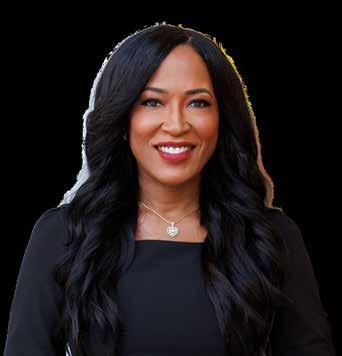
Expertly curated by our world-class chefs, Corso Residences, Atlanta features numerous restaurants, drawing from haute cuisines around the world to provide a rich experience in every meal. Inquire today to attend our upcoming private wine dinners.


Corso Residences create spaces where the senses are enlivened, where daily living is empowered, and where wellness is seamless, social, and bespoke. Schedule a residency consultation today to explore our full suite of curated wellness services.


By Rich Lapin
What is it about religious customs that has such an impact on us? In part, customs provide us order, a sense of identity, and a sense of community. So, it is with the wimpel that had usage in Europe’s German Jewish community and also with pockets of German Jewish communities here in the U.S. It was used to wrap an infant boy during the brit milah. After the circumcision, the cloth was washed, cut into strips, and sewn to form a long band. Customarily the boy’s mother would paint or embroider a Hebrew inscription with his name and birthdate. Later, the wimpel could be used to bind the Torah scroll at important milestones in the boy’s life – at bar mitzvah and or at his marriage. Images of the inscriptions appear later in the article.
An excellent example of this is a keepsake held by the family of Steve and Nora Floersheim, who are members of Temple Emanu-El in Sandy Springs. Steve’s grandfather had one made for his brit milah. Nora has demonstrated it to both her congregation’s board and




her Chevra Torah study group on different occasions. Fully unfurled, it extends about 12 feet laterally and is visually impressive
Steve’s grandfather, Carl Floer-
sheim, came to New York City in the fall of 1878 from Hamburg, Germany. Floersheim migrated westward to small towns in New Mexico and Southern Colorado. He spent time in Las Vegas and Spring-
SEPTEMBER 22ND THROUGH 24TH
/ SOUP /
Mushroom Barley • Chicken Noodle • Matzo Balls
/ APPETIZERS /
Gefilte Fish • Stuffed Cabbage Rolls
Chopped Chicken Liver • Potato Latkes
/ ENTREES /
er, New Mexico, and the latter town was where Steve’s father, Stanley, was raised. Both communities are northeast of Albuquerque and east of Taos. His father served in the Army Airforce during
OCTOBER 1ST THROUGH 2ND
/ SOUP /
Mushroom Barley • Chicken Noodle • Matzo Balls
/ APPETIZERS /
Chopped Herring • Gefilte Fish
Chopped Chicken Liver • Smoked Salmon Dip & Spread
/ SALADS /
Relish Tray • Tuna Salad
CATERING@GOLDBERGBAGEL.COM
BATTERY

BUCKHEAD
EAST
TOCO
WEST PACES (404)
Goldbergs Famous Brisket & Gravy
Bubbe’s Roasted Chicken Quarters • Vegetable Lasagna
/ SIDE DISHES /
Mashed Potatoes
• Green Beans • Garden Salad
Maple Sweet Potatoes Kale Salad w/Maple Vinaigrette
/ KUGELS / Potato Kugel • Sweet Noodle Kugel
/ DESSERT /
Rugelach Assortment • Matzo Toffee • Chocolate Torte
Babka: Chocolate or Cinnamon
Honey Pound Cake • Pumpkin Harvest Pound Cake
/ GOLDBERGS CHALLAH / Plain or Raisin Round (One size only - 2lb)

Egg Salad • White Fish Salad
/ SMOKED FISH /
Nova
• Lox • Kippered Salmon
Whole White Fish • Stuffed White Fish
/ DAIRY ENTREES /
Potato Latkes with Sour Cream or Apple Sauce
Sweet Noodle Kugel
/ DESSERTS /
Rugelach Assortment • Honey Cake • Pumpkin Patch Pound Cake
Babka: Chocolate or Cinnamon • Cheese Blintzes
/ GOLDBERGS FAMOUS / Round Challah Plain or Raisin (One size only - 2lb)
Assorted Bagels • Assorted Cream Cheese



World War II, met his bashert, married her, and subsequently moved to Atlanta for a job opportunity.
For many contemporary Jews, especially those from Jewish communities in Russia, Poland, or Lithuania, a wimpel is rarely seen as this custom was not part of their communal way of life.
Its appearance among Atlanta Jewry is relatively uncommon. Dr. Arthur Gumer, an obstetrician-gynecologist in Sandy Springs, also serves as a recognized mohel in Metro Atlanta. He remarked, “I have now been doing Brit for approximately 26 years. I have seen an occasional wimpel that was handed down in some families, but this is extremely rare. Maybe just a handful of times. On some of them are embroidered or stitched in the names and dates of the previous babies that had a brit with that specific wimpel. I have also seen some very new wimpels that were specifically created or bought for the specific brit that I was asked to officiate at. These are often embroidered and have some padding to them and can be quite beautiful. They would likely have the prayer that is recited at the time of the brit stitched onto the fabric.”
Rabbi Max Miller of Temple EmanuEl explained that one reason for their relative rarity is that some traditions of the old country gave way to modernity in the U.S. He also cited another tradition that is rarely seen and it involves the wedding kittel, a white garment signifying purity, worn by a groom as part of the wedding ceremony. The kittel is rarely seen in Reform weddings and is more common in Orthodox weddings.
Rabbi Adam Starr, spiritual leader of Congregation Ohr HaTorah, is himself a fifth-generation American of German Jewish forebears. He was raised in Silver Spring, Md., and recalled that his grandparents were part of a German Jewish synagogue in Baltimore. In their era, there was a separate section in cemeteries for German Jews. Two generations later, when Rabbi Starr grew up, sepa-
rate cemetery sections were no longer standard. In fact, congregations that once retained their European identities (German Jewish vs. Ashkenazi Jews from Russia, Poland, Hungary, and Lithuania) had given way to Ashkenazi Orthodox shuls where a common siddur was used. Over the years, the practice of having a wimpel became far less common in these settings.
Finally, Rabbi Norm Schloss, a member of both Congregation Ohr HaTorah and Congregation Beth Jacob, recalls his upbringing in the German Jewish section of Washington Heights on Manhattan’s Upper West Side in New York City. He is a first-generation American and both of his parents were German emigres. His mother arrived in 1938 and his father in 1941. He still has the wimpel of his father who was born in 1915. His wife made wimpels for both his son and grandson. In fact, Rabbi Schloss’ son used his own wimpel to decorate his chuppah. He noted that wimpels are rarely seen in Metro Atlanta for two reasons. First is that people who attend yeshivot tend to adopt the customs of the yeshiva they attended. The second approach is modernity taking over for customs. It could be explained as “my grandfather did it, my dad did it, and we don’t do that.”
Rabbi Schloss noted several books for those that wish to delve more deeply into the German Jewish world here in the U.S. One is “Frankfurt-on-the-Hudson,” by Steven M. Lowenstein; another is, “Jewish Life in the Villages of Southern Germany,” by Hugo Mandelbaum; and finally, there is, “Jewish Daily Life in Germany, 1618-1945,” by Marion A. Kaplan.
Rabbi Schloss mentioned that a wimpel display is in the museum at Congregation Ahavath Achim, located at 600 Peachtree Battle Ave NW, Atlanta, GA 30327. You can visit it almost any day of the week, but be sure to call ahead at (404) 355-5222 to verify that they are open. Note that they are closed on Jewish holidays. ì
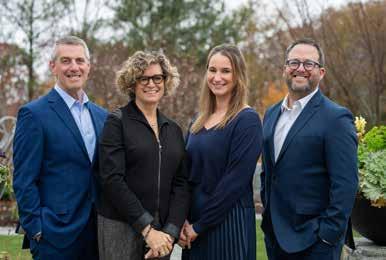








By Debbie Diamond
A new Jewish community is taking root along Atlanta’s Beltline. Bayit Ba’Beltline (B³ ∙ Home on the Beltline) is a lay-led, Shabbat-observant, egalitarian group that is already drawing large crowds of young Jewish professionals for lively prayer, song, and communal meals.
Founded earlier this year by David Kulp, Camellia Heart-Katz, and Jenny Judenberg, the group was inspired by similar grassroots communities in Washington, D.C., Philadelphia, and New York. In March 2025, the trio began envisioning a vibrant, egalitarian Jewish community of young professionals in their 20s and 30s on the Beltline, and by May they had launched their first Shabbat service and dinner.
The first two Friday night services and dinners surpassed the founders’ expectations, with 107 and 111 attendees, respectively, prompting organizers to open a waitlist. A few months later, they had a 15-member board of directors and more than 240 Instagram followers. Strong support comes from many in the larger Jewish community, including Hadar Atlanta. Bi-monthly gatherings are held at


Ponce City Market, which the founders call the perfect venue for fostering connection.
said Kulp, an Emory
By Rabbi Dan Dorsch, Rabbi Brad Levenberg, and Brooke Rosenthal
When the Atlanta Rabbinical Association (ARA) was founded in 1991, metro Atlanta’s Jewish population hovered around 60,000. There were fewer than two dozen congregations, and nearly every rabbi in town stood on the bimah of one of them. Today, the landscape looks entirely different. More than 102,000 Jews now call Atlanta home. Over 40 congregations and a wide network of schools, nonprofits, legacy institutions, and innovative startups shape Jewish life.
Rabbis now serve in synagogues, day schools, senior residences, Hillels, and many other settings far beyond the pulpit. Atlanta has also become home to a growing number of retired rabbis who enrich communal life. This city now hosts the ninth-largest Jewish community in America, and the scope of rabbinic leadership has expanded well beyond what the ARA’s founders envisioned.
One thing is clear: the model that worked in 1991 is no longer enough. A new approach is needed.
A Renewed Mission and Commitment for a Dynamic Future
At the heart of the ARA’s redefinition is a simple truth: rabbis thrive when they are connected and resourced. When rabbis are supported, the entire community benefits.
Our newly adopted mission captures that commitment:
The Atlanta Rabbinical Association supports rabbinic excellence through connection, learning, and shared purpose—fostering a more vibrant, resilient, and innovative Jewish community.
This is not theoretical; it’s practical. In a city as dynamic as Atlanta, where rabbis span denominations, generations and roles, connection and collaboration are essential. The ARA ensures that rabbis have the relationships, knowledge and support they need to lead with confidence and compassion.
Our newly adapted vision captures that collaboration:
We are creating a greater Atlanta community where rabbis lead through mutual respect and collaborative spirit to face a dynamic Jewish future together.
The ARA acts as convener and cata-
lyst. Rabbis cannot lead in silos. The future demands unity without uniformity and collaboration across differences, anchored in a commitment to something larger than any single institution.
Three Threads of Connection and Growth
The ARA’s new framework rests on three commitments:
Lean on Each Other – cultivating trust, friendship, and mutual support among rabbis across Greater Atlanta.
Learn From Each Other – investing in shared learning and professional development that strengthen rabbis and the communities they serve.
Lead Collaboratively – working together to address communal needs, advocate for Jewish life, and envision the future.
These threads are not abstract ideals— they are daily commitments that strengthen the rabbinate and help Jewish life flourish.
Supporting Rabbis, Strengthening Community
With its new tagline—“Supporting Rabbis. Strengthening Community.”—the
ARA affirms a cultural shift. This is not about hierarchy or structure; it is about ensuring that every rabbi, wherever they serve, is prepared, connected, and oriented toward the future.
Through investment in shared learning, mutual trust, and collaborative leadership, the ARA is helping rabbinic leadership in Atlanta thrive. And when rabbis thrive, Jewish life across our city grows stronger and more vibrant. The future of Jewish Atlanta will shine brightest when we lean on each other, learn from each other, and lead together.
https://atlrabbis.org atlantarabbis@gmail.com
We welcome your communications!

University medical school student who grew up in a modern Orthodox family in Washington, D.C. “Our mission is to create a space that is inclusive, egalitarian and open.”
Heart-Katz, currently a director at the American Jewish Committee, was raised in a Chabad synagogue. She emphasized the importance of timing, stating, “Being able to gather together in a large group has been so uplifting. So many people live intown now, and we did not want them to have to wait until reaching their mid-30s and a move to the suburbs to be active in Jewish life,” she said.
Bayit Ba’Beltline prides itself in part on its decidedly different “vibe,” according to organizers. Unlike traditional congregational services, their minyanim are fully participatory, with community members volunteering to lead Kabbalat Shabbat, Ma’ariv, kiddush, challah and benching, as well as composing and sharing a D’var Torah at each event. Services vary in style depending on who is leading the service that night. Kulp often brings a Shlomo Carlebach-inspired approach with lots of music, while Judenberg leans toward a Conservative style, including songs many in attendance remember from their Jewish camp experiences.
“We want people to feel like they’ve


stumbled across a group of their friends, and they’re hanging out,” said Judenberg, an electrical engineer who grew up in East Cobb at Congregation Etz Chaim. “We want to create consistent programming for single Jewish professionals who live near the Beltline and who are looking for something Jewish and spiritual in their lives.”
What began as friends inviting friends to their homes for Shabbat dinners has grown into a sacred space where Shabbat is welcomed with joyful songs, meaningful prayers, and a warm sense of belonging. And the founders’ shared vision has been well received by the young intown professionals – most of whom eagerly await announcements of future events. Based on the enthusiastic response and participation of this Jewish community, Bayit Ba’Beltline plans to add even more programming in the near future, potentially increasing the number of Shabbat events and adding “get-toknow-you happy hours” for participants to meet each other. Yet, as they grow, the founders emphasize the organization will remain rooted in accessibility, diversity, and inclusion of all Jews who wish to participate.
For more information or to get involved, contact babeltline@gmail.com or visit @BaBeltline on Instagram. ì

By Bob Bahr
When Jerome Robbins, the original director and choreographer of “Fiddler on the Roof” was casting about for a unifying theme for the 1964 production, he famously asked the creator of the show, what is it about? It took a while, but they finally came up with a description that impressed him. “Tradition” was the single word that stuck as shorthand for what this wide-ranging view of Jewish shtetl life around the turn of the century was about.
But that theme, that resonated so forcefully with audiences in an America that was still wrestling with the Holocaust over 60 years ago, has been re-cast in the Atlanta Opera’s new production with the Alliance Theatre. In this “Fiddler On The Roof,” the setting is not the comforting abode of a ramshackle turn of the century village that was Jerome Robbins' scenic vision in the 1960s.
In his brilliant new staging, Tomer Zvulun, the Atlanta Opera’s artistic director, has imagined this vision of the past as a single dark and almost forebod-

The Atlanta Opera’s “Fiddler On The Roof” at the Alliance Theatre is built around a dark and almost foreboding symbolic sphere of the world.
ing sphere. A hollowed-out globe is the dominant stage set. It seems to suggest, in a way, an old world that is being transformed by the press of modern life and modern ideas. It expands and contracts, splits open and separates, in the course of
this two-and-a-half-hour production. It is as if to say, see, this can happen to a world that is not just losing its traditions, but as Zvulun points out, its very existence as a community.
“This story is one of people coming


The production’s dramatic dream sequence is a high point of the staging.
together and forming something beautiful, like a community, and then having to deal with the dangers of it being disintegrated. It’s a universal story that can happen, not just for Jewish people, our drama, in 1905 in Russia. It can happen

At Canterbury Court senior living community, you can enjoy the company of extended family from all backgrounds. Whether you take advantage of the many scheduled social events or decide to stay in, you’ll enjoy a new, elegantly finished apartment home and enhanced amenities and services. All with the peace of mind of a continuum of care, if ever needed. With all this awaiting you, what are you waiting for?
To learn more and to schedule a personal tour, contact us today at 404-737-2639, visit CanterburyCourt.org/ShanahTovah, or scan the QR code.
Actual residents having a picnic in our Legacy Gardens.
3750 Peachtree Road, N.E. Atlanta,
CanterburyCourt.org

evka. In real life, he is a senior rabbi at Temple Sinai in Sandy Springs.
Just before the first performance, when Cohen spoke at The Breman Museum, he told the AJT what separates this production from hundreds of others is not just its theme but its impact.
“It’s bigger than life:” Itzik said. “It’s not atomical, with the small houses of Anatevka that you’ve seen in other productions. No, no. It’s tremendous. And the costumes and the visual elements and the stage design. It’s very, very heroic and very epic in that way.”
in any time period, in many different countries and many different cultures, in many different ethnicities.”
The drama highlights the loss of community, of relationships built up over decades or centuries, that can be torn asunder by the actions of powerful tyrants. That they can act either in a Ukraine of the 1900s or the Ukraine of the present day, is an idea that is central to this “Fiddler On The Roof.”
The symbolic set design of a circle stands for more, in the director’s view, than just the circular sweep of history. It is, in Zvulun’s thinking, much more than just a story of a humble milkman and his often challenging relationship with his five daughters. It is about the circle of life itself.
“We think about it in our production as three concentric circles. The circle of the family that is being challenged. The bigger circle of the community of Anatevka in Russia, And there’s the third circle that is much bigger, and that’s a circle of the world.”
Dominating this world, both as an actor and towering presence on stage, is the veteran Israeli actor, Itzik Cohen. This is his first starring role in America, but he has long been a familiar face in Israel. He’s a leading member of the cast of the Israeli hit series on Netflix, “Fauda.” He wrapped its fifth season with the production just six hours before stepping on a flight to Atlanta.
He may be remembered here for his starring role in the critically acclaimed film, “A Matter of Size,” a comedy that was shown at the Atlanta Jewish Film Festival back in 2009.
Cohen leads a strong, talented cast that includes Debbie Gravitte, a Tony Award and Grammy Award winner as Tevya’s wife, Golda. and Jeremy Radin, as Lazar Wolf, the butcher. He was Tevya in last year’s 60th anniversary production of “Fiddler” at the well-regarded North Shore Music Theater in Massachusetts. There’s even a small but significant role for Rabbi Ron Segal, as the rabbi of Anat-
Part of the reason the production seems to create such a powerful presence is the close collaboration between the key members of the creative team, several of which had their roots in The Pale of Settlement, the Eastern European region of the Russian Empire where “Fiddler On The Roof” is set.
The designer of the monumental set is Alexander Lisiyansky, who has lived in Israel since the migration of Jews from Russia and Ukraine in the early 1990s. The costumes were created by Vita Tzykun, who was Lisiyansky’s student at Tel Aviv University after she immigrated to Israel from Ukraine. They’ve both infused the production with a radiant glow, with the able assistance of lighting designer Thomas Hase, of a world which reaches back to the past, without abandoning its sense of timelessness and community. Costume designer Tzykun believes that comes from a personal connection to the time and place of the production.
“I just speak that language of that place. It’s not something that I have to work hard on conjuring in my mind, it’s part of my DNA. That’s the visual world that I grew up with. So, I don’t have to work hard on analyzing it. It’s just part of my family’s history,” she said.
An exhibit of her designs, called, “Fiddler On The Roof - An Exploration of Tradition and Identity,” opened earlier this month at The Breman Museum. It was created with her father, the celebrated Israeli artist Arkady Tzykun. They’ll be discussing the exhibit on Sept. 28 at the museum.
It’s a fitting tribute to a production that knits together so many disparate strands of history to reemphasize the important lessons that community holds for us today. The lessons of “Fiddler On The Roof,” according to Zvulun, are timeless.
“This is a story about a community dealing with the dangers of disintegration. But it can happen at any time. anywhere. The danger is, always, hate. What changes everything is time and hate.”
“Fiddler On The Roof” has extended its run at the Alliance Theatre until Oct. 12. ì

Hunger is no way to spend their final years
As the war continues, Meir Panim is on the ground every day responding to urgent needs. Critical social services are being cut, leaving tens of thousands of Holocaust Survivors without reliable access to food, medicine, or care. The reality is that 1 in 3 Holocaust Survivors can’t meet their basic needs, and 2.6 million Israelis are facing food insecurity.
Since 2025 began, we have delivered over 600,000 hot meals and 100,000 care packages, and provided thousands of prepaid grocery cards so survivors can shop with dignity. Please give now to help them celebrate Rosh Hashanah with the dignity they deserve.


Rabbi Elizabeth Bahar, Reform
Rabbi Bahar is spiritual leader of the historic Temple Beth Israel in Macon, as well as president of the Southeast Central Conference of American Rabbis. She was recognized by The Forward as one of “America’s 33 Most Inspirational Rabbis” in 2015.
After being ordained by Hebrew Union College–Jewish Institute of Religion in 2009 (where she also earned her Master of Arts in Hebrew Letters), she served as spiritual leader of Temple B’nai Sholom in Huntsville for nine years before moving to serve at Congregation Ahavath Chesed in Jacksonville. She joined the Temple Beth Israel family in 2020.
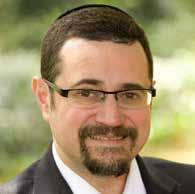
Rabbi Joshua Heller, Conservative
A ninth-generation rabbi, Rabbi Heller has served as a rabbi of Congregation B’nai Torah since July 2004, and with the congregation’s growth, became the Senior Rabbi in 2009. He has served as President of the Atlanta Rabbinical Association, Founding President of MACOM, (the Metro Atlanta Community Mikvah,) and has served on the boards of the Jewish Federation of Greater Atlanta and Jewish Family & Career Services.

Rabbi Yossi New, Chabad
The AJT has launched a new monthly Rabbi Roundtable which will bring together rabbis from across Atlanta representing each denomination.
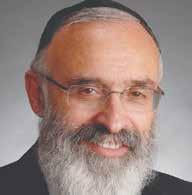

Rabbi Ira Bedzow, Orthodox
Rabbi Ira Bedzow, Ph.D. (Emory University) is the Executive Director of the Emory Purpose Project, one of the signature elements of its Student Flourishing Initiative, whose mission is to unite diverse partners across the Emory community in providing opportunities for students to develop a muscle for reflection on purpose and meaning. Rabbi Bedzow is an Associate Professor in the Department of Medicine, a core faculty member of Emory’s Center for Ethics, a senior fellow in the Center for the Study of Law and Religion, and the unit head of the International Chair in Bioethics at Emory University. He is also Senior Scholar of the Aspen Center for Social Values, and co-director of the Maimonides Institute for Medicine, Ethics and the Holocaust (MIMEH).
Rabbi Yossi New has been the spiritual leader of Congregation Beth Tefillah since he and his wife, Dassie, came to Atlanta in 1984.
Born and raised in Melbourne, Australia, Rabbi New’s religious education includes studies at Keren B’Yavneh Yeshiva in Israel and the Rabbinical College of Canada in Montreal. He was ordained in 1981 at Central Lubavitch Yeshiva in Brooklyn, N.Y., and married that same year. His education continued through post-rabbinic work at the Kollel’s Halachic Research Program, also located in Brooklyn. Rabbi New also serves as the Director of Chabad of Georgia.
For the initial discussion, each rabbi was asked the following question:
“We blow the shofar to remember the Binding of Isaac — but let’s be honest, that story is traumatic. Why should our spiritual awakening hinge on a tale of a father willing to kill his son? What does it say about us that we center it every year?”

I don’t believe the blowing of the shofar is meant to awaken us spiritually so much as morally. It forces us to ask whether we truly understand what we want from ourselves, and what God wants from us. In the Binding of Isaac, there are three actors—Isaac, Abraham, and G-d—and each time we hear the shofar, we hear messages from all three sides of the story.
From Isaac’s perspective, we face the question of what we are willing to die for—perhaps not literally, but figuratively. Even as we pray for a good year, the shofar reminds us not to care only about our own health and happiness. We are called to live for ideals—justice, lovingkindness, faith—that may require sacrifice.
From Abraham’s perspective, we face the question of what we are willing to lose for conviction’s sake. Self-sacrifice—of time, money, even one’s own life for a child—can feel natural. But are there moments when we must give up what we love most for a higher calling? And how can we discern whether the situation truly demands it?
From God holding back Abraham’s hand, we are reminded that divine tests are not for G-d’s sake but for ours. They push us to grow. In Abraham’s time, child sacrifice was an accepted practice, but the story affirms that G-d does not ask us to do what is common. G-d asks us to do what is right.
The Binding of Isaac was traumatic for father and son, and, thankfully, we are spared such trials. But we can still learn from it. The sages play on the word nisa (“test”) to suggest that G-d raised Abraham like a banner (nes), so the world could learn from his experience. When we hear the shofar, we feel Abraham’s and Isaac’s anguish, and it calls us to examine our own goals, convictions, and direction.
Paul Harvey, a popular radio personality, featured on his show a segment called, “The Rest Of The Story,” in which he revealed unknown facts to otherwise hard to believe stories, giving them context and plausibility.
So, here is a little-known fact. At that time, Isaac was actually 37 years old, a fully-fledged adult. G-d’s command to Abraham did not obligate Isaac. On the contrary, Jewish law would license Isaac to kill his father as an act of self-defense. If G-d wanted Isaac to be sacrificed, G-d needed to tell Isaac Himself.
In the title, “The Binding Of Isaac,” the Sages shifted the focus from Abraham to Isaac, to indicate how willing Isaac was to be sacrificed. This was based on the flawed ideology that we humans can only experience the spiritual by freeing ourselves of the limitations and desires of the body and by transcending our physical existence. This is what inspires adherents of the church doctrine to practice celibacy and for followers of radical Islam to blow themselves up. It is axiomatic - the more you glorify death the less you will respect life.
Naming it “The Binding Of Isaac” and not “The Sacrifice Of Isaac” is meant to be instructive. It conveys the message to remain firmly “bound” to this physical world. The path to a closer connection to G-d is achieved by transforming and elevating all of the physical aspects of our lives. (For example- spiritualizing the act of eating by observing the Kosher laws).
From this perceptive, the story is actually a repudiation of human sacrifice, and a somber warning of how susceptible humans are to it and to belief systems that are driven by the potentially dangerous ideology of spiritual transcendence.
Isaac seems to have learned his lesson well. In the next chapter of the Torah, he pivots towards marriage and family life. This is an essential and timely lesson in today’s world.
Shana Tova U’metukah!
The binding of Isaac, Genesis 22, is one of the most powerful stories of Rosh Hashanah, but it did not start out that way. The Talmud (Megillah 31a) first assumed that there will be only one day of Rosh Hashanah, and the reading would be Genesis 21, which tells two other stories. First, the story of Isaac’s birth would be a reminder that G-d remembers his promises. Then, the story of Ishmael, the disobedient teen, being sent away but then saved from death.
Ishmael’s salvation gives us hope. Ishmael is not a righteous figure in our tradition - his misdeeds caused him to be sent away, and the nations that bore his name would later afflict us. And yet, in that moment of need, G-d saves and forgives him. Even if we are unworthy, we can ask G-d to forgive us based on who we are in this moment.
When a second day of Rosh Hashanah was added, it was logical to continue with the next chapter, which includes the story of the binding of Isaac. The story is a troubling counterpoint to the first day. Isaac is an innocent child, bound on the altar by his father, undeserving of death. If Ishmael could be saved, could we not at least expect the same?
For generations of Jews, that story became the tail that wagged the dog. It was symbolic of the oppression and even death they suffered for their faith. Just as Abraham was rewarded for his faithfulness in the face of testing, could we not expect Gd’s blessings? Today, we can read the story and ask if G-d is testing us, and hope that personal and national travails are part of a divine plan. Just as Abraham received a reward for his faith and perseverance, we pray for the same.
Shofar cries: “Though my father and mother abandon me, G-d will gather me in” (Psalm 27).
A close reading of the Akedah reveals a narrative marked by trauma, distrust, angels, and a test of Abraham.
Later Biblical writers remember Abraham’s faithful heart: “You are the LORD G-d … Finding his heart true to You, You made a covenant with him” (Nehemiah 9:78) – knowing, if Abraham could, then so could they.
The rabbis were multifaceted. Some imagined Isaac died and became ashes, while others imagined Isaac was a willing participant because he was no longer a child. Their polyphonic voice understood that trauma was ritually remembered; it was a plea, a protest, and a prayer: “Remember the covenant with our ancestors, who bound themselves to You.” Trauma had a voice in sacred ritual.
The medieval masters like Bahya ibn Paquda understood this to be a moment of spiritual practice, of self-examination, turning inward. The Mussar masters would teach us to bind our ego, our anger, our selfishness, and place them on the altar to G-d.
Rabbi Ephraim of Bonn, who witnessed the violence of the Crusades, saw his community reflected in Isaac’s sacrifice:
“He made haste, he pinned him down with his knees,
He made his two arms strong.
With steady hands he slaughtered him according to the rite,
Full right was the slaughter” (from “The Slaughter of Isaac and his Revival,” S. Spiegel’s, “The Last Trial,” 1967).
The modern era brings post-traumatic growth – pain intertwined with compassion can flutter toward meaning. As a butterfly emerges from its cocoon, so, too, is Abraham’s journey down the mountain – not done, but transformed, and now he flutters ahead with the knowledge of what he almost did. We flutter even as we walk after trauma. ì

If you could send a message to either the people of Israel, the Israeli government, the families of the hostages, or even Hamas, … what would you say?
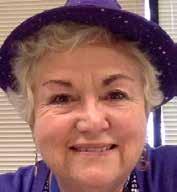
These are difficult, chaotic times. I have always been a news junkie - wanting to be aware of what is going on in the world. Not anymore, I have been so disturbed by what is happening I went on a news diet when the present administration began making decisions causing chaos in our democracy.
I have found the news disturbing and have been upset knowing what is happening. Even though I dislike avoiding the news, neglecting it has kept me feeling more inner peace.
I believe it is important to maintain a positive attitude and what we focus on molds our point of you, So for Israelis I want to advise them to choose what to focus on.
This past year has been filled with challenges for me. My son, David, was felled by a heart attack. My daughter, Michelle, went through a divorce. I’ve been getting treatment for macular degeneration. It’s been easy to feel like Hashem sees me as a target for trouble. I will not feel like a victim. I am determined to face each challenge and demonstrate resilience.
Rosh Hashanah provides a time for reflection and determination to live my best life.
I am grateful to be alive, I pray this new year will provide opportunities for me to do mitzvahs. It does me good to help others.
As I think of the new year, I pray for the opportunities to be a giver.
What I want to advise to others is to always look for the good and say yes to the opportunity to help others.
Arlene Appelrouth is a former freelance writer for Atlanta Jewish Times.
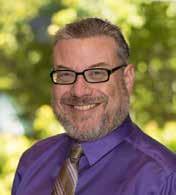
On Rosh Hashana of this year the number of days since the assault on October 7th will reach 717. We have had almost two full years of knowing that there are still people living under cruel captivity that had been stolen away on that day. And almost two full years that thousands of lives inside and outside of Gaza have hung in the balance of decisions made by powerful men in rooms to use the words of Rachel Goldberg-Polin, prophetic spokesperson for so many suffering family members of the hostages. Her message is simple, unwavering, and urgent: Bring them home. So, what should the message be to those of us outside those rooms?
For me, the answer has two parts which are interrelated: lend our voice and support to those who seek to end this season of violence even though we know that the real work of finding a lasting resolution lies ahead of us. And second, gather in places that affirm the best of what Jewish community can be. The High Holidays provide the impetus for both. We connect with each other and our community in the same room. We are lifted by the same melodies and absorb the same words - words that ground us in core beliefs, call us to be responsible for our actions, and, most urgently, inspire building a world embracing human possibility even in the face of the cynicism, degradation, and malice that seems to prevail so often. Outside the walls of our sanctuaries, we may feel powerless to effect change in an unjust world. Yet within the sacred precincts of the Days of Awe, wherever we celebrate them, we know that we have been created for just that purpose. Hayom harat olam! May this day on which the world is reborn bring with it the immediate end to the ordeals suffered by the hostages and all the lives that hang in the balance.
Michael Bernstein is the rabbi of Congregation Gesher L Torah, a dynamic community where Judaism is personal.


As we prepare to welcome the Jewish New Year, I find myself reflecting deeply on all that we’ve endured, all that we continue to face, and the incredible strength that binds us together as a people. The sound of the shofar calls each of us to attention — not just to mark the turning of the year, but to awaken our hearts to the work ahead and the promise of renewal.
This year, that call feels especially personal. During my recent trip to Israel, I witnessed firsthand the devastating aftermath of the Hamas attacks and the painful toll of war. Yet even in the rubble, I saw something unshakable: the resilience, unity, and spirit of Israel’s people. It moved me in ways I’m still processing — and reminded me that our strength comes from who we are and how we show up for one another.
Not long after, I had the profound honor of speaking at a parlor meeting in dialogue with a senior historian for the U.S. Holocaust Memorial Museum about my book chronicling my family’s journey to America against the backdrop of Nazism. I spoke not just of the hatred they faced, but of their courage, faith, and hope.
Today, we are again confronting the ugliness of antisemitism— on campuses, in politics, online, and in the streets — and we must stand together shoulder to shoulder against this senseless hate with clarity, unity, strength, and conviction.
We are each other’s keepers. Let us renew our commitment to come together — supporting our brothers and sisters in Israel, in our local communities, and around the world. Let us be better listeners, stronger allies, and proud, compassionate ambassadors of our Jewish values, and advocates for our people.
May this New Year bring you safety, strength, and sweetness.
And to our global Jewish family: may we continue to deepen our bonds, uplift one another, and build bridges that carry us all forward.
L’shanah tovah tikatevu v’techatemu — may we all be inscribed and sealed for a year of peace, purpose, and promise.
Theodore Blum is the Managing Shareholder-Atlanta & Chair of Corporate-Atlanta for Greenberg Traurig, LLP.

As we enter the season of Rosh Hashanah, a time of reflection, renewal, and prayer for a better year ahead, we are called to examine not only our personal lives but also our collective responsibilities as a people. This is a moment to share our hopes, our pain, and our unwavering commitment to one another. Our hearts ache for the families of the hostages. We pray you will soon be reunited with your loved ones. No family should endure such pain. Please know we stand with you and will remain by your side until the last hostage returns home.
We mourn alongside the bereaved families. We are deeply sorry for your loss. Your loved one is a hero, and so are you. Your families, friends, and all who share this pain carry the weight of sacrifice with honor. We stand with you, and we will forever keep their memory in our hearts.
To our soldiers, be strong and keep fighting for the Jewish people and for Israel, our Jewish state. We pray for you and for your loved ones. Do what you know best, because without you we will have no country. We salute your dedication, your sacrifices, and the bravery that holds our nation together. Stay strong! We have no one else to count on!
To the Israeli government, put politics aside and lead with vision. Show compassion, respect, and unity toward each other. The people have placed their trust in you, honor it by leading with empathy and working toward a better and secure future. The terror organizations and their cruelty must cease to exist. Their actions show a shocking disregard for human life and a betrayal of their own people and of humanity itself. The world must unite to condemn it, demand accountability, and build a future rooted in peace, respect, compassion, and humanity before this darkness spreads further.
For our Atlanta community, let us strengthen the bonds between Israelis and Jewish Americans. We need each other now more than ever, and by learning from one another and standing together, we can overcome challenges and thrive as a united community.
May we all work toward a future of respect, and peaceful coexistence. L’Shana Tova U’ metuka! #BringThemHomeNow.
Delilah Cohen is an Israeli American Jewish activist.


Rosh Hashanah is supposed to be the season of reflection and new beginnings. But this year, it’s hard for me to think about apples and honey without also thinking about the families of the hostages.
The truth is that there’s no neat blessing that makes their reality easier. Words don’t bring anyone home. But I think words do matter. Words remind us that we have not forgotten. That we carry their names into our prayers and around our holiday tables here in Atlanta.
What do we do with that? Rosh Hashanah isn’t just about looking back at where we fell short. It’s about who we want to be going forward. Maybe we can’t end wars from here, but we can decide what kind of community we’re building. We can choose not to give in to despair or indifference. We can choose to show up for one another.
To me, that’s the work of this holiday: to live out the world we want to see. One where families are reunited. Where peace has a fighting chance. Where hope is not naïve, but stubborn.
So, as the shofar blasts, I’m not hearing it as just a wake-up call to reflect, but as an alarm clock screaming, “Get up. Do better. Be Better.” Not because we can fix everything, but because all of us can fix something. Plant a tree in a neighborhood park. Mentor a kid who needs one steady adult. Stock shelves at a food pantry. Show up at a school board meeting. Start small, start close to home, but start. Do it in the name of the hostages, and in the spirit of tikkun olam
Shanah tovah. May this year give us the strength to be uncomfortable, the courage to create some good trouble, and, God willing, the safe return of those still waiting to come home.
Jay Cranman is the CEO of Jewish Family & Career Services.
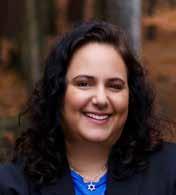
To Hamas:
You have declared global days of rage against the Jewish people and vowed to repeat the horrors of October 7th repeatedly. The psychological warfare you inflict, along with the innocent hostages you continue to hold, makes clear that this is not about land or justice. Your leaders live in comfort while your people suffer. For the sake of all innocent lives, I support Israel in neutralizing your threat.
To the families of the hostages:
Not a single day passes without thoughts of you and your loved ones. My heart breaks alongside yours, and I pray constantly for their safe return. May the world unite to #BringThemHomeNow.
To the people of Israel:
You are the heartbeat of your nation. I have seen your voice rise in the streets, your disagreements, your debates, and your passion for the future. I know you long for peace, just as we do. You are not alone, you are loved and supported.
To the Israeli government:
I do not envy the burden you carry. The responsibility of protecting your people while striving for peace is immense. I pray for wisdom in your decisions and for peace to come in this new year.
And finally, to all who read this: May this year be one of renewal, hope, and healing. Let us work together for a future where peace is not just a prayer, but a reality.
Shanah
Tovah U’ Metu Kah
Cheryl Dorchinsky is founding Executive Director of the Atlanta Israel Coalition and head quacker of #TheKosherDuckRevolution.

Brothers and Sisters.
When I arrived in Israel in the weeks after October 7, I caught a glimpse of what Chaim Nachman Bialik must have felt when he wrote his haunting poem Al HaShchita (On the Slaughter). As I put on a tactical helmet and bulletproof vest and walked through Kibbutz Kfar Aza, I saw things I can never unsee:
A campaign banner for a candidate who was no longer alive.
Oranges scattered beneath a tree, never to be picked.
A sukkah still standing, because no one from the home remained to take it down.
Paradise felt lost.
For a few days, I too felt paralyzed. Yet for you, this is not a passing moment: you continue to live this reality every single day as you wait for the hostages to come home.
This Rosh Hashanah, there will be empty seats across Israel that should have been filled by your loved ones. At our own family table, we will hold space for a hostage still waiting to return, praying that next year they will be free to join in celebration of the holy days.
I will never forget what I saw, nor what I learned. Across Israel, signs read: b’yachad l orech kol ha-derech: We are together for the duration of the journey.
This journey is not an easy one. There are no good choices, only painful ones. Yet know this: as your brothers and sisters, our souls are eternally bound together. Nearly two years ago at our Atlanta community rally, I shared these words: A good friend doesn’t throw you a rope when you are in a hole. A good friend climbs down into the hole and asks, “How can we get out together?”
Never forget that we are with you for the duration of this journey. We are in this together.
Am Yisrael Chai.
Daniel Dorsch is the senior rabbi at Congregation Etz Chaim in Marietta, Ga., and the immediate past president of the Atlanta Rabbinical Association.



One of the most awe inspiring and intense moments on Rosh Hashana is the Unesane Tokef prayer. For me it always felt scary, ominous and foreboding. All creatures shall parade before you as a herd of sheep. As a shepherd herds his flock, directing his sheep to pass under his staff, so you shall pass, count, and record the souls of all living, and decree a limit to each person’s days, and inscribe their final judgment. On Rosh Hashanah it is inscribed, and on Yom Kippur it is sealed - how many shall pass away and how many shall be born, who shall live and who shall die, who in good time, and who by an untimely death.
However, since October 7th this prayer feels different. It changed from ominous to horror. Could it be true that 10/7 was written on Rosh Hashana? Is it true that the fate of the hostages, fallen soldiers, civilians were inscribed 22 days before October 7th?
Unfortunately, as a nation we have a history of praying in the face of tragedy. The Artscroll Machzor recounts the history of this auspicious prayer as a prayer written in a time of tragedy and hardship. Rabbi Amnon of Mainz composed and recited this prayer limbless as he took his last few breaths when his small community was persecuted under Christian rule. Our prayer in question stems from tragedy. If they could write this with strong faith, we can recite it with strong faith.
Rabbi Taragin in his book, “Dark Clouds Above Faith Below,” writes Hashem took many korbanot - sacrifices from our people. We don’t know why. We ask Hashem to quickly redeem our people and restore our Mikdash so we can offer Him the Korbonot he desires.
Rabbi Taragin shares a message from one of the holy korbonot: Fallen soldier Ben Zusman z’L wrote before going off to war post-10/7: Even if something occurs, I don’t allow you to sink into despondency. I had the privilege to fulfill my dream rest assured I am looking down on you from heaven with a broad smile. When we live a life based on our values, we are prepared to die for them if the situation demands it. This isn’t death, this is an ennobled life. It is a tragic death, but part of a larger and eternal historical narrative. Rabbi Taragin posits that while we cannot know why they had to die; we do know that their death is merely physical. Their lessons and spirit live with us beyond their burial. A true Korbon.
Perhaps this is one approach to understanding this prayer. Every year we are evaluated for our life. Not because we will be destined to death or life on this day, but rather we are asking if we are living a life that is full of life. Will our actions have meaning and further our mission? Are we living consistent with our values and living in this world? Living means fulfilling our purpose and being true to our values. Are we fulfilling and following our values at the right time or do we need reminders to get back on track?
As we prepare for our High Holiday experience culminating in listening to the Shofar blasts let us take upon ourselves a good idea, resolution or commitment for the upcoming 10 days. It can be to learn, daven slightly slower or with more intent. Perhaps we can accept and make an effort in our interpersonal relationships with our friends and family. With the merit of our new commitments may we take the next steps forward towards living a life of life.









This October marks two years since the atrocities of Oct. 7, 2023. The pain from that day still feels raw, so present it could have been yesterday. In the time since, the brave men and women of Israel have carried a heavy burden: fighting to bring the hostages home, to protect their communities, and to restore peace to the land of milk and honey. They have faced not only relentless violence on the battlefield but also the weight of condemnation from the press, foreign governments, and social media. And yet, they perserve. They’re fighting with courage: for freedom, for life, for the very right of Israel and Israelis to exist in a land for the Jewish people.
This holiday season, I hold deep gratitude and respect for them, and for everyone in Israel. May they know that they are not alone. We are supporting them. We are praying for them. We are standing beside them as they fight to root out terrorism in the Middle East.
I pray that next Rosh Hashanah, every hostage will be reunited with loved ones, and every Israeli will be able to gather for the holy days free of fear, for their families, their future, their lives. This month reminds us of grief, yes. But it also reminds us of the power of hope and prayer. The strength we find in community. And the unwavering resilience of Israel.
What happened on Oct. 7 was a tragedy beyond anything I have witnessed in my lifetime. May we never forget. And may we always stand tall, together, against terror.
Am Israel Chai.
Jeffrey Gopen is the President and CEO of Jewish HomeLife.

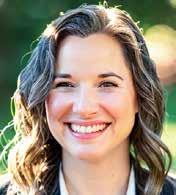
For every minute one of our brothers and sisters is in captivity, a piece of our collective heart is held hostage frozen in time, not beating, not pumping. Just waiting for the moment we can finally exhale the breath we’ve held since October 7, 2023. Waiting until our whole heart can beat again. Bring them home. Bring them home NOW. Seven hundred days is too long. Seven days was too long. Even seven hours was too long.
In the face of this endless tunnel of waiting, it is natural to feel helpless, paralyzed. It is easy to become stuck in our grief and let fear convince us that nothing we do will make a difference. This is our challenge now: How do we welcome a new year with hope and resolve, while holding our broken hearts and a fractured community?
This is not the first time the Jewish people have endured tragedy that seemed beyond bearing. Rabbi Lord Jonathan Sacks, reflecting on the resilience of survivors of the Holocaust, noted that our determination to continue is rooted in faith in life itself faith that even the smallest acts of goodness can bring light into a darkened world. When we strive to lift the good, to seek out the mundane and give meaning to it, we maintain belief in our ability to effect positivity in this world.
When we do chesed, acts of kindness, for others, we sanctify our community and infuse it with blessing. On Rosh Hashanah, we sanctify and assign meaning to simple things apples, grape juice, honey that we often take for granted. We pause to remember that the world is holy, and that we can contribute positively to it. This is how we renew our faith in life: by carrying on, by believing that even when we feel small and ineffective, we hold within us the incredible potential to make our world better and more filled with blessing.
We may not have the answers. We cannot resolve this unbearable situation alone. But as we enter this new year, we can renew our faith in our ability to effect positive changes and bring light into the world. And we can hold fast to our faith that one day soon, we will exhale and our whole heart will beat again.
Rebecca Guttman is the Manager at Jewish Fertility Foundation – Atlanta.










If I were to send a message to the people of Israel, the Israeli government, the families of the hostages or even Hamas I would send them words from the Hatikvah, our national anthem, ode lo avdah tikvatenu, we have not lost hope. For the people of Israel, I would want them to feel our strength and our undying belief that tomorrow will come, and things can and will improve. I would want them to understand we stand with them as the People of Israel and we will never lose sight of the hope of being a Jewish people in the world, and in our ancestral homeland. For the Israeli government, I would want them to understand my words as knowing we cannot give up on believing in humanity and the presence of humanity in places, we least expect it. For the families of the hostages, I would want them to know that hope is the single greatest natural resource they have at their disposal. To wake up every morning knowing that if we have hope, there can be a day where they can hold their loved ones again or at least be given closure. For Hamas, these words should mean we Jews are a peculiar group. Our thousands of years of history have lit a fire within us that forbids us to ever give up on anything. Our hope is something that no amount of terror and hatred can ever destroy. Our hope, belief, and knowledge of the righteousness of our cause is something that will never be taken from us. It is awful that we are entering the third year of this conflict we did not choose. May the sounds of the Shofar pierce our hearts and our souls. May it be that we find the Shofar to communicate that our hope is quite alive. May it be that the Shofar awakens us to a commitment to always have hope, even in our darkest and most trying of times. Each day of Rosh Hashana we sound the shofar 100 times. Over the two days as we hear 200 blasts, may we each close our eyes and see our place in this world and dig deeper in our hope to never allow it to be lost.
Josh Hearshen is the rabbi of Congregation Or VeShalom.


I had the opportunity a few weeks ago to hear one of my heroes, Krista Tippett, speak to a group of rabbis at the Shalom Hartman Institute. She reflected that we are living with a distressed nervous system at a species level right now. And for us in the Jewish community, layered on top of that is this terrible war. October 7th blasted through and surfaced geologic layers of trauma, she shared, and we continue to sit in the heartbreak and the wreckage.
We are expected to process in an instant what will take a lifetime, or more likely multiple generations, to heal. And I have been reflecting so much this past year on all the ways that we have been shaped by all the realities beyond our control, and how we might become reacquainted with our fundamental humanity during these high holidays.
I know because of the instantaneous way that we receive news and communicate with one another that we expect ourselves to have instantaneous responses. The moral clarity we might feel in a flare of anger feels so righteous and good - to know exactly who is to blame for all the horror. But when and where can we tend to the pain and vulnerability that are underneath?
Setting down all the light speed technologies and the immediate responses from AI, I’m feeling the need to pick up the more ancient technologies that Jewish wisdom offers us in this season: finding a body of water to toss our birdseed and hopes and regrets into and letting them be carried away in the current. Singing ancient words of compassion, el rachum v chanun, G-d of mercy and grace, next to other human beings - friends, family, and strangers. Being called to wakefulness by a ram’s horn, and asking ourselves: what pieces of my own aliveness and humanity do I want to reawaken in this year to come?
This year, I pray that we can find a home for ourselves - in our bodies, our families, our communities, and our world. I pray that our hostages finally return home. I pray that all who have been wrenched from their homes in Israel and Gaza find their way home, and that all our people, all of humanity, can finally live in safety and security. L’shanah tovah - to a better year ahead for all of us.
Lauren Henderson is the rabbi at Congregation Or Hadash in Sandy Springs.
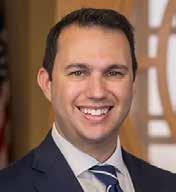
The prompt I was invited to respond to for this column was: Rosh Hashanah soon upon us, what message would I send to Israel, to her leaders, to the families of the hostages, even to Hamas? The truth is, I am an American rabbi, not in a position to issue dictates across the sea. But I can share some thoughts.
To the families of the hostages: you are in our prayers. May the new year bring your loved one home.
To the people of Israel: you are not alone. We send love and strength. Israel is not simply an issue for us, Israel is family. I lived there for two years as a student and return often. I met my wife there. Here in America, nearly thirty Israelis worked this summer as counselors at Camp Coleman, where I’ve taught for years and where my kids spend their summers. We’re blessed to have an Israeli shin-shin be a part of our congregation every year, introducing Israel to our children and deepening the ties we have with you. Our bonds are deep; our hearts are with you.
To Israel’s leaders: Leading Israel is among the hardest tasks in the world. We pray that the strength you summon to protect the people will be matched by the wisdom of compassion. As Rav Kook taught, the greater the power of Israel grows, the more it must be filled with kindness and mercy. May this year bring the courage to pair strength with mercy, guiding Israel toward a future of justice and peace.


To Hamas: Words could reach such hardened hearts we would say: stop choosing death. Release the hostages. Let your people live.
And to ourselves, here in America: this is also our season of choice. We face rising antisemitism, polarizing debates, and moments when hope feels far away. The High Holy Days remind us that despair is never the Jewish path. We can’t control everything-or maybe even most things. But we are commanded to choose life to turn, to return, to act in with goodness, trusting that our choices and our deeds matter. May we choose life and merit a good new year.
Shanah Tovah.





Last year, our community entered the High Holidays with the theme, From Darkness to Light. I did not yet know how to be at peace with the dark. So, I prayed for the strength to sit with uncertainty, with grief, with shadows not yet lifted.
A year later, I can say that prayer was answered. I am more comfortable in the darkness than I was. I have learned that sometimes all we can do is breathe in the dark, trust one another in the dark, and remember that G-d is present even when the light feels far away.
A year later, I also know that no one wants to stay in the darkness forever. I’m tired of waiting for the light to emerge.
This year, as we approach the High Holidays, I find myself praying again. I am praying for the nightmare of the darkness to shift into a dream for a beautiful future.
The Psalmist says: When G-d restored the fortunes of Zion, we were like dreamers (Psalm 126). It is a psalm of exile and return, of sorrow transformed into joy. It does not deny the tears but insists that tears can water the seeds of redemption. Those who sow tears shall reap in joy.
Our world is not yet redeemed. War and violence still rage, hostages remain captive. Families still grieve. But if the last year has taught me anything, it is that even in the darkest night we dare not surrender our capacity to dream.
The Jewish dream is ancient and enduring: safety for our people, peace with our neighbors, and a future redeemed from cycles of violence. It is not naive to dream of this. It is our sacred inheritance.
Here in Atlanta, we are called to carry that dream forward through our prayers, our learning, our compassion, and our commitment to each other. May our tears give way to joy, and may our dreams draw us closer to the light G-d still calls us to build.
Ari Kaiman is the rabbi at Congregation Shearith Israel.

The Gates of T’shuvah are opened wide. Will we walk through them? It takes courage, humility and even intentional vulnerability to enter and dwell in the physical and spiritual space where we examine our lives and vow to grow and change for the better in the year ahead. As we seek forgiveness from those whom we’ve harmed may we also extend this forgiveness to ourselves. The well-known phrase from Leviticus 19:18, V’ahavta l’rei-acha kamocha, “Love your neighbor as yourself …” presumes that we first love ourselves. Why love ourselves? Because we were created b’tzelem Elohim, in the image of the Divine. May every note that is sung and every word that is uttered during these High Holy Days open our hearts towards ourselves and to one another. Together, let us walk through these daunting gates, gaining insight from our introspection and strength from our community.
Shanah Tovah to All.
Nancy Kassel is the Cantor at Temple Beth Tikvah in Roswell, Ga.
Wishing for a year of peace, endless opportunities, blessings & growth
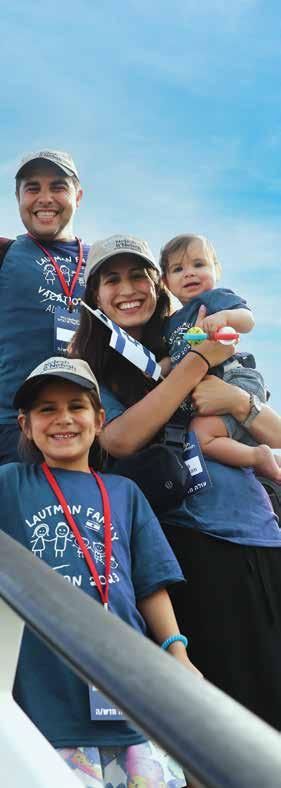

ALIYAH INTEGRATION NATIONAL SERVICE NATIONAL DEVELOPMENT ZIONIST EDUCATION

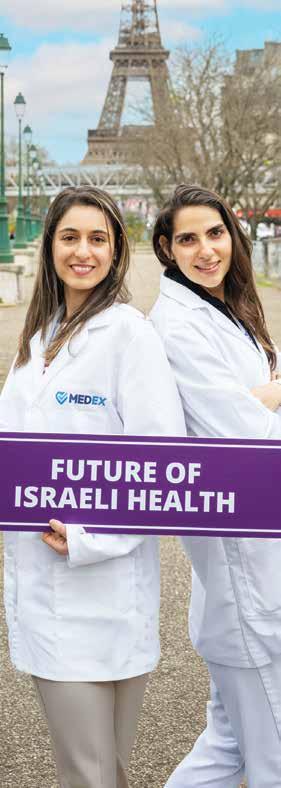
Building a stronger Israel for today and tomorrow



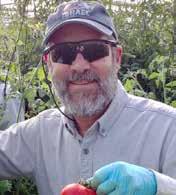
Chazak V’Ametz! My message to the people of Israel, families of the hostages or the Israeli government would not be the parting words that Moses gave to Joshua as the Children of Israel were getting ready to enter the Promised Land...Chazak V’Ametz, be strong and courageous! The Israeli people, despite the national trauma of October 7th, have shown remarkable resilience and courage and strength. In war zones people tend to flee. But in this war, Jews and our Gentile friends from around the world have returned to Israel as lone soldiers, as volunteers and to give emotional support to her citizens. I have seen this firsthand in my four trips to the Holy Land after October 7 with another scheduled in a few weeks.
My message is to my fellow Jews in the Diaspora: Be strong and courageous in supporting our brothers and sisters in the Holy Land and in standing up as proud Jews.
Hashem did not bring us this far to bring us this far! The people of Israel have taught us diaspora Jews a big lesson in their strength, in their faithfulness to G-d and their abounding courage.
As the scourge of antisemitism rears its ugly head, we need to double and redouble our efforts to stand as proud Jews, as our brothers and sisters in Israel do every day. Despite the apparent difficulties they face, Israelis continue to be at or near the top of all countries in a “Happiness Index.” This is confirmed by data from the World Bank, of the 38 OECD (Organization for Economic Cooperation and Development) nations, only Israel has a fertility rate above the Zero Population Growth replacement level of 2.1 and stands at 2.9 Not only the religious, but many secular Israelis are also having large families. In comparison, the US is at 1.6 births per woman. Happy people want to bring children into this world, as the opposite is equally true.
Let’s hear good news out of Israel with the safe and speedy return of all the hostages and for peace and healing for all those who need a physical or spiritual refua shlaima!
Warm wishes from my family to yours for a Happy, Healthy and Sweet New Year, L’Shana Tova U’metuka!”
Mitchell Kaye is a former State Representative. Together, with his wife, Amy, they have three children and six grandchildren.

Dear Ariel Cunio, Alon Ohel, Eitan Horn, Avinatan Or, Elkana Bohbot, Evyatar David, Bipin Joshi, Ziv Berman, Gali Berman, David Cunio, Eitan Mor, Maxim Herkin, Omri Miran, Bar Abraham Kupershtein, Guy Gilboa-Dalal, Nimrod Cohen, Matan Zangauker, Tamir Nimrodi, Matan Angrest, Segev Kalfon, Rom Braslavski, Yosef-Haim Ohana, Itay Chen, Eliyahu Margalit, Eitan Levi, Sahar Baruch, Joshua Luito Mollel, Tal Haimi, Arie Zalmanowicz, Ran Gvili, Dror Or, Tamir Adar, Ronen Engel, Inbar Hayman, Guy Iluz, Asaf Hamami, Lior Rudaeff, Muhammad AlAtarash, Meny Godard, Omer Neutra, Yossi Sharabi, Daniel Oz, Daniel Perez, Uriel Baruch, Sontia Ok’Krasari, Sontisek Rintalk, Amiram Cooper, and Hadar Goldin,
As I collect my thoughts ahead of Rosh Hashanah, I want you to know that I think about you every day. We’ve never met. I’m just another Jew in the world, a Reform rabbi in Atlanta who cares deeply about Israel. My second child was born just after the war began. At his Brit Milah he became known among the people of Israel as, Oz Yisrael, the strength of Israel. In doing so I prayed that a spiritual strength be sent to the hostages, the IDF, and all who care for the well-being of the State, land, and people of Israel.
Each day, I pray for those whose lives were taken too soon that they may be returned to our homeland for a proper burial, and that their families may find comfort in having a place to feel near to them. I pray for those whose lives are suspended but whose hearts still beat that they may return to the embrace of loved ones who cry out for them every day.
We don’t know one another, but my voice cries out for you. As the New Year begins, and for as many days as it takes, I pray that you return swiftly and soon.”
Rachael Klein Miller is a rabbi at Temple Emanu-El in Sandy Springs.

Congregation Ariel, located in beautiful Dunwoody welcomes Jews of all ages, stages and backgrounds. Join us for daily minyanim, classes with Rabbis and one-on-one learning. Ariel is also partnered with the Atlanta Scholars Kollel, hosting classes, workshops, and study groups. Ariel also hosts a thriving Israeli/Sephardi community led by Rabbi Yossi Vakrat. Ariel’s youth groups are full of energy and learning for all ages. Our campus includes a modern sanctuary, social hall, an elegant women’s mikvah, and Keilim mikvah. This year Ariel welcomes Rabbi Pinchas and Rebbetzin Naomi Fink, to Dunwoody, a new generation of leaders.










As we welcome 5786, our hearts are full and grateful for the blessing within our own family and hopeful for healing and peace for our extended Jewish family around the world.
This year is especially meaningful for us, as our family continues to grow. Two new grandsons will be joining us soon, one in NY and one in Atlanta. These future additions will certainly bring even more joy (and yes, a bit more chaos). Watching our grandchildren discover the world reminds us of the very essence of Rosh Hashanah; the gift of renewal, the sweetness of fresh beginnings, and the promise of a future we must all work together to protect and nurture.
It is impossible to look into the eyes of grandchildren and not think of the children and families in Israel. They long for safety, for peace and for the return of their loved ones. To the families of the hostages still in Gaza, we say “your pain is our pain.” You are not forgotten. May you soon know the embrace of reunion and may your suffering give way to healing.
To our community, we offer this encouragement, let us continue to draw strength from one another. In difficult times, it’s easy to feel powerless, but small acts of kindness and generosity can have a ripple effect in ways we may never fully see. Just as we teach our grandchildren that every choice matters, we too must live by that truth. We choose compassion over indifference, hope over despair, and connection over division.
This year at Rosh Hashanah may we hold tight to the sweetness of life’s blessings and channel that love into building a more peaceful and caring world.
Eydie Koonin is a realtor with Atlanta Fine Homes Sotheby’s International Realty and Steve Koonin is the CEO of the Atlanta Hawks and State Farm Arena.

A Message to the People of Israel: Since childhood, Israel has been woven into the fabric of my identity. My mother is Israeli, and though I was raised in Atlanta, the rhythms, the history, and the spirit of Israel have always lived within me and shaped not only who I am, but how I understand the central place of Israel in the life of the Jewish people.
I know that these past two years have been unbearably heavy. I know many of you feel abandoned and misrepresented in the media, condemned by voices that twist truth, and unfairly singled out as if the one Jewish state were the source of the world’s ills. But hear this clearly: you are not alone, and you never will be.
From Atlanta to every corner of the Jewish world, millions stand with you with unshakable resolve. We advocate relentlessly on your behalf. We raise and send vital funds. We partner with organizations on the ground in Israel. We strengthen personto-person connections that bind our communities together. We bring Israeli education into our homes, our schools, and our synagogues. In every way we can, we affirm our solidarity not as an abstract idea, but as a living commitment.
As we approach Rosh Hashanah, a time of renewal and reflection, our hearts are with you. The hostages still held in Gaza remain in our daily thoughts and prayers, and their absence is a constant reminder of why our work in Jewish Atlanta matters so deeply. We carry them with us into every action, every conversation, and every prayer literally around our necks with Bring Them Home Now necklaces determined to see them safely returned.
The Jewish Federation system has proven, time and again, that we will not falter. Through our actions, our voices, our resources, and our leadership, we guarantee that no matter how dark the days may be, Israel is never alone. Your fight, your resilience, your future- these are ours as well.
So, to the people of Israel, my message is this: Hold fast. See you. We love you. We will not turn away. Your pain is our pain, your strength is our strength, and your destiny is inseparable from ours. Am’ Yisrael Chai today, tomorrow, and forever. May 5786 finally bring some much-needed respite and peace.
Renee Kutner is the president and CEO for the Jewish Federation of Greater Atlanta. Kutner is active in multiple community organizations, including Congregation Ohr Ha Torah.
EL AL. It’s more than an airline. It’s Israel.


There are no words large enough to hold the weight of your pain. No language has ever been strong enough to describe the silence of an empty bed, the ache of an unopened door, the prayers whispered into the night with no answer. And yet, I write to you with trembling hands and a full heart, because your suffering must never be carried in silence it must be shared, honored, and felt by all of us.
Every morning you wake and carry a burden that no parent, no child, no sibling should ever know: the unbearable not-knowing. You rise into days that feel longer than eternity, where each second stretches between hope and despair. You set a place at the table in your mind, imagining your loved one’s smile, their laughter, their presence and then you face the unbearable truth of their absence. This is pain beyond endurance, and yet you endure.
You are warriors of the heart. The world sees you on television, holding photographs, chanting their names, demanding their freedom. But what the world does not see are the tears you shed alone, the sleepless nights, the moments when the silence feels like it might crush you. Still, you rise. Still, you hope. Still, you love so fiercely that nothing no cruelty, no captivity can extinguish it.
We know that each hostage is not just a name, not just a number, but a whole universe. A father who tells bedtime stories. A daughter who dreams of the future. A mother who holds her family together. A son whose laughter fills the house. They are not faceless, and they are not forgotten. Their lives matter more than anything, and your pain matters just as deeply.
To the government and leaders of Israel: these families look to you not just for answers, but for action. Each hour that passes is a scar etched deeper into their souls. The return of these hostages is not only a matter of politics it is the beating heart of our humanity, and the sacred promise that Israel will never leave its sons and daughters behind.
To you, the families: know this you are not alone. Your pain has become the pain of an entire nation, of the Jewish people across the world, and of all who believe in justice. Your prayers have become our prayers. Your tears have become our tears. The world watches, the world waits, the world cries with you.
Until the moment comes when you hold your loved ones again, we will not stop. We will not be silent. We will not rest. The story is not finished the end must be one of return, of reunion, of life triumphing over death, of love breaking the chains of cruelty.
May you find strength in the arms of one another and may hope, fragile though it feels, carry you until the day your loved ones come home.
With deepest solidarity, pain, and love.
Eti Lazarian is a dynamic commercial real estate professional, entrepreneur, and philanthropist who blends business expertise with a passion for community impact at Insignia LLC.
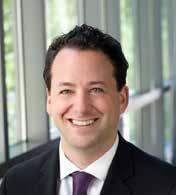
To the Families of the Hostages, The world owes you more than thoughts and prayers. You deserve action, persistence, and an unrelenting demand that your loved ones be returned.
From the first days of our people, the mitzvah of pidyon shvuyim, redeeming captives, has stood as one of Judaism’s highest imperatives. It is not theoretical. It is a command to move heaven and earth until those who are taken are restored. That responsibility belongs to governments and leaders, yes, but also to every community that claims to care about human dignity.
You are living in a nightmare, and yet you’ve carried yourselves with courage that has humbled the rest of us. By speaking, by waiting, by refusing to let the world look away, you’ve taught us what it means to hold hope even when every instinct would give in to despair.
Know this: your loved ones are not forgotten. Their faces are on our walls, their names are in our prayers, and their absence is a wound we feel across oceans. The demand for their return is not going away.
May that day come soon, and may it come because people refused to be silent. Until then, we will not stop saying their names. We will not stop pressing their cause. And we will not let the world grow comfortable while your families remain torn apart.
In solidarity –
Bradley G. Levenberg, PhD, is the Senior Rabbi at Temple Sinai and President of the Atlanta Rabbinical Association.



While Southern hospitality and charm seem hard to find in some parts, you’ll experience them every day at Somerby Sandy Springs Senior Living. Let us take care of the daily chores while you explore the best of nearby north Atlanta. Or stay home and enjoy our beautiful, multi-lifestyle community with a recent multi-million dollar renovation. Best of all, you can enjoy engaging events, endearing neighbors, and a chef prepared meal that’ll remind you of how charming life can be at Somerby.
Experience a superior level of hospitality and attention to detail that some have all but forgotten. Call (256) 579-0001 to schedule your personal visit.






To the People of Israel:
We know the Israel Government strategy. Israel won the war in Gaza and expected Hamas to surrender unconditionally, just as the Germans and Japanese did when they lost the war in World War II. But Hamas refuses to surrender and continues to fight.
If Hamas refuses to surrender no matter how decimated their war effort is, then what must Israel do to get Hamas to stop fighting and give up its commitment to destroy Israel? The US and other countries around the world have failed to convince Hamas to negotiate for peace. The only approach that seems left for Israel is to make the people in Gaza suffer enough so they push Hamas to negotiate a peace treaty. That suffering is taking the form of less land to live on, a minimal amount of food for survival, no support for their economy and no reconstruction effort for the existing wide scale destruction. Israel’s strategy is to make the Palestinian people relieve their suffering by pushing Hamas and other Arab countries to negotiate for peace, but no one knows how long Hamas will let the suffering continue.
After World War II, the winning countries controlled both Germany and Japan until a new government in each country was formed under ally control that operated with peaceful intent. Eventually the people there elected their own leaders. That is a long way off so long as Hamas refuses to negotiate for peace.
For this coming New Year and beyond, we Americans will support your efforts and pray that Hamas eventually concludes that its only way forward is to negotiate peace with Israel. Only then will it make sense to establish a Palestinian State and then the European countries will be able to support a new Palestinian state, but that time is way off and is totally dependent on Hamas.
Allen Lipis is a freelance writer for the Atlanta Jewish Times.

If I could send a message to the families of the hostages, it would be one of pure sympathy. I can’t even begin to imagine the unspeakable pain and suffering you have endured over the past couple years. I can imagine, however, that this time of year is particularly upsetting as it is not only the anniversary of the October 7 attacks, but it is also the Jewish High Holidays. During a time when many of us are attending shul and having festive meals with relatives as we usher in a new year, it is important to remember that so many of our fellow Jews, such as yourselves, are suffering.
Please know that you are not suffering alone. With each passing day that you are longing for your loved ones, we stand with you. We pray for you and your relatives who are still in captivity. Your perseverance and ability to carry on with your lives while grappling with such a horrendous situation that few can comprehend is an inspiration to us all. Though Rosh Hashanah may be considered a festive holiday, the plight of the hostages--and their families--remains at the forefront of our minds.
With great respect.
combining technology and artistry to create exceptional dentistry. As a comprehensive dental office that goes above and beyond our specialty in Cosmetic Dentistry, our patients believe Dr. David Mastro is the right choice for all your family dentistry needs!
When it comes to your smile and oral health, Dr. Mastro has a proven 30 year track record of providing quality cosmetic and family dental care for families in our local community and around the world.







May your hearts and your homes be filled with the sweet aroma of what makes life important: eating hearty meals with family and friends, laughing, loving, and reconnecting. May we treat each other with love, dignity, and respect, each and every year. Love you all!
Happy Rosh Hashanah to everybody!
Tiffany Parks is an educator and freelance writer for Atlanta Jewish Times.
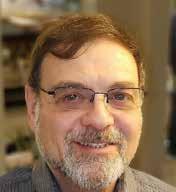
Rosh Hashanah, the Jewish New Year, is more than just a date change, it’s a spiritual reset. As the song goes, “If I could turn back time,” with apologies to Cher, I would send out multiple messages.
To the Israeli government/IDF: Pay attention to the noisy neighbors! Like when the children are playing and it gets really quiet, something is up! Go check on them, turn the lights on and preempt the upcoming disaster.
To the Israeli people: Be forever vigilant and always be prepared for the worst. You never know what the worst of the worst are planning and you are always their targets. Complacency is your enemy.
To the families of the hostages: I am so sorry that we failed you and you must endure the anguish and heartbreak caused by so many others who were lulled into a false sense of security.
And finally, to the worst of the worst themselves, Hamas, you have once more underestimated the Jewish people. We were here before you and we will be here after you. Your time is short so start lining up your virgins. You will be seeing them shortly. Hopefully they won’t mind you’re missing a part or two.
Jewish tradition teaches that on Rosh Hashanah, G-d opens the Book of Life, where our deeds for the coming year are inscribed. It’s a poetic way of saying our choices matter, and we’re given a chance to write a better story. The better story is near but still slightly out of reach.
Once this iteration of eliminate the Jews has concluded, we need to remember that Rosh Hashanah is also a holiday of connection between families and generations, between humanity and the divine. Even in the face of today’s struggles, it isn’t about guilt or fears about possibility. It reminds us that life isn’t fixed in stone. Mistakes don’t define us; what we do next does. We will rebuild our lives, we will remember those who we lost, we take care of those scarred by this horrific chapter and continue to be the beacon of hope and sanity in today’s world.

If I could send a message to the people of Israel, the Israeli government, the families of the hostages, or even to Hamas, I would emphasize the urgent need for compassion, understanding, and a commitment to peace in this deeply complex and painful situation.
To the people of Israel, I would recognize the tremendous pain and fear that they are experiencing with the threat of violence, the loss of loved ones, and the uncertainty of the future. I would urge them to remember that their safety and security cannot be achieved through a continuing cycle of violence and retribution. Each life lost is a tragedy that echoes beyond borders and generations. I would encourage the people of Israel to hold on to hope and to seek avenues for dialogue and understanding.
To the Israeli government, I would advocate for policies that prioritize diplomacy. While the need to protect citizens is undeniable, I would call upon the government to work toward a negotiated peace. Lasting security comes not just from military might, but from fostering an environment where both Israelis and Palestinians can live in dignity and peace.
To the families of the hostages, I would express my deepest sorrow for their unimaginable suffering. The anguish of not knowing their fate is a pain that no one should endure. I would want them to know that their loved ones are not forgotten. The calls for their safe return should be a rallying point for all who seek peace and for a humanitarian approach that values life above all.
Finally, to Hamas, I would implore the leadership to reconsider their tactics and the impact of their actions on both their own people and the Israeli populace. Violence begets violence. Engaging in dialogue and recognizing the humanity of all involved can pave the way for a resolution that honors the dignity of both people.
In conclusion, the path to peace requires courage, vulnerability, and a willingness to listen to the stories and experiences of others. The message I would send would center on the hope that, despite the current darkness, there remains a possibility for understanding and reconciliation. Peace is not merely the absence of conflict; it is the presence of justice, empathy, and respect for humanity.
May the new year witness a renewal of optimism and hope for a brighter and more enlightened future! Am Yisrael Chai!
Ray Alyssa Rothman is a commercial real estate broker who focuses on land. Her side business is Kibbitz & Konnect, the premier in-person social network for Atlanta’s Jewish singles community.



If I could send a message to people of Israel: We cannot truly grasp the uncertainty of life in Israel as it was before October 7, 2023. Our hearts ache for the families whose beloved children, grandchildren, parents, siblings, and friends were taken or killed on October 7th, we share in your grief and pray for peace. Your resilience inspires us, and together we find strength and hope, and the Jewish nation will rise and rebuild. The memories of those lost will forever be a blessing. and the strength of our survivors will carry us forward with love and solidarity. Am Yisrael Chai the spirit of Israel shines bright!
If I could send this message to Hamas: Violence is not power, and human life is not negotiable. The only way to be heard is through peace, not terror. True strength comes through humanity and compassion, not cruelty. Release the 48 hostages Immediately!
Chag Sameach. May Shalom fill our lives and our world with fullness in our heart.
Gayle Rubenstein is the owner of Balloons Over Atlanta, participating in three decades of joy made possible by our amazing community.







Rabbi Arnold Goodman, of blessed memory, rabbi of my youth in Minneapolis and my immediate predecessor as senior rabbi at Ahavath Achim Synagogue here in Atlanta, shared the benefit of his retirement experience learning with me. Rabbi Goodman said, retirement entails a redirection of efforts. I have often reflected on Rabbi Goodman’s wisdom as I further delve into my own efforts in retirement.
A redirection of efforts: I’m sure that most retirees find at least one or two new activities to try in retirement. But a redirection of efforts implies there can and often is a renewed emphasis on an activity in which the retiree previously engaged. That has proven to be the case during my early retirement.
One aspect of my active rabbinate that I especially appreciated was the pastoral realm. It lifted me up to help people uplift themselves. I often felt G-d’s presence in those spiritual moments. Now, with more time available to me, I participate in this process of healing more often than I did when I was an active rabbi pressed for time. I better recognize people’s needs as they go through the journey of poor health.
For the past two years, strengthened by the supportive efforts of Senior Chaplain Grace Powell Freeman, Rabbi Judi Beiner and one of our community’s newest rabbis, Michael Bram, I have served as a volunteer member of Emory St. Joseph’s chaplaincy staff (and I have the cross - demarcated parking sticker on my car to prove it!). Generally, as I enter a patient’s room, I experience what I often felt when I visit my own congregants. People generally appreciate a rabbi visit, any rabbi, their own or otherwise. For many of those who are hospitalized, the rabbi symbolizes G-d’s presence and the hope that a positive health outcome will ensue. For a moment or more, the infirm individual feels empowered to raise himself/herself up toward recovery and improving health. The significance of my rabbinic work has never been greater than when I stood next to a person in a hospital bed.
For more than 40 years, including the last 20-plus years in Atlanta, I was blessed to serve as a congregational rabbi. As I redirect my efforts I enjoy many blessings. As we enter the New Year, Susan and I wish you and your loved ones the ability, if appropriate, to redirect efforts and enjoy many blessings.
Neil Sandler serves as rabbi emeritus of Ahavath Achim Synagogue.


I would like to wish you a happy, healthy, and prosperous new year.
The last year has been filled with tragedy and challenges but also proven our resilience and given us reason for hope. With the spread of hatred and antisemitism, Jews across the United States have banded together, returned to Jewish spaces, and in many cases, strengthened Jewish identities, commitment, institutions and communities. In the years ahead, we can envision a Jewish world that is not only better educated but also better connected to their fellow Jews.
Rosh Hashanah is a time of reflection, renewal, and anticipation for the year ahead. At JELF, Rosh Hashanah offers us a fresh start, allowing us to embrace new opportunities and challenges with renewed vigor. May the new year bring a world where the hostages are free and safe, may this year bring an end to fear and suffering, and hate that plagues our world, and give way to a world of peace.
May you and your family be inscribed in the Book of Life for a year filled with health, happiness, and peace. L’Shana Tova.
Emily Sauerteig is the Board Chair for Jewish Educational Loan Fund.

As we welcome the New Year, I wish for you to be blanketed by love, prosperity, and the warmth of your family and friends. May this year bring you a multitude of blessings and many moments which will become beautiful memories. May you and your family be inscribed in the Book of Life for a year filled with health, happiness, and peace.
Shanah Tovah Umetukah!
Shaindle Schmuckler is a freelance writer for Atlanta Jewish Times.

Maybe it’s a Southern thing that we say hello to our neighbors, but I was a little surprised recently, having just moved from Jerusalem to Tel Aviv, at the hello I received. My new landlord gave me the number of another building resident, the head of our housing committee, to ask for a mechanical key to the building that I could copy so that I wouldn’t have to use the electronic keypad on Shabbat. I reached out over text to introduce myself and ask for the key. In response, she called me on the phone to tell me that the building is not for people who observe Shabbat; it is for secular people only, and I would need to adjust myself to that and use the keypad on Shabbat, despite my beliefs and practice. And so on.
To be clear, there is a mechanical key, but she wanted to prevent me from having it. I was quite shaken at such forthright and blatant discrimination. I wrapped up the call with proper southern manners and contacted my landlord, who was thankfully horrified and later managed to procure the key for me in another way.
Several colleagues overheard the call and were super upset on my behalf, though mostly secular themselves. They encouraged me to escalate the matter legally and not to be shy just because I’m not yet confident at yelling and arguing in Hebrew. I joked right away that I should have invited the woman for Shabbat dinner.
When I called my parents a short time after, I expected my father, a civil rights attorney, to be outraged as well at this injustice. Instead, my parents encouraged me not to take it to heart, and to befriend this woman and show her my values and beautiful way of life. Why don’t you bring her some honey for Rosh Hashana, my mom suggested.
It is clear to me that a person who would call me up like that has something going on that upsets her that has nothing to do with me. It has been a long and very difficult two years for all of us, and you never know what anyone is facing at any given moment. That has always been true, but you see the struggle written on people’s faces a little more clearly these days and feel the sharp lines of division at a time when we need to come together more than ever.
My friends, it is time to drop the divisions. Our enemies don’t differentiate between us, and we must not either. Whether we need to remind ourselves to be dan lkaf zechut (judge others favorably), or drop our own prejudices, we can and must choose, every day, to come together with love. Perhaps there is nothing more cliche, and yet I can think of nothing else to say right now. Refuse hate in your heart. Don’t let anyone else draw lines for you. I will do as my mom suggested and bring my neighbor some honey. With respect for each other’s choices and familial love, we fight the dark hate that threatens to engulf us.
Maayan Schoen studied in the Migdal Oz Beit Midrash for Women in Israel and recently graduated from Yale University. She now lives in Jerusalem and is chief of staff for Deputy Mayor of Jerusalem and Special Envoy for Innovation Fleur Hassan-Nahoum.


Beginning on October 7, 2023, like most of us, I poured out love to all the souls in the wake of unspeakable evil. I screamed my rage to Hamas. I prayed for Israeli leaders to govern wisely, and for families to find the strength to keep taking their next breaths.
I watched the cancerous spread of hatred. I witnessed regular citizens glazing over in trancelike acceptance of lies, chanting slogans of evildoers.
My stream of tears would dry and flood again with each new piece of tragic news. The helplessness needed to become action. Grief, redirected into service, is healing. I created art whose proceeds went directly to aid wherever it was needed.
When Jews and non-Jews asked what they could do, I encouraged them to use their gifts and to also direct their energies toward telepathically sending out love and setting the intention of peace.
Telepathy, a term coined in 1882 by scholar Frederic W. H. Myers, may still not receive scientific relevance, but there’s much suggestive evidence of its powerful effect. It’s a vicarious transmission of information from one person’s mind to another’s without using any known human sensory channels or physical interaction.
Many of us have closed our eyes and sent love to the hostages, the families and to leaders. Who among us didn’t beam our heart lights to Yarden Bibas when the tragic news had been confirmed?
It’s not an empty activity to make us feel useful. It has power and connections. As does setting an intention of peace. We can all make it our daily practice to be grounded and steep our thoughts and actions in a vision of peace. We don’t have to know how or when it will happen, just that when we joined together, it will happen. We can see it and breathe into it in detail, as if it has already occurred. We can take actions aligned with peace and pray to Hashem. What begins on the etheric plane, through our intention, repetition, and peace-seeking actions, can manifest on the most dense, physical plane, until our vision matches our reality.
Like a single candle can light a room, each person lighting a candle, can illuminate the world. Please join me in this New Year in lighting the path to peace.
Shana Tovah.
Dr. Terry Segal is a licensed psychotherapist with a Ph.D. in Energy Medicine, author, and mixed media Judaic artist.

The Talmud, in Menachot 43b, teaches, “A person is obligated to recite one hundred blessings every day...” This is what G-d requires of us. This would be a blessing every ten minutes. Since October 7, the world has been heavy as we pray for the return of the hostages, peace for the families of those who were killed, and an end to the war. As the High Holy Days begin, the heaviness remains. But, as tradition also teaches, we shouldn’t mourn when we are required to celebrate. In fact, Shiva is cut short if a holiday comes before the seven days have concluded. Tradition recognizes that we are then required to hold two conflicting emotions at once: heaviness and mourning, along with celebration and joy. How can we celebrate a new Jewish year when there is such conflict?
As Deuteronomy 30:19 teaches, “I have set before your life and death, blessing and curse. Choose life so that you and your offspring will live.” Let us choose life in this New Year. Life that brings life and renewal to our community, to our loved ones, to our brothers and sisters in Israel, and to all who struggle with the heaviness of the world. Let us always remember that we, too, have the power to change the world with each life we impact, one by one, step by step. I see this on our college campuses, where our students are building bridges and celebrating Jewish joy. The future is bright for them, and for us. Let us follow their lead. Shana tova um’tukah, a good and sweet New Year to you and your loved ones.
Rabbi Sernovitz is the CEO of Hillels of Georgia, creating vibrant Jewish life on campuses across Georgia.


Rosh Hashanah: A Holy Day’s Challenge It’s often said that we Jews like to ask questions. That’s one of the main things I appreciate about Rosh Hashanah, where we ask the big question of G-d and subsequently of ourselves. Will we be given another year of life? And if we are blessed with more time, will we waste it? Will we use our hours to make ourselves, our families, our schools, our synagogues, and our institutions stronger, more caring, and wiser? The traditional Rosh Hashanah prayers plead for more time, and if granted, each of us will have to figure out how we want to use it.
We’re not all affluent, and we’re not all movers and shakers; however, we can give tzedakah and perform acts of kindness: we’re powerful in an existential way. We can spend more time volunteering. We can learn new things and get to know people who are different from us. We can share our talents and skills with others. We can visit people who are housebound or hospitalized. We can be knowledgeable advocates and workers for Israel.
I’m praying that those who spend this new year with purpose will be granted yet another year in which to act with menchlekeit and perform mitzvot. Along with G-d, our children are watching how we answer the big question.
Our family wishes your family a healthy and sweet New Year.
Chana Shapiro is a freelance writer for Atlanta Jewish Times.

As we approach Rosh Hashanah, I’m thinking about how much stronger we are when we come together. In my work and in my life, I’ve been lucky to play the role of connector — linking people to opportunities, resources, and even to one another.
This year, my hope is that we all embrace the power we have to make a difference in someone else’s life. Whether through a kind word, an introduction, a mitzvah, or simply showing up, these small acts of connection have the power to heal and to inspire.
May this new year bring moments of peace, joy, and shared purpose to our families, our community, and to those who need it most. Together, we can create ripples of light that reach far beyond what we can see.
Shanah Tovah.
Jenna Leopold Shulman is the Chief Executive Officer of Jewish Educational Loan Fund.
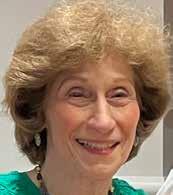
As we enter the High Holidays our world is in turmoil. The problems in Israel cause great stress for all of us. It is my hope and prayer that as the new year begins, peace of mind will come to each of us and that fighting and hate will come to an end. I would like to share this Personal Meditation from the Sim Shalom prayer book with the hope that it will bring peace of mind and New Year’s inspiration to each of us:
Avinu Malkenu, Bless my family with peace. Teach us to appreciate the treasure of our lives. Help us to find contentment in one another. Save us from dissension and jealousy; shield us from pettiness and rivalry. May selfish pride not divide us; may pride in one another unite us. Help us to renew our love for one another continually. In the light of Your Torah grant us, the people Israel and all Your Children everywhere, health and fulfillment, harmony, peace and joy. Amen.
May the coming New Year bring Good Health, Happiness and Peace to each of us, to Israel and to the world. May we find something Good in everyone we know and in everything that happens to us.
Gail Solomon chairs Ahavath Achim Synagogue’s Mature Active Adult Community and the quarterly blood drive.


How quickly the months fly by, so much life has been lived! It is hard to believe that we find ourselves again on the cusp of another new year.
Another Rosh Hashanah, pregnant with possibility, bringing with it the hope for a better tomorrow.
And yet, as we prepare to greet 5786, with sweet wishes and meaningful worship, our beloved Eretz Israel, as of this writing, is still at war. There remain beautiful souls, hostages who after more than 700 days continue to languish in the meitzar, the dark and narrow places of Gaza. And everywhere in this world, too many innocent people continue to suffer. While many of us have known much joy and blessing over the previous year, still much pain and longing has settled into our collective hearts.
And yet, I hold fast to the age-old promise of the world redeemed to a future where the Jewish nation continues to blossom into a beautiful home for all its inhabitants; a sanctuary of peace for those who seek to live in mutual respect and peaceful coexistence; Jewish, Christian, Druze and Muslim alike.
And so, my message first to the people of Israel is this: We, your diaspora family, are committed to you and the ongoing work of bringing that reality of peace to fruition.
And to the families of the hostages: You are not alone! We see you and you are heard. Do not give up hope! We are here praying, advocating, marching, and petitioning every day for the return of our sons, daughters, spouses and parents, and we will never give up until everyone is home.
Finally, my wish for us all is this; may the blast of the Shofar be a clarion call to each heart to awaken now. May it rouse us out of our complacency and awaken us to the needs of our families, our nation, the Land of Israel and our world. May the blasts serve as an unwavering call of courage, of action and the unbreakable promise of hope that we can and must do our part to build that world of Shalom, of peace-for ourselves and the generations to come.
Shana Tovah and may this year bring us all to a better place.
Rabbi Alexandria Shuval-Weiner is the senior rabbi of Temple Beth Tikvah in Roswell.

The joyous festival of Rosh Hashanah 5786 begins at sundown on September 22nd. Through our heritage, our sacred traditions, and our enduring prayers, we remain bound together meeting in synagogue for prayer and later sharing in the blessing of heart-warming family meals.
Rosh Hashanah is typically a time to celebrate the New Year, yet it is difficult to rejoice when antisemitism is at an all-time high. Antisemitic incidents have skyrocketed globally, and fear abounds. Negative attitudes and acts of hate and harassment toward Jewish people have become increasingly widespread, escalating from threats to deadly violence. It is deeply distressing to hear antisemitic rhetoric from politicians, both in the U.S. and abroad, and the growing presence of antisemitism among young people is particularly troubling. Hate speech now spreads rapidly across social media platforms, creating a frightening new norm.
Some of our people remain held hostage by Hamas in Gaza, and their cries together with ours go unheeded. The ancient chant of, “Let my people go,” still echoes today. Smear campaigns and hostility on college campuses have made them unsafe for Jewish students, even at universities where we once proudly earned our degrees. The chilling winds of the Holocaust seem to stir again, reminding us to heed the signs and remain vigilant.
This year, as we gather in our synagogues to pray, let us listen to the first resonant, eloquent sound of the shofar tekiah. Rosh Hashanah is a time when decisions are made regarding our lives: longevity or brevity, peace or hardship, tranquility or struggle. It is a time to reflect on life’s fragility, captured so powerfully in the central prayer of Rosh Hashanah, U’ netaneh Tokef: Who will live and who will die?
We pray the new year ushers in a world where Jews can pray openly, study at universities, and wear kippot without fear. May those who spread hatred be silenced and may the rise of antisemitism quickly and sharply decline. May our souls be nourished by the love of our families, the guidance of our teachers and rabbis, and the strength of our cherished friends. May our treasured traditions of festive Rosh Hashanah meals with apples dipped in honey, round golden challahs, and sweet tzimmes continue to be passed lovingly from generation to generation (l’dor v’dor). May the year 5786 bring peace and comfort to Jews around the world.
Renee Werbin is the publisher and co-founder of Travelgirl Magazine and the president and founder of SRI Travel.
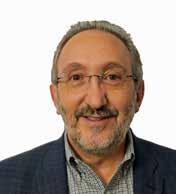
When we come to synagogue on Rosh Hashanah we will recite the words: Hayom harat olam, today is the birthday of the world.
So, what does it mean to see Rosh Hashanah as the world’s birthday? Well, when we celebrate our own birthdays, we think back over the years that have passed and wonder what OUR lives will be like when future birthdays come around.
But on Rosh Hashanah, we celebrate the world’s birthday. We should ponder not only what WE will be like, but we should think about what the WORLD will be like as the years unfold. These days, that is a particularly daunting thought. That’s why I believe we should all think about what role we can play in the shaping of this world in order to make it a better place for us, our community, and even humanity itself.
When we read the story of creation in the book of Genesis, the first question which G-d asks Adam in the Garden of Eden, is Ayeka? Where are you? Adam runs away from that question and tries to hide from G-d’s presence. On Rosh Hashanah, G-d is asking us that same question. Where are you? And what can you do to make this world better?
THAT is the key question we should consider as we approach the New Year.
When we hear the blasts of the shofar, we are supposed to feel a sense of urgency as if God is calling out to each one of us. As Maimonides explains, the shofar cries out: Awake, you sleepers, from your slumber! It is time to be stirred and to wake up. Another year has passed, and you have more work to do before your time on this earth is up.
No matter what our walk of life may be, my hope is that everyone might consider what it means to be G-d’s partner in making our world a little better in the coming year. Once we say, “Hineni” to G-d and to ourselves, our world has a better chance of becoming what it ought to be, and we will live more purposeful and meaningful lives as well.
When we accepted the Torah at Sinai and entered into a covenant with G-d, we did so not as lone individuals, but as a community. So, this Rosh Hashanah let us not cut ourselves off from our community or from the Jewish people. We need each other more than ever these days.
As we begin the New Year, let us ask ourselves: Where are we? And let each of us respond, in our hearts and in our actions: Hineni – “Here I am.”







If you could send a message to either the people of Israel, the Israeli government, the families of the hostages, or even Hamas, … what would you say?

To my Israeli brothers and sisters, I offer my unconditional support. Just like many families, we do not always agree but we love, protect, and support each other. I want you to know, I need you to know, there are many of us in America that share my sentiments including most of my friends and many of our readers. You are not alone; however, you shoulder the bulk of the burden.
It is not easy to be criticized at every turn, which is why I do not criticize. It is not easy to be judged with every move, which is why I do not judge. It is not easy having the whole world watch you in a spotlight of contempt, but unfortunately, it is easy to get wrapped up in propaganda, which is why I do not believe everything that I read, but instead, I go to Israel every year to see for myself. Certainly, I have my opinions, but everyone has their opinions. Sometimes I share, often times I do not, because an opinion is not a fact, it is not the basis for a decision that I make, it is merely how one feels and is too often misplaced.
Israel is at war. I cannot put myself in your shoes. No one has taken any of my family hostage. No one has been terrorizing my hometown for decades. No one has declared myself, my religion, and my country illegal, forfeit and in need of wiping from the map and planet. But I do see how Israel holds itself to standards that no other country ever has. I see the moral clarity in which Israel uses to guide itself during this war, which no other country, to date, has ever exercised. No country is perfect, no war is good, and casualties happen. Israel is no exception, and Israel isn’t the only country, right now, defending itself from terrorists.
I wish I could offer solutions, alas, I can only offer support. Please know, I will offer support every day until this war is over and our Palestinian neighbors love their children more than they hate us Jews (to paraphrase Golda Meir).
I want to leave you with this, my friends. Almost every Jew I know here in America supports you. There will always be some self-hating Jews, there will always be some people who think they know better; there will always be people who find the need to tell you what to do, and there will always be people who will offer their opinions as truth (did you know that around 1 percent of the world population still believes the world is flat?), but that doesn’t make their opinions fact, it just exacerbates an already precarious situation. I stand with you, many of us stand with you,
Am Yisrael Chai.
Michael Morris is the Owner & Publisher of Atlanta Jewish Times.


As I am reflecting on the past year and engaging in my own personal growth and spiritual renewal, I can’t say that what happened in Israel since October 7, 2023, will not be a part of my prayer, and spiritual renewal. It’s obvious that there are a lot of members of our community and beyond that will join me in prayer for the people of Israel, as well as introspection about the attack on October 7. We asked ourselves, “How can we, as mishpocha to the people of Israel, make sure that nothing like this happens again?”
During my personal growth I am planning to take the time to learn how I can do more to support the people of Israel. Sure, I gave donations and prayed for those that lost family members, the soldiers, the military responsible for fighting in the conflict and those leaders making strategic plans to stop Hamas, an Islamist militant group, from their stated goal of forcing Israel to release Palestinian prisoners.
My prayer time is meaningful and a conduit to my personal growth. There are various prayers for the “people of Israel” from different traditions. Most common Jewish prayers invoke G-d to bless and protect the land, its leaders, and its people. While other prayers often ask for wisdom and justice for leaders, peace and protection for all inhabitants and the dispersed communities. I always include healing, and peace to be established in my prayers, too.
New Year’s is thought of by Americans as a time to throw parties and celebrate, which is fun, and I enjoy that every year. Since we are focusing on Israel it’s hard for me not to be impacted by how victims of the conflict have endured during the October 7 surprise attack in which 1,195 Israelis and foreign nationals, including 815 civilians, were killed, and 251 taken hostages. How does one conduct spiritual renewal with this laying on your heart and in your mind? I am planning my renewal after the Tashlikh ceremony, which represents the spiritual act of leaving behind past mistakes and starting the new year with a clean slate. With respect to the people of Israel, I will acknowledge all those who suffered, lost and fought over the last year, and ask that all may cast off those experiences, thoughts and memories that are weighing us down.
My message to the people of Israel is: We are mishpocha and even though I am not on the frontline line fighting, I am there in support in prayer, spirit and works. You are not alone. I will take this time during Rosh Hashanah to work on ways that I can better support you and be a better advocate for all that we believe in.
Shana Tovah!
Kaylene Ladinsky is Editor and Managing Publisher of Atlanta Jewish Times and president of Southern Israelite LLC


Shanah Tovah U’Metukah.
As the shofar sounds and we step into 5786, I’m reflecting on what this new year means to me. Rosh Hashanah is a time of sweetness, renewal, and hope — and this year, I feel all of that in such a personal way.
The greatest joy in my life right now is my niece, Riley. At just a few months old, she has already brought a kind of love and light into our family that words can hardly capture. Starting the new year with her in my arms, feeling her tiny warmth and seeing her smile, fills me with hope for what lies ahead. Riley represents the future — innocent, beautiful, full of possibility. Every snuggle reminds me why we fight for a world that is safe, loving, and filled with peace.
Of course, Bagel deserves his mention, too. He’s not just my dog — he’s my sweet baby boy, and my comfort. Bagel has a way of sensing when I need him most, whether it’s curling up next to me or trotting proudly into the room to make us all laugh. Between Riley’s baby coos and Bagel’s tail wags, my days are bursting with sweetness.
This year is also a new chapter for me in another way: I’ve stepped more fully into my crystal business. What began as a personal passion has grown into something I can share with others, a way to connect people through beauty, energy, and light. Every crystal carries its own story, its own healing energy, and sharing that feels like passing along a little spark of hope. I’m excited to see how this path continues to unfold in the coming year.
But while my life is filled with joy, I cannot enter the new year without also acknowledging the pain carried by our people. I think constantly of the Bibas babies — two tiny, innocent lives stolen in violence and cruelty. Their deaths were more than a family’s loss; they became symbols of heartbreak for the entire Jewish world. At the Jewish Life Festival, I brought orange hearts to hand out to vendors in their memory. A simple act, but a way to keep their light alive. Each heart was a reminder that even in loss, we carry forward love, resilience, and memory.
This mixture — joy and sorrow, hope and grief — is the essence of Jewish life. My grandfather, a Holocaust survivor, taught me that. Because he survived, I am here. Because he survived, Riley is here. His survival was an act of defiance against hatred, and his love for life was his greatest victory. His story reminds me that even in the darkest of times, we choose life. We choose to laugh, to build, to dream, to pass on traditions, to welcome new generations.
And so, my message this Rosh Hashanah is one of balance: may we hold our joy close, celebrating every blessing — Riley’s snuggles, Bagel’s love, the spark of new beginnings. And may we also hold our responsibility close: to honor memory, to demand justice, and to protect the future of our people.
“Never again” cannot be just a phrase we repeat. Never again must be a promise we live, every single day. For Riley. For the Bibas babies. For my grandfather’s memory. For every generation to come.
May this year bring sweetness, strength, and peace into all of our lives. Shanah Tovah.
Lilli Jennison is the Creative Director for Atlanta Jewish Times.

I Could Not Imagine
To the families of the hostages … my heart bleeds for you. I could never fully understand the agony and despair you must have felt over the past 700-plus days, knowing your loved ones are being held hostage in tunnels and you are powerless to save them.
I am an only child, single, and have no children, so the closest person to me is my 79-year-old father. I could not imagine, nor do I want to, what it would feel like if my dad had been taken hostage and held for almost two years.
He wouldn’t be able to spend time with his lovely girlfriend, nor would he be able to take road trips to see his Fourth Quarter Bros. He wouldn’t even be able to watch the news and complain about Trump.
And I would be powerless to save him.
I just want this war to end and the hostages to be returned so their families can feel complete again.
Sasha Heller is the Managing Editor of Atlanta Jewish Times.

As the Jewish community around the world celebrates Rosh Hashanah, the beginning of the Jewish New Year, we extend our warmest wishes for a year filled with peace, joy, and abundant blessings. Rosh Hashanah is a time for reflection, renewal, and spiritual growth, a moment to pause and reflect on the past year, seek forgiveness, and set intentions for the year ahead. It is a sacred opportunity for families and friends to come together, celebrate traditions, and affirm their faith in the face of challenges and triumphs alike.
As the shofar is sounded, may its call remind us of the importance of unity, compassion, and kindness. In the spirit of Rosh Hashanah, may we find strength in our shared values and come together to create a world that is more just, more loving, and more hopeful for all.
This year may the sweetness of apples dipped in honey symbolize the sweetness we hope to find in our lives, whether in our personal relationships, our careers, or our communities. May we be blessed with good health, prosperity, and peace, and may our hearts be filled with gratitude for the opportunity to start anew.
For those of you celebrating, may you be inscribed in the Book of Life for a year of blessing, joy, and fulfillment. Let us all take a moment to renew our commitment to acts of kindness, to give back to others, and to find ways to support one another as we move forward into this new year.
Wishing you a sweet, healthy, and prosperous New Year! May it be filled with love, light, and countless moments of joy. L’ Shanah Tovah!
Michal Bonell is the Senior Account Manager and Team Supervisor at Atlanta Jewish Times.
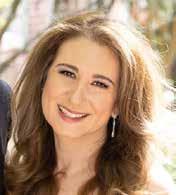
As we approach the new year, I want to wish each of you a year of peace, growth, and the opportunity to embrace the many blessings that lie ahead. The past few years have been particularly difficult for Jewish communities around the world. In Israel, families have been waiting two long years for the return of their loved ones held hostage. My heart breaks for these families and to all Jewish people who have endured loss due to hate crimes and rising antisemitism.
On a more personal note, my daughter is currently preparing for her bat mitzvah. Watching her and her friends step into this ancient tradition feels profoundly meaningful. I’m often struck by how many before us were denied this opportunity — forced to practice in secret or lost before they ever could. And yet, here we are. We have endured. We continue. To see the next generation stand proudly on the bimah is a powerful reminder of our strength, our resilience, and our hope.
From my family to yours — to all of Israel, the hostages, and Jewish communities around the world — may this be a happy, healthy, and peaceful New Year.
Shana Tova!
Ilyssa Klein is an Account Manager for Atlanta Jewish Times.






Parkaire Landing Shopping Center 4880 Lower Roswell Road, Suite 175, Marietta, GA 30068 www.adamarkjewelers.com | 770-565-6558 Monday-Friday- 10am – 6pm | Saturday- 10am – 4pm

May this New Year be sweet, healthy and happy. L’shanah Tova! pn. 214.662.0999 • paileynooromid@atlantafinehomes.com ek. 404.697.8215 •







As I reflect on this Jewish New Year — my favorite holiday — I cannot stop thinking about our brothers and sisters, innocent civilians and a few soldiers, who have now been held captive in Gaza for 700 days. That’s 100 Shabbats without their families. They are starving, abused, and tortured.
While I sit around the holiday table with my loved ones, preparing my favorite dishes and dipping apples and challah in honey, I am overwhelmed with guilt. Twenty of the hostages are still alive, yet for the second year in a row, they will not be with their families. They won’t sit at a holiday table. They won’t even get a quarter piece of dry pita or a drop of clean water.
My message to the Israeli government is simple and urgent: Enough. Accept the deal. We already lost on October 7th — there is no victory without bringing the hostages home. Whether it’s a partial deal or a full one, accept it and act now. The suffering of the families is unbearable. Our entire country is living in ongoing trauma, and it’s time to move into healing. We must begin the process of post-trauma and national recovery.
And to the cowardly, evil Hamas — I say this: You will not break us. You will not destroy us. Many have tried before, and we have prevailed. We are strong, we are united, and we will not stop fighting for the return of our people. You have lost your humanity and your power. Stop using Gazans as human shields. Stop hiding behind children and women while innocent people suffer. Release the hostages — every single one of them — now!
I will continue to pray for the safe return of all 48 hostages, both the living and those who have tragically perished. May we drink wine, eat together, and celebrate life again. And this year, in the synagogue, I will pray harder and louder than ever before. Amen.
Ronit Frano-Pinsky is the Executive Assistant for Atlanta Jewish Times.

Yes, we live in a complex and diverse world — one that holds both light and darkness. Yet amidst all our differences, one truth remains: we all bleed the same red, and we all breathe the same air gifted to us by Gd. So why, then, is peaceful coexistence still so elusive?
Rosh Hashanah marks the day G-d created Adam and Eve and signifies the day he completed the creation of the world. It is a time of renewal, introspection, and hope. As we enter the New Year of 5786 and dip our apples into the sweetness of the honey, may this New Year bring healing, understanding, and strength to all people — and especially to Israel and Jewish communities around the world. May the sweetness of honey symbolize the sweetness we hope to see in our lives and in the world. And may the scourge of antisemitism — which continues to spread and poison hearts and minds — be eradicated once and for all.
L’shana Tovah u’Metukah — wishing you a good and sweet New Year!
Lou Ladinsky is the Distribution Manager for Atlanta Jewish Times.


Throughout this past year, I’ve had a tune from the High Holy Days stuck in my head. It’s a bit of an odd one to become an ear worm. It’s not as catchy as Hayom or the High Holy Day nusach for the kaddish. It’s not as visually symbolic as Unetaneh Tokef or as physical as the Viddui. But in the past year, none of these have fixed themselves so firmly in my mind. Instead, the tune that I can’t help but keep humming and whistling, whose notes and words keep coming to my lips before I even realize it, is that of The Thirteen Attributes of Mercy. These words are, of course, central to the High Holidays, repeated throughout the selichot. But why should I have them so close to the front of my mind for the whole of the past year?
It seems obvious to say that this is a year where we need mercy. In Israel, tens of thousands march daily in defense of the remaining hostages, who they fear have become increasingly isolated from a government putting their lives second, which itself seems to become more and more isolated from the rest of the world, as the civilian death toll from the war continues to rise. In the U.S., political assassinations appear to be on the rise, targeting politicians and political figures from all sides of the aisle, as school shootings have increased for the fifth straight year. The state of the world, the increase in fear and the difficulty of hope, is demanding our collective conscience to cry out for mercy. Yet I can’t help but wonder if asking for mercy is enough.
I learned a little about the number 13, recently. In addition to its prominence in prayer, and the relevance of the age of bar mitzvah, there is a special symbolism in relation to the number one. The letters in the word echad (alef, chet, dalet), numerically add up to 13 – a sign of the number’s connection to unity.
It seems both unsurprising and wonderous that unity and mercy should be so closely tied together, when the lack of one so clearly leads to lack of the other, yet hope for the latter seems to spring to our lips first and hope for the former last.
I would be remiss to ask for anything I’d never grant myself. I know there are so many people who I struggle to understand, much less agree with, and I know how difficult unity is without understanding.
Perhaps that’s why this prayer has been on my lips all year: A reminder to open myself to embracing unity, a reminder of the distance between where I am and where I yearn to spiritually be, and a reminder that, in the end, it’s not really a matter of choice: Mercy is Mercy. No matter what.
Robert Garber is the Online Content Coordinator for Atlanta Jewish Times.

If I could send a message to the people of Israel and to the people of Gaza, I would simply say that, for what it’s worth, my heart breaks for all of you. It is my fervent hope and prayer that, at some point, your leaders will truly want peace and decide that the difficult task of building lasting peace is the only way forward.
Only when the rhetoric of hatred and the endless cycle of retaliation cease will there be a future for the children of the region. The healing on both sides will surely take a generation. The sooner the insanity stops, the better. I pray for it every day.
Fran Putney is the proofreader for Atlanta Jewish Times and serves on the Georgia Commission on the Holocaust.


As Rosh Hashanah is approaching, I have been thinking about the dinners, celebrations, and quality time that I will be spending with family and friends. However, once again, this year, there are families that will not be doing the same. Specifically, those families of the remaining hostages of Israel.
So many questions, I have … Why are these hostages still in captivity? Why did these innocent people get taken away from a life that they should be living? Why does war continue AND will it ever stop? The answers do not come easily - we can speak up, we can donate to causes that support victims and their families, and we can educate ourselves and others.
As I dip the apple in honey this year, I do so not only for a sweet year ahead but thinking about those I cannot be with and for the safe return of every hostage. May this New Year bring us all love, light, happiness and good health.
L’shanah Tova.
Robin Freedman is the Administrative Assistant for Atlanta Jewish Times.

As an American Jew, my heart is heavy, and I often feel powerless watching the pain and devastation in Israel and Gaza. To the families of the hostages please know that your loved ones are not forgotten. They are held in the prayers and hearts of people everywhere, including mine. And to the innocent people of Gaza, I ache for the suffering you face each day, and I long for a time when you can live in safety, dignity, and peace.
What I want most is what all humans want: for the hostages to come home, for children to grow up without fear, and for both people to live without endless cycles of loss.
My heart longs for compassion and courage to open the door to peace, so no more families must suffer.
L’Shana Tova, may the new year bring peace and blessings to Jews everywhere.
Diana Cole is the Community Coordinator for the Atlanta Jewish Times.







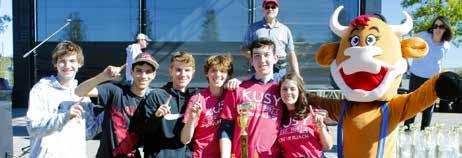




Mazel tov to our third annual Rosh Hashanah Art Contest winners!
Adult Artist Tammy Leeman won first place. We received many wonderful submissions from artists as young as 2, all the way up to 90 years old.
All submissions are featured in this special section and will be posted online. Winners will be notified via email.

TITLE:


AGE:
TITLE:
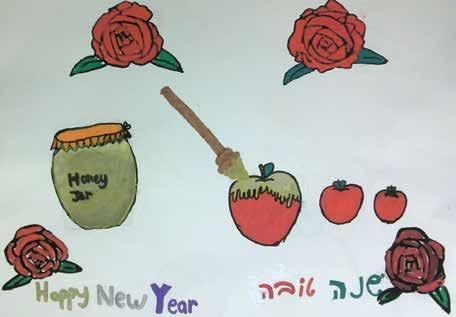
NAME: Alona Levin-Gould AGE: 11
PARENTs: Julia Levin and Judah Gould
TITLE: Rosh Hashana


NAME: Annael Goldstein AGE: 9
PARENTs: Eitan Goldstein and Avigail Schondorf
TITLE: Rosh Hashana

Congregation Gesher L'Torah's 4th grade Sunday School class AGEs: 9-10
TITLE: Sweet New Year



NAME: Dylan Levy AGE: 9
PARENTs: Rich Levy and Michelle Levy
TITLE: Rosh Hashanah Math

NAME: Eliraz Alhadeff
AGE: 6
PARENT: Noah Alhadeff
TITLE: Rosh Hashana Eliraz 2025

NAME: Gail Rubinfeld
AGE: 72
TITLE: “Hear My Prayer”


NAME: Emma Seff
AGE: 8
PARENTs: Kimsey & Jared Seff
TITLE: Rosh Hashanah Pomegranate

NAME: Ivy Palefski
AGE: 10
PARENT: Tani Palefski
TITLE: Happy Prrrrrosh-hashanah





Check out our New Pet Shop:






NAME: Julia Cohen
AGE: 10
PARENTs: Mike and Tanya Cohen
TITLE: Rosh Hashana

Kitah Bet 2 Intown Jewish Preschool Morah Adi's class
AGEs: 2-3
TITLE: Our Apple Tree

NAME: Maria Sol Guini
AGE: 44
TITLE: New Beginning - Eternal Commitment
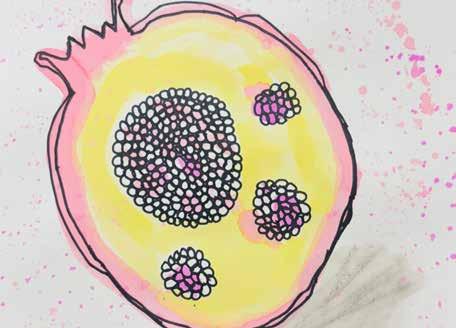
NAME: Max Karen
AGE: 9
PARENTs: Eldar & Brook Karen
TITLE: Rosh Hashanah Pomegranate

NAME: Maya Levin
AGE: 11
PARENTs: Amit and Tayna Levin
TITLE: Rosh Hashana


NAME: Nancy Miller
AGE: 67
TITLE: Shana Tova Mandala

NAME: Michael Blaiss
AGE: 72
TITLE: Rosh Hashanah Traditions

NAME: Nathan Dinesman
AGE: 8
PARENT: Inon Dinesman
TITLE: Rosh Hashanah table tradition

NAME: Poppy Garfinkel
AGE: 6
PARENTs: Ali and Marc Garfinkel
TITLE: A Sweet Rosh Hashanah


NAME: Roat Mallinger
AGE: 10
PARENT: Yehudis Mallinger
TITLE: Rosh Hoshana Apple

NAME: Robin Singer
AGE: 57
TITLE: L'Shanah Tovah

NAME: Ryan Flaum
AGE: 9
PARENT: Abbey Flaum
TITLE: Sweetness

Rabbi Hirshy & Devora Leah Minkowicz
Rabbi Gedalya & Ruthy Hertz
10180 Jones Bridge Road
Johns Creek, GA 30022
770-410-9000 www.chabadnf.org


NAME: Sara Unell
AGE: 7
PARENTs: Hilary & Brian Unell
TITLE: Sweet Beginnings


NAME: Sheri Rosenblum
AGE: 69
TITLE: Baal Toke’ah (Master Blower)
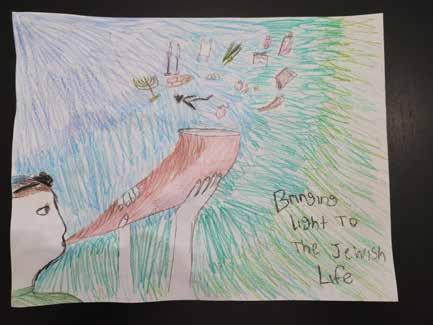
AGE: 10
PARENT: Noah Alhadeff
TITLE: Rosh Hashana Shachar 2025

NAME: Willow Clement
AGE: 7
PARENT: Ali Clement
TITLE: Rosh Hashana Table

NAME: yehudis mallinger
AGE: 38
TITLE: shul


NAME: Zoey Godzdanker
AGE: 8
PARENTs: Carly & Roy Godzdanker
TITLE: Rosh Hashanah Pomegranate

NAME: Ziv Goldstein AGE: 7
PARENTs: Eitan Goldstein and Avigail Schondorf
TITLE: Rosh Hashana


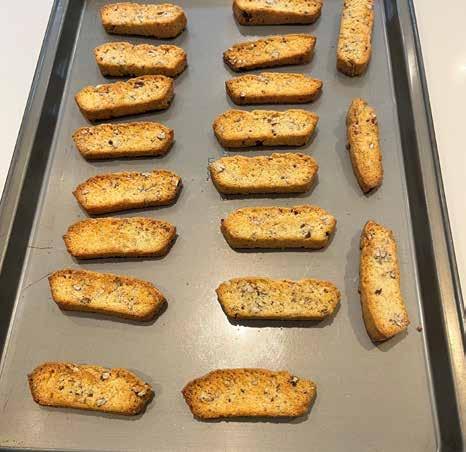
Submitted by Debbie Sonenshine
“Mandel bread is great with coffee, tea, or dipped in chocolate, ice cream, or whipped cream. My friends call it ‘Jewish biscotti,’ but my husband calls it, ‘crack,’ because he can’t stop eating it!
This recipe, modified by me, appeared in my mother, Joyce Goldenberg’s, cookbook, ‘Savor - Recipes to Celebrate Life,’ which was published to benefit Covenant Hospice of Pensacola, Fla.”
Ingredients:
3 cups flour
3 teaspoons baking powder
1 1/2 cups sugar
1 1/2 sticks butter, melted
3 jumbo eggs, beaten
2 teaspoons vanilla
Directions:
1 1/2 cups pecans, chopped (optional)
Preheat oven to 350. Mix dry ingredients with a spoon. Add melted butter and eggs and mix by hand. Add vanilla flavoring and nuts (if using).
Spray 4 metal ice cube trays (without the dividers) with nonstick cooking spray. Put 1/4 of the dough in each pan and smooth evenly.
Bake at 350 for 25 minutes or until the cake tester comes out clean and the cake is slightly brown. Let cool a bit then slice into thin uniform slices in the pan. A serrated knife works best.
Lay slices on an ungreased cookie sheet. Bake another 5-8 minutes and then turn slices over. Bake again until slices are brown and dry. Watch closely as slices can easily burn.
When done, remove from the oven and cool. Can be stored in metal cookie tins or plastic freezer bags. Freezes well but the slices are fragile.

By Yossi Ben-Haim
Serves 12 guests (based on a 12-15 lb. brisket)
Prep time - 30 minutes trimming & seasoning + 6 hours marinating Stoves & Oven Cook time: 6 hours cooking and braising
Ingredients for Brisket & Dry Rub:
12–15-pound beef brisket, trimmed – ask the Kroger butcher to trim it for you, he won’t charge you for the removed fat … Rub -Combine the following in a small bowl: 4 teaspoons garlic powder, 4 tablespoons paprika, 4 tablespoon onion powder, 2 tablespoons kosher salt, 4 tablespoons coarse, ground black pepper, 1 teaspoon cayenne pepper, 1 teaspoon of thyme leaves, ½ teaspoon oregano leaves, 6 bay leaves, French Grainy mustard and EVOO to coat the brisket Injection - 1 cup beef broth, ½ cup Woodford Reserve Bourbon, ¼ cup brown sugar, ¼ cup soy sauce, Salt and black pepper to taste, Honey Bourbon Glaze - ½ cup Woodford Reserve Bourbon, ½ cup honey, ¼ cup apple cider vinegar, 2 tablespoons brown sugar, 2 tablespoons Israeli Sillan, 1 tablespoon Worcestershire sauce, 2 teaspoon onion powder, 2 teaspoon garlic powder, 1 teaspoon paprika, ½ teaspoon black pepper, ½ teaspoon kosher salt, or to taste.
Directions:
Trim the brisket, thinning the fat cap to about ½ inch. Mix/whisk all injection ingredients, inject the mixture into the brisket. Rub the brisket with mustard or olive oil. Evenly coat the brisket with the dry rub. Wrap the brisket in plastic wrap and refrigerate for 6 hours or overnight. Next day…. Sear the marinated brisket in a large nonstick pan until golden-brown with sliced onions. Wrap the brisket with all the juices from the pan and place it in a large roasting pan in a convection oven on 350°F for about 2 hours. When the brisket reaches 165°F, remove it from the oven and double wrap it in aluminum foil. You can also add beef broth to the foil packet before sealing. Return the wrapped brisket to the oven. Continue cooking the brisket at 225°F until the internal temperature reaches 200°F. In a saucepan, combine all glaze ingredients and simmer for 10-15 minutes. Once the brisket reaches the target temperature, remove it from the oven and let it rest, wrapped, for 2 hours. Slice against the grain, place back in a roasting pan and cover halfway with all the juices and remaining glaze, add more beef broth. Cover the pan with parchment paper and foil. I like to drop on top some dried dates and figs as a surprise … Braze for another 2-3 hours at 250°F to make it soft, juicy and tender, check the level of the juices from time. Serving - place brisket slices on a large serving deep tray. Drizzle on top of the brisket slices warm honey bourbon glaze from the roasting pan and serve. I like to add on top and around chopped peach compote or pomegranate seeds and garnish with fresh chopped Italian parsley. CHAG SAMEACH & SHANNA TOVA!


By Martha Jo Katz
Ingredients:
3 eggs
1 cup sugar
5T water
1 cup sifted all-purpose flour
2T melted butter or parve margarine
1t baking powder
1/2t salt
1t vanilla
1 cup jelly or jam
Directions:
Beat eggs very light. Add sugar beating well all the time. Add water and beat well. Sift flour, baking powder, and salt. Add to egg mixture. Add melted butter. Beat quickly until well mixed. Add vanilla, then immediately pour into a greased cookie sheet with sides 11x15. Put in a pre-heated oven at 375 degrees. When done, turn on a clean cotton dishtowel that has been sprinkled with powdered sugar. Carefully cut edges off cake so it doesn’t split. Spread with jelly or jam of your choice. Roll carefully and wrap in towel until cool. Unwrap and sift more powdered sugar before slicing. You can also put chocolate frosting inside.

By Nancy Miller
This recipe was a favorite at Etz Chaim Preschool when I taught there, and it became a favorite among my extended family as well. It makes a moist, sweet cake that appeals to all ages!
Ingredients:
1 Duncan Hines spice cake mix
1 small box instant butterscotch pudding
1 cup honey
1 cup brewed hot coffee
1/2 cup oil
1 mashed banana
4 eggs
1 tsp. Vanilla extract
Directions:
Mix all ingredients well for about 6 minutes (you can use a standup mixer or a food processor). Pour into a greased 10 inch Bundt pan or tube pan. (I like to use my Jewish star shaped pan). Bake at 350 for 50 minutes or until inserted toothpick comes out clean.

By Marcia Caller Jaffe
The Breman Museum has launched free, three-part play “readings” over the course of the next five months.
A seasoned theatrical team took the stage on July 31 to showcase “Kindertransport,” harkening back to 1939 in Nazi Germany, where a Jewish woman, Helga, is preparing her 9-year-old daughter, Eva, for travel on a Kindertransport, taking her to the relative safety of a foster family in England to escape Nazi horrors. The one-night event featured an allstar cast of professional actors: Wendy Melkonian, Kate Crabtree, Pamela Gold, Kathleen McManus, Gillian Rabin, Jacob York, and Amy L. Levin. The reading was directed by Mira Hirsch.
The Breman, the story keeper of these child survivors, explains Eva’s hidden history, which was unraveled more than 40 years later in a dusty storage room in a home outside of London. This drama, which was called, “richly eloquent, deeply moving and essential viewing,” by The Independent, has enjoyed

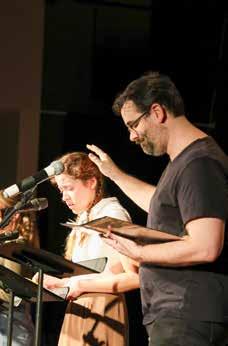
numerous productions worldwide since its London premiere in 1993. Many thousands of children were transported to


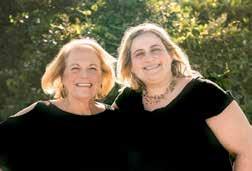
England, but only 1,000 or so were relocated to the United States. Some of them found themselves in Georgia, including




hard and Werner Linz (Albany). The Breman holds the interviews, photographs, and materials related to them and others in the Ida Pearle and Joseph Cuba Archives (www.thebreman.org/research).
Director Mira Hirsch explained, “When Leslie Gordon [Breman CEO] approached Pamela and me about launching some theatre programming for The Breman, we quickly landed on a staged reading series. This format is affordable to produce and accessible, making it a great way to engage our community. For the first reading, we chose ‘Kindertransport’ because its themes align so closely with The Breman’s current exhibit, ‘Hidden Histories.’”
The play explores identity, family secrets, and the difficult choices people make in order to survive. Mira Hirsch first produced “Kindertransport” nearly 30 years ago with Jewish Theatre of the South, and it has stayed with her ever since. She felt that the July reading resonated with the audience as a story rooted in a specifically Jewish tragedy and also as one that speaks to the broader, contemporary issues of family separation and displacement. She stated, “I’m thrilled that this inaugural reading sold out completely; it’s a wonderful sign that our community remains eager to see theater that reflects Jewish culture and history.”
Gordon shared, “The post-show feedback has been overwhelmingly positive
– the program was so well done. Mira selected and directed an amazing cast and Pamela, who had the main role, was outstanding … so I know I had the right team!”



For the past two years, The Breman partnered with Theatrical Outfit on two plays with Jewish content. This year they plan to work on a third production with Theatrical Outfit and are also partnering with Synchronicity Theatre. Gordon add ed, “Since Oct. 7, the need for community and connection in the Jewish space has become very clear. So, we are happy to provide more places for that to happen, through theatre. Given what I observed at the first event, we had a winner.”
Gold concurred, “This gripping story sheds light on yet another dark, hidden chapter of Jewish history, and it’s chill ingly relevant today when we continue to see an alarming rise in antisemitism everywhere, and particularly in Europe, as well as witness the plight of many immigrant families in our own country who live in fear or, worse yet, have been torn apart. This play digs deep into the minds and hearts of the mothers and fathers who made the agonizing decision to send their children to England for safety, and it exposes the damaging and reverberating effects of that decision on their children, who survived, but were forever changed and scarred. I’m grateful to the Breman Museum for allowing this space.” ì





By Marcia Caller Jaffe
Through Sept. 21, City Springs Theatre Company plows on with another smash hit, “The Producers,” that does not play “second fiddle” to a Broadway production. Even though legends like Nathan Lane and Matthew Broderick starred in older productions, New Yorker Adam Shapiro (originally from Indianapolis) headed South to show us how his Max Bialystock is larger than life and alive and well. Written by zany Mel Brooks, the show’s humor trumps and tromps on the sensitivities of Hitler, sexy “tartish” women, and flamboyant gays.
Shuler Hensley, artistic director of City Springs Theatre Company recalled, “Working with Mel Brooks and being able to call him a friend is an unqualified privilege. He’s a one-of-a-kind voice, a true craftsman of comedy, finding humor in impossible situations and maddening injustices. As an actor, an audience roaring with laughter is a gift like no other - even more so than applause or a standing ovation. Nothing unifies an audience like the kind of outrageous, gut-busting


laughter that has been Mel’s hallmark for decades. It’s his superpower and it’s why he is still thriving at 99!”
The local performance was replete with top notch choreography, wardrobe,
Jewelry and Watch experts will be in Atlanta September 30 and October 1. Schedule an appointment to find out what your jewelry and watches might sell for at auction.
SCHEDULE AN APPOINTMENT
Kristin Vaughn
SVP, Trusts, Estates & Private Clients 404.800.0192 atlanta@hindmanauctions.com HINDMANAUCTIONS.COM
and theatrics. The Nazi helmets and uniforms, alongside beautiful women cascading down the stairs clad in elaborate headgear, a la Carmen Miranda, with German imagery like beer steins,
pretzels, and bratwurst, rolling out like an intricately folded hand fan, was second only to the chorus line of crotchety women on walkers, and another scene of chorus girls emerging from behind file


doors, kept the audience enthralled.
This was a show within a show where one of the best Broadway musicals was about how to produce a failed musical. Could “Springtime For Hitler” be a real smash hit?
The show depends on Max’s overall determination to sell a dream to spinsters. Shapiro was very convincing going from nebbish to confident. In typical Mel Brooks’ fashion, this production was waaaay over the top as the audience felt in on the scheme to bilk the investors. Everyone left the theatre with smiles. When Leo earned his producer’s hat, some eyes had tears.
Earlier, in conversation with the AJT, Shapiro shared that this was his first time in Atlanta. Regarding his “Max,” he explained, “Having watched Brad Oscar, Nathan Lane, and Zero Mostel all take on the role, I cherry picked some of the things I loved about each one and then used them to discover my own take … I certainly can relate to Max at the beginning of the show when he’s expressing how much he wants to be respected and appreciated; and can absolutely see how that could drive him to such drastic measures, although I have never concocted a scheme to bilk people out of money like he does … at least not that I’ll admit to!”

To prepare for the show, Shapiro was able to get the libretto and score to examine the scenes and his character’s motivation. He said, “The goals are different when I’m talking to Leo whom I’m legitimately asking for help vs. when I’m trying to get something from Franz, Roger, or the little old ladies. Of course, we all know what Max wants from Ulla. Wowee wow wow wow!”
In terms of current “sensitivities,” Shapiro, who previously performed in “Fiddler on the Roof” in Yiddish, tackled the “Jewish question.”
“I know that, in this day and age, people can get shocked by some of the show’s humor. But this is how the Jews took down Hitler and the Nazi party. We turned them into a joke. That’s the basis for Jewish humor. We take all the atrocities and hardships and find a way to laugh at them, thereby draining them of their power over us. That’s why I find it so important to do shows like this, particularly with antisemitism on such a rise, to remind people that we have the ability to take back the power by making a joke out of our enemies.”
Make plans to get tickets now before the Sept. 21 closing and before Brooks turns 100. For tickets, please visit: http:// CitySpringsTheatre.com/theproducers ì

May your home and heart light up with peace, love, and joy this New Year!

C | 770-394-2131 O Robin.Blass@HarryNorman.com RobinBlass.com


Daily Shofar Blasts – 11 to 11:15 a.m.
The blowing of the shofar, or ram’s horn, is an important part of the Jewish High Holiday season. There is a special tradition of blowing the shofar in the days leading up to Rosh Hashanah to remind us to “wake up,” reflect on the past year, and begin the spiritual preparation for the High Holiday season. All are invited to listen to the shofar in the main lobby and Brill Family Fitness Center. Free and open to the community. Find out more at https:// tinyurl.com/mt98pceb.

Hashanah Apples & Honey Market – Fall ’25 – 5 to 6 p.m. Come celebrate Rosh Hashanah at the MJCCA. There will be apples and honey tastings and sales, sounding of the shofar, vintage apple cider press, songs and stories with Rabbi G. Learn more at https://tinyurl.com/y9r32puh.

Bearing Witness: A Presentation
Hosted by Brendan Murphy – 7 to 9 p.m. Join us for Brendan’s presentation, “From Ancient Prejudices to Modern Challenges: Exploring Historical and Contemporary Relations Between Christian and Jewish Communities,” on our Coca-Cola Stage. Through engaging narratives, historical accounts, and thought-provoking analysis, attendees will gain a profound understanding of the underlying ideologies and stereotypes that have fueled antisemitism as well as contemporary efforts to set Jewish and Christian communities on a new path of genuine friendship. Endorsed by Jewish, Catholic, and Protestant leaders, this lecture series will address the importance of education, dialogue, and advocacy in combating antisemitism and fostering tolerance and understanding among diverse communities. This presentation is free to attend for “Fiddler on the Roof” ticket holders. Purchase tickets at https://tinyurl.com/2tffe76s.
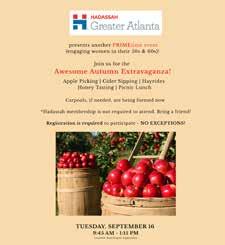
Hadassah Primetime Autumn Extravaganza – 9:45 a.m. to 1:15 p.m.
Girls just want to have Autumn fun! Welcome fall and the upcoming holidays with apple picking, cider sipping, hayrides, honey tasting and picnic lunch in beautiful north Georgia. Register at https://tinyurl.com/yndpxn77

Shalom Siporim: Hebrew Storytime – 10 to 11 a.m. Join Nurture for Shalom Siporim, a joyful Hebrew-English story time designed especially for toddlers and their grown-ups! Through engaging stories, playful songs, and simple movement activities, young children will be introduced to Hebrew words and Jewish culture in a warm and welcoming environment. No Hebrew experience necessary — just bring your curiosity and love of stories! No class week of Sept. 23 in observance of Rosh Hashanah. RSVP at https://tinyurl. com/2b88f5mt.
Daily Shofar Blasts – 11 to 11:15 a.m.
The blowing of the shofar, or ram’s horn, is an important part of the Jewish High Holiday season. There is a special tradition of blowing the shofar in the days leading up to Rosh Hashanah to remind us to “wake up,” reflect on the past year, and begin the spiritual preparation for the High Holiday season. All are invited to listen to the shofar in the main lobby and Brill Family Fitness Center. Free and open to the community. Find out more at https:// tinyurl.com/mt98pceb.

Women’s Philanthropy Lion of Judah - Pomegranate Event – 11:30 a.m. to 1:30 p.m. Annual fall luncheon for women supporting the Jewish Federation of Greater Atlanta as Pomegranates and Lions of Judah. RSVP at https://tinyurl.com/4tk4s29r.

PJ Library Intown Jewish Trivia Night – 7 to 9 p.m. Get ready for a night of laughs, l’chaims, and a little healthy competition! Join us for a parent’s night out for Jewish Trivia Night, where we’ll test your knowledge on everything from ancient traditions to Jewish pop culture — and all the Jewish moments in between. Sign up at https://tinyurl.com/msdkn9nz.
Wednesday, September 17
Daily Shofar Blasts – 11 to 11:15 a.m. The blowing of the shofar, or ram’s horn, is an important part of the Jewish High Holiday season. There is a special tradition of blowing the shofar in the days leading up to Rosh Hashanah to remind us to “wake up,” reflect on the past year, and begin the spiritual preparation for the High Holiday season. All are invited to listen to the shofar in the main lobby and Brill Family Fitness Center. Free and open to the community. Find out more at https:// tinyurl.com/mt98pceb.
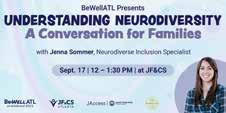
Shifting Perspectives Understanding Neurodiversity: A Conversation for Families – 12 to 1:30 p.m. Jenna Sommer, Neurodiverse Inclusion Specialist, returns for Part 2 of JF&CS series. Families will take a deeper dive into specific learning profiles (this session will focus on Autism), explore best practices for sharing information with others, and discuss strategies for supporting all families in their communities. Get tickets at https://tinyurl. com/3dhh49dc

Helen Marie Stern Citywide Challah Bake – 7 to 9 p.m. Join JWC Atlanta for the Helen Marie Stern Citywide Challah Bake to welcome the High Holiday season with learning how to make challah for Rosh Hashanah. Each registered participant will take home two challahs! Register at https://tinyurl. com/mpm96w59.

Hadassah Metulla Theater Party
– 7 to 9:30 p.m. Please join the Hadassah Greater Atlanta Metulla Group to see, “Ring of Fire: A Johnny Cash Musical.” This unique musical is about love and faith, struggle and success, rowdiness and redemption, and the healing power of home and family. Location revealed upon registration. RSVP at https://tinyurl.com/2ajus3nk.
LGBTQ+ Paint Night – 7:30 to 9:30 p.m. Enjoy a creative night out! Get together with other LGBTQ+ religious Jews to connect, make new friends, and get messy. We’ll be making spin art together – a fun, hands-on activity where you can let loose and create something beautiful. Purchase tickets at https:// tinyurl.com/bdh9ubsp.
Torah Reading: Nitzavim
Friday, September 19 Light Shabbat Candles: 7:20 PM
Saturday, September 20 Shabbat Ends: 8:14 PM Rosh Hashanah
Monday, September 22 Light Holiday Candles at 7:16 PM
Tuersday, September 23 Light Holiday Candles after 8:09 PM (from a pre-existing flame)
Wednesday, September 24 Holiday Ends at 8:08 PM
Torah Reading: Vayelech
Friday, September 26 Light Shabbat Candles: 7:10 PM
Saturday, September 27 Shabbat Ends: 8:04 PM

EngAge Day at the MJCCA – 9 a.m. to 2 p.m. Feed your mind, body, and soul with a variety of engaging activities and connect with other older adults! Options will include fitness classes, educational programs, guest speakers, and more. Choose three activities of your choice. Register at https://tinyurl. com/29pcrvp4.
– 11 to 11:15 a.m.
The blowing of the shofar, or ram’s horn, is an important part of the Jewish High Holiday season. There is a special tradition of blowing the shofar in the days leading up to Rosh Hashanah to remind us to “wake up,” reflect on the past year, and begin the spiritual preparation for the High Holiday season. All are invited to listen to the shofar in the main lobby and Brill Family Fitness Center. Free and open to the community. Find out more at https:// tinyurl.com/mt98pceb.
Torch of Liberty 2025 – 6 to 9 p.m. Join the ADL for our annual Torch of Liberty Award Celebration honoring Principal and CEO of Jamestown, Matt Bronfman. Registration available online at https://tinyurl.com/mssyxr5u.

Pre-Rosh Hashanah Challah & Babka Bake – 7 p.m. Join Chabad of Gwinnett and learn how to knead and craft the perfect round challah with a delicious chocolate-filled twist! Enjoy a curated tasting of sweet and savory creations perfect for Yom Kippur. RSVP at https://tinyurl.com/2wna7ayb.
Daily Shofar Blasts – 11 to 11:15 a.m.
The blowing of the shofar, or ram’s horn, is an important part of the Jewish High Holiday season. There is a special tradition of blowing the shofar in the days leading up to Rosh Hashanah to remind us to “wake up,” reflect on the past year, and begin the spiritual preparation for the High Holiday season. All are invited to listen to the shofar in the main lobby and Brill Family Fitness Center. Free and open to the community. Find out more at https:// tinyurl.com/mt98pceb.

Music & Play – 10 to 11 a.m. Let’s spark joy and curiosity through the magic of music and play! Jumpstart your morning with an upbeat, interactive music and movement class led by Here We Grow, where little ones can dance, wiggle, and sing their hearts out. Afterward, Nurture invites children into a world of themed sensory play and hands-on adventures — perfect for curious minds and messy fingers. Come ready to move, create, and make memories together! Register at https:// tinyurl.com/mpftwc7z.
PJ Library Intown Happy Challah Days – 10 to 11:30 a.m. Join PJ Library for a sweet start to the new year! Families with young children are invited to roll, braid, and bake their own round challah rolls in celebration of Rosh Hashanah. Enjoy stories, songs, and hands-on fun as we get ready to welcome a new year full of hope, joy, and delicious traditions. All materials are provided, just bring your little bakers and big smiles! Register at https://tinyurl.com/ssr56bzf.

Atlanta Jewish Veterans Monthly Meeting at The Breman – 10 a.m. Jewish War Veterans 2025-2026 season is off to a great start; we have scheduled a visit to the Breman Museum. This is an open invitation to everyone. Find out more at https://tinyurl. com/47n4vw74.

Monday, September 22
High Holidays at Congregation Ner Tamid (West Cobb) – 7:30 to 9:30 p.m. Join Congregation Ner Tamid (West Cobb) for Erev Rosh Hashanah. Register at https://tinyurl.com/3t24hh9k.

High Holidays at Congregation Dor Tamid – 8 p.m. Join Congregation Dor Tamid for Erev Rosh Hashanah. Learn more at https://tinyurl.com/yhyj84m9.
Tuesday, September 23
High Holidays at Congregation Ner Tamid (West Cobb) – 10 a.m. to 12 p.m. Join Congregation Ner Tamid (West Cobb) for Rosh Hashanah. Register at https://tinyurl.com/3t24hh9k.
High Holidays at Congregation Dor Tamid – 10 a.m. to 4 p.m. Join Congregation Dor Tamid for Rosh Hashanah. Learn more at https://tinyurl.com/ yhyj84m9.

Wednesday, September 24
Rosh Hashanah in Gainesville, GA –9:30 to 12 p.m. At Chabad of Hall County, it doesn’t matter what your Jewish background or beliefs are. It doesn’t matter how often you’ve stepped foot in a synagogue — or even if never at all. We’ll take great strides to ensure your High Holidays are meaningful, inspiring, and filled with joy. We take joy seriously at Chabad. It’s at the heart of everything we do. We worship with joy. We kibbitz with joy. Even the price of admission will put a smile on your face. It’s free. Advanced RSVP at https://tinyurl.com/ycahswkz is required.

High Holidays at Congregation Dor Tamid – 10 a.m. to 2 p.m. Join Congregation Dor Tamid for Rosh Hashanah. Learn more at https://tinyurl.com/ yhyj84m9.
Thursday, September 25
High Holidays at Congregation Dor Tamid – 5:45 p.m. to 8 p.m. Join Congregation Dor Tamid for Erev Shabbat Shuvah. Learn more at https://tinyurl. com/yhyj84m9.
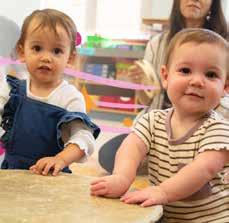
Friday, September 26
Music & Play – 10 to 11 a.m. Let’s spark joy and curiosity through the magic of music and play! Jumpstart your morning with an upbeat, interactive music and movement class led by Here We Grow, where little ones can dance, wiggle, and sing their hearts out. Afterward, Nurture invites children into a world of themed sensory play and hands-on adventures — perfect for curious minds and messy fingers. Come ready to move, create, and make memories together! Register at https:// tinyurl.com/mpftwc7z.

Harlem Quartet Featuring Aldo López-Gavilán, Piano – 8 to 10 p.m. Acclaimed for its dynamic performances and fresh approach to classical music, the Grammy Award-winning Harlem Quartet is joined by Cuban pianist and composer Aldo López-Gavilán for a program full of exuberance and spirit in a mesmerizing combination of classical perfection and virtuoso jazz featuring Schumann’s beloved, “Piano Quintet in E-flat Major,” followed a journey through Cuba’s myriad musical traditions with works by López-Gavilán. Listen to their sounds at the Schwartz Center for Performing Arts by purchasing tickets at https:// tinyurl.com/3ym9wnud.

Saturday, September 27
Shabbat Hadasha: A New Shabbat Morning Experience – 10 a.m. to 12 p.m. Ever feel like the words in the siddur (prayer book) aren’t speaking your language? Or maybe they do, but you’re craving something deeper? Introducing Shabbat Hadasha: A Contemplative Shabbat Morning Service — think fewer words, more meaning. Less rush, more time to find meaning and personal connection in the essence of the prayers. Through chant, meditation, learning, and reflection, Rabbi Lauren from Congregation Or Hadash will guide us beyond the page and into what really matters. Find out more at https://tinyurl.com/252d46uz.0927

Sunday, September 28
Tashlich in the Park – 4 to 5:30 p.m. Join Rabbi Mark and Linda Zimmerman from Congregation Beth Shalom at Garrad Landing Park for Tashlich. Take a short nature hike to a Chattahoochee River overlook where we practice in the practice of Tashlich. Bring a snack or picnic dinner and stay after to hang out with friends on the playground. Learn more at https:// tinyurl.com/yph25ehw.

Monday, September 29
Mensches in the Kitchen – 9:30 to 10:30 a.m. Mensches in the Kitchen is a joyful, hands-on series where toddlers explore Jewish values through food and play. Each week, little ones will engage in taste-safe sensory activities, simple cooking and sharing, and interactive storytelling — all designed to nurture kindness, gratitude, and care for the world around us. Grown-ups will take home easy ideas and blessings to bring Jewish learning into the kitchen and everyday life. Let’s raise kind, curious mensches — one sweet moment at a time. Register at https:// tinyurl.com/47rurahm.
High Holidays at Congregation Dor Tamid – 10 a.m. to 6 p.m. Join Congregation Dor Tamid for a personal Yizkor experience. Learn more at https://tinyurl.com/yhyj84m9.
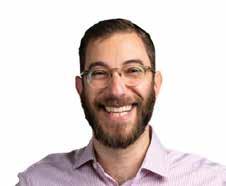
Hadar Atlanta: Bad Habits from the Garden of Eden – 12 to 1 p.m.
Hadar Atlanta is coming to The Dupree Conference and Education Center. Join Rabbi Ayal Robkin, incoming director of Hadar Atlanta for a lunch and learn. RSVP at https://tinyurl. com/3m28dv4v.

Tuesday, September 30
Shalom Siporim: Hebrew Storytime – 10 to 11 a.m. Join Nurture for Shalom Siporim, a joyful Hebrew-English story time designed especially for toddlers and their grown-ups! Through engaging stories, playful songs, and simple movement activities, young children will be introduced to Hebrew words and Jewish culture in a warm and welcoming environment. No Hebrew experience necessary — just bring your curiosity and love of stories! No class week of Sept. 23 in observance of Rosh Hashanah. RSVP at https://tinyurl. com/54we57xj.
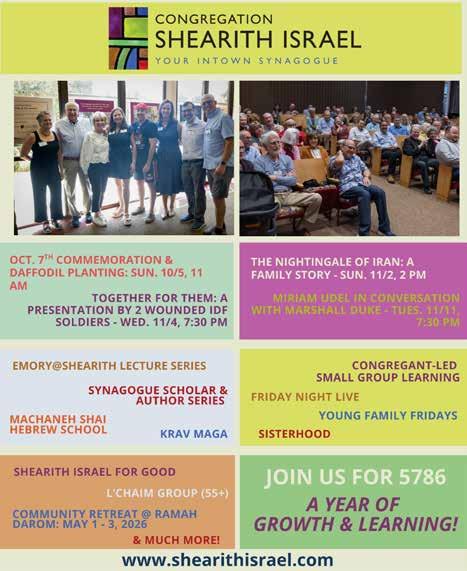







Ingredients
6 tablespoons margarine
1 and 1/8 cups Flour
1/2 cup oats
6 tablespoons packed brown sugar
1/8 teaspoon salt
1 teaspoon cinnamon, optional
8 ounces Gefen Cherry Pie Filling or 1 cup fresh pitted cherries or frozen cherries, defrosted
4 apples, peeled and diced or thinly sliced
Directions
1. Preheat the oven to 375 degrees Fahrenheit.
2. Mix margarine with flour, oats, brown sugar, salt and cinnamon.
3. Press two thirds of the mixture into a nine-inch pan. Pack it firmly.
4. Mix cherries and apples and spread over the crust.
5. Sprinkle the reserved crumb mixture as topping.
6. Bake for 40 to 45 minutes.
Recipe by Bruchy Duschinsky Kosher.com

Abe was 75 years old and had a medical problem that needed complicated surgery. Because his son, Jacob, was a renowned surgeon, Abe insisted that Jacob perform the operation.
On the day of his surgery, as he lay on the operating table waiting for the anesthetic, Abe asked to speak to his son.
“Yes, dad, what is it?”
“Don’t be nervous, Jacob. Do your best and remember, if it doesn’t go well, if G-d forbid something should happen to me, your mother is going to come live with you and your wife.”
n. A person who can’t stop nibbling on food for virtually the entire day.
“Rozzie is a gnoshaholic. That’s why she wears sweatpants with an elastic waistband.”
From the Yiddish, “nosh,” meaning, “nibble.”

By: Yoni Glatt, koshercrosswords@gmail.com
Difficulty Level: Manageable
ACROSS
1. Dangerous treif animal
5. Oil woe
10. Accomplished
13. Archipelago part
14. Mass revelation locale
15. Kind of poem
16. 2012 Taylor Swift hit
18. Nada
19. .gif, for one
20. Protein powder purveyor
21. Eruptive Italian landmark
22. 1983 U2 hit
25. First name in (Jewish) comedy
28. Society Ms.
29. Take a licking
30. Met solo
32. Ahab, to Yehoram
34. “Are too!” reply
37. 1986 Bon Jovi hit
40. NHL great Selanne
41. Asian car
42. Kind of iron
43. Bandcamp upload, likely
45. D.C.-based news org.
47. An appendage
48. 1980 hit by Kool & The Gang
52. Actresses Thompson and Michele

This week, 100 years ago
53. Ending for some pasta varieties
54. Small sampling
58. Misstep
59. 1974 ABBA hit
61. Fruit of Israel
62. Dedicatee of Ludwig
63. Relocate
64. “Fore!” site?
65. Some competition
66. “As ___ going to St. Ives”
DOWN
1. Big name in Israeli politics
2. Big name in Israeli food production
3. A real piece of scum
4. Rule
5. Medicare minders, initially
6. Treif repository?
7. Foolish
8. Not rabbinic
9. Hoopster Jeremy
10. “C’mon... we all know you’re guilty”
11. She played Elphaba
12. Air traveler’s headache
17. Pete “Maverick” Mitchell has it

United Synagogues of America announces the placement of Jewish prayer books on several ocean liners.
NY Governor Alfred E. Smith declares Jews an “asset to America” in a message for Rosh Hashanah.
This week, 75 years ago
40,000 Jews are “literally rotting” in the Casablanca mellah, according to the president of Women’s American ORT.
In Fulton County, 17 women’s organizations pledge support of program to recruit women’s blood donors for the Red Cross.
Cantor Joseph Schwartzman celebrates 10 years of service at Ahavath Achim with a midnight selichot service.
Rabbi William Silverman, who would later go on to console the Nashville community after the still-un-
solved JCC bombing in 1958, takes up the pulpit of the Vine Street Temple there.
Cantor Joseph Schwartzman, chazan of the Ahavath Achim Synagogue of Atlanta from 1940-1966.

This week, 50 years ago
Israel and Egypt sign the Sinai II Agreement.
Two recent naming ceremonies at Ahavath Achim are announced for Ellen and Dan Katz’ new daughter, Erica, and Etti and Michael Alon’s new daughter Tamar.
Congregation Beth Shalom celebrates first High Holiday services
In London, a march by the Nazi National Front on the first day of Rosh Hashanah is upstaged by a counter demonstration by the Hackney Trades council, which boasted four times the number of marchers.
for speed
21. Funny Susie
23. Song from the classic Stonecutters episode of “The Simpsons”
24. Noise from a pride
25. Microbrewer’s need
26. Albany’s canal
27. Spent extravagantly
31. Belonging to singer Mann
33. Most petite
35. “Wine” prefix
36. One of two notable ones in Genesis
38. Deprived of sensation
39. Big nickname at Fenway
44. American League bird
46. “Goodbye Columbus” author
48. Chin crevice
49. Homophone of 26-Down
50. Actress Murphy
51. Woman in a megillah
55. It might cause a delayed opening
56. Sport-sandal brand
57. “And the ___ of them both were opened” (Genesis 3:7)
59. Bottom line in the fashion world?
60. Israeli TV network
This week, 25 years ago
Rabbi Mario Karpuj and Rabbi Analia Bortz, who would go on to found Or Hadash, move from Vina del Mar in Chile to take assistant Rabbi positions at Ahavath Achim.
Following his bar mitzvah, Zac Singer opts out of party to celebrate with giant family hiking trip to Peru.
“Barnum’s Kaleidoscape,” the brainchild of Jewish entertainment impresario Kenneth Feld, comes to Atlanta.
The AJT covers the Jacobson “Fencing Family” – father David, mother, Tina, and daughters, Jackie, Sada, and Emily, the latter two of whom would become Olympians in sabre fencing.
Issues of the AJT (then Southern Israelite) from 1929-1986 can be found for free online at https:// gahistoricnewspapers.galileo.usg.edu/lccn/sn78003973/

Rae was the eldest daughter of Ida and Wolf Sugarman formerly of Lodz, Poland, then immigrated to Wilmington, Del. Rae was born on July 12, 1937, in Wilmington. As a teacher spanning over 55-plus years, she touched many lives. Rae would only teach at Jewish schools, The Epstein School and The Hebrew Academy (AJA). That’s where she felt at home. She wanted to infuse the children with some Jewish identity and ignite their Jewish Neshama! Till only recently students from as far back as 45 years recognize her (and her trademark red hair) and came up to her to share a memory or two. Rae was an integral part of many charitable organizations. AMIT Women and The Sisterhood of Beth Jacob were two of her favorites, her labors of love. Rae is survived by her two children: Rabbi Barry Klein (and Rachel) of Har Noff, Israel, and Lisa Klein of Englewood, N.J. She was the quintessential Savta of: A.J. and Orah, Donny, Ari, Yehuda and Batya, Tehilla Malka and Avi, Chaya Sara and Yisrael, Nechama Leah and Nechemia, Rivka, Hadassah, Elisheva, Shoshanah and Ahuva, and seven great-grandchildren! Most reside in Israel. Rae was blessed to have seen them all in her last trip to Jerusalem this past Chanukah. A graveside funeral was held on Sept. 8 at CrestLawn Memorial Park in Atlanta. She was buried next to her beloved husband, Morris Bellman, of over 40 years. Contributions can be sent to: The Torah Center ATL- C/O Rabbi Ari Sollish- 5180 Roswell Road- Atlanta-Ga-30342-(404) 333-8554 OR Beth Jacob Synagogue - 1855 LaVista Rd-Atlanta-Ga-30329. Arrangements by Dressler’s Jewish Funeral Care, 770-451-4999

Ellen Drucker, 86, of Dunwoody, Ga., passed away peacefully on Sept. 6, 2025. Born Oct. 12, 1938, in St. Louis, Mo., Ellen lived a life defined by resilience, determination, and compassion.
Though she lost her sight in early adulthood, Ellen never allowed blindness to limit her accomplishments. She graduated from college and went on to earn a master’s degree, becoming an inspiration to all who knew her. Friends and colleagues often marveled that, upon first meeting her, they could hardly believe she was completely blind.
Ellen devoted over 30 years of service to the Social Security Administration, where she coordinated training programs across the Southeast. She took great pride in her work and the impact it had on countless individuals. In 1962, Ellen married the love of her life, Ted Drucker, with whom she shared many happy years until his passing in 2005. She is survived by her son, Martin Drucker, daughter-in-law, LuAnn, and her cherished grandchildren, Adam and Jordan Drucker, who were the light of her life.
Ellen made her home in Dunwoody in 1979, where she was an active member of the local Jewish community. She was also a generous supporter of many charities, always mindful of the struggles others faced. Known for her kindness, strength, and unwavering spirit, Ellen leaves behind a legacy of love, perseverance, and service.
A celebration of life will be held on what would have been Ellen’s 87th birthday, Oct. 12, 2025, at 12 p.m. at Dressler’s Chapel, 3734 Chamblee Dunwoody Rd., Atlanta, GA 30341. Memorial contributions may be made in Ellen’s memory to the American Foundation for the Blind, www.afb.org. She will be deeply missed by her family, friends, and all who had the privilege of knowing her. Arrangements by Dressler’s Jewish Funeral Care, 770-451-4999.
Dr. Edward Fetherolf, age 89, of Osprey, Fla., died Aug. 25, 2025. He is survived by his loving daughters, Lisa and Lauren Fetherolf. Dr. Fetherolf was born Feb. 11, 1937, to James M. and Eloise Fetherolf (nee Cheney). He grew up in Greenwich, Conn., and White Plains, N.Y. He earned his bachelor of science degree from Pennsylvania State University, master’s degree from Boston University, Ph.D. in biology from Temple University Medical School, and his M.D. from the Medical College of Pennsylvania. He was a board-certified ophthalmologist working in Englewood and Venice, Fla., for over 40 years. He earned honors, including being a distinguished member of the American Academy of Ophthalmology and American Society of Cataract and Refractive Surgery. He achieved the prestigious recognition of being a part of the Leading Physicians of the World. In his free time, Dr. Fetherolf enjoyed boating, canoeing, snorkeling, and walking his beloved dog, Ernie. Dr. Fetherolf was dedicated to his practice and to his surviving daughters. He will be greatly missed and live on through his daughters.
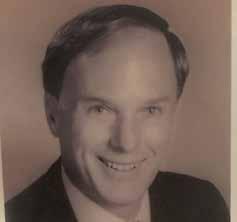

Life-long Thomaston, Ga., resident Charles Kass, passed away on Saturday, Aug. 23. He was 82 years old.
Charles was born on Dec. 29, 1942, the son of Irving and Gussie Kass. He was named after his grandfather, Charles Kass, who was the founder of Charles Kass Company, a clothing store which was on the town square for decades. After attending the Robert E. Lee Institute, Charles worked in the family business and, later, became its owner. After selling his business, Charles worked as a salesperson at Reems Jewelers.

Charles’ great interest throughout his life was the movies, particularly the musicals of the 1930s, 40s, and 50s. Saying that he was a fan is an understatement; he was an expert. His movie knowledge was encyclopedic, but he also possessed a very deep appreciation of the artistry and craftsmanship of film. And he spread his love for the movies through his movie reviews which appeared in The Thomaston Times.
Charles was also known for his wit, which came across through his storytelling about life in Thomaston. He was an excellent mimic, which added so much to his humor.
Above all, Charles was a true Southern gentleman — kind and courteous, and a man of integrity. These attributes won him many loyal customers in his business career, and won him many loyal friends throughout his life. He simply loved people, and people loved him back. Charles will truly be missed.
The graveside funeral service was held on Tuesday, Aug. 26, at the Bonaventure Cemetery in Savannah, Ga.
Charles is survived by his cousins: Kass Cohen, Seth and Stephanie Cohen, Jan Kres, Mark and Janet Kres, Jay Kres, Eddie Wolff, and Roslyn and Jack Palmer.

Howard Sydney Rothman, 89, of Atlanta, Ga., passed away peacefully at home, on Saturday, Aug. 30, 2025. He leaves behind his devoted wife of 43 years, Susan Rothman, and his children, Sheindl Rothman and Jack Rudnicki (Montreal, QC), Michael and Rhonda Rothman (Atlanta), Karen and Murray Diamond (UK), Aviva and Clemens Reuter (Switzerland), Amy and the late Jeremy Rosenberg (Atlanta), and Joshua Rosenberg and Alison Fine (Boston, Mass.). He is also survived by 11 grandchildren and two great-grandchildren, by his sister and brother-in-law, Kay and Jack Wolofsky, nieces and nephews, and cousins.

Howard grew up in Montreal, caring son of the late Harry and Rose Rothman. He graduated in civil engineering from McGill University in 1958, winning the British Award Medal for Great Distinction. The construction company he co-founded fresh out of university, Secant, left its mark on the Montreal scene, notably the Peel, Champs de Mars, Laurier, Sauvé and Place d’Armes Metro stations. He wore his iron ring with pride. In Atlanta, Howard was a commercial real estate developer with focus on multifamily homes and commercial buildings. He was a devoted husband and dad and an interested and caring “Howie’’ to his grandchildren.
Howard was an optimistic and positive person, always ready to lend a hand. He was charming, complimentary and appreciative. He enjoyed traveling with Susan, duck hunting and fly fishing, weather watching, comics and cartoons. The lives Howard touched now bear the sorrow of his passing but also the beauty of having known him.
A memorial service for Howard will be held on Thursday, Sept. 11, at 10 a.m. at Temple Sinai. 5645 Dupree Dr. NW. Sandy Springs, GA 30327. The service can be viewed live. The link to stream: www.vimeo.com/showcase/tslifecycle
In lieu of flowers, donations can be made in Howard’s memory to Agape Hospice of Marietta, Ga. www.sagefoc.com/agape-ga




Freida Shaffer loved nothing more and was never happier than when she was gliding across the dance floor to “Stardust” with her husband of more than 60-plus years, Max Shaffer. You would immediately notice her beauty and grace, her comfort in the spotlight, and her love of fashion. Beyond the dance floor, Freida loved an afternoon with friends – playing mahjong, bridge (a master level player), or canasta. She loved a two-week cruise, chaperoning a seventh-grade field trip, a birthday lunch with the “Good Time Girls,” or even a trip to the movies with a box of her favorite Jordan Almonds.

Freida grew up in Atlanta, living on the bottom floor of an apartment building on Durant Place. Upstairs lived her best friend, Betty Ruth, and downstairs, the woman who took care of her, Venita and her husband. She went to Smiley School and then, when it was time for Girls High, her family moved to what she described as the country which was a house on Roxboro Road.
Freida was capable, fierce, and strong. Freida had a big scar on her right knee from when her father taught her to ride a bicycle. He took her to the top of a nearby hill, told her to climb on and she did. After the bloody fall, Freida got right back up, climbed the hill again and again until she learned to ride. She learned to drive a truck at 10 – accompanying her father, Mack Frankel, to the farmers market each week to buy produce. He would walk the stalls, and she would follow behind in the truck. She also worked in her father’s downtown grocery store, Western Market, on Broad Street. For as long as she can remember, she knew how to run the register and make correct change.
She met Max at a party in 1948 at the Standard Club celebrating the creation of the state of Israel. Max noticed that she was the life of the party. She brought a group of friends home after the celebration, and her mother, Pearl, took an immediate liking to Max. Freida decided that day to marry him. And she did, in her parent’s living room, wearing a chocolate brown fitted suit and platform suede heels. The newlyweds built their home, a redbrick two-bedroom house, right next door to her parents.
While Freida raised her three children, she also worked at the Apparel Mart in downtown Atlanta, selling ladies ready-to-wear clothing. And she was celebrated as the best of the best. She knew color and fabrics and what women would love. She worked long days and made “her own money.” She was also a lifetime member of Hadassah and an active member in Congregation Shearith Israel and Shaarei Shamayim.
Freida died at home on Aug. 31. She is survived by her son, Steven Shaffer, and his wife, Sue, of Boca Raton, Fla.; son, Kenneth Shaffer, of Atlanta; and daughter, Janece Shaffer, and her husband, Bill Nigut, of Atlanta. Her grandchildren include Sydney Shaffer (Arjin Raj), Mickey Shaffer, Bill Nigut III, Emma Nigut, and Rob Miller (Karen). Her great-grandchildren include Ella and Olivia Miller, Julien Roizen and Orion Shaffer-Raj. Arrangements by Dressler’s Jewish Funeral Care, 770-451-4999
Charles “Buddy” Shainker was born in Atlanta June 11, 1927, son of Barnett and Sadye Wender Shainker. He was a beloved father, grandfather (Zayde), uncle, cousin, and friend to so many. He deeply loved each of his children and grandchildren.
Buddy was a proud graduate of Atlanta’s Boys High School (December 1944), before enlisting in the U.S. Navy where he served aboard Patrol Craft 1549 in the Pacific during World War II (1945) and in 1946. He graduated from the University of Georgia (BBA 1949) where he served very actively in Tau Epsilon Phi (TEP) Fraternity.

After college, he spent five years travelling in sales for Scripto, then 20 years in securities and investment banking with several firms. He was the first to offer discount broker commissions in the Southeast, and he introduced option writing to the Atlanta area with lectures and seminars. Buddy then began a successful 35-year sales career with Zep Manufacturing, working into his 80s (he said work kept him healthy and young). He exercised everyday into his 90s, including twice weekly tennis until the age of 94 at Bitsy Grant Tennis Center. He enjoyed watching every Atlanta Braves and UGA football game. He was a huge lifetime UGA Bulldog fan, attending his first game in 1939. He traveled and cruised extensively worldwide.
Buddy served as the youngest president of Atlanta’s Progressive Club (1960) and, for 17 years, he served on the board of Atlanta’s Ahavath Achim (AA) Synagogue where his family were charter members in 1886. He was president of the Alumni Club for TEP in Georgia and on TEP’s national governing board for several years. For many years, he actively served the Jewish Welfare Board. He also supported several charities including American Red Cross, American Heart Association, American Cancer Society, and others.
Buddy is survived by his four children (with Jacky Jordan), daughter, Eileen (Tony) Tantillo (Atlanta), sons, Kenneth (Laura) Shainker (Bedford, Texas), David (Laura) Shainker (Atlanta), and Russell (Lisa) Shainker (Atlanta), grandchildren, Lisa and Kevin Tantillo, Margaux St. Germain, Mariah Krueger, Juliet Shainker, Mike Ward, Clifton Reynolds, Brent Mayhan, Sarah Shainker Connelly (Kyle), Jessica Shainker Dolder (Ben), and Benjamin Shainker, and Brian Shainker, stepchildren, Harlan (Sherrie) Kinsler and Sharon Karlan, and step-grandchildren. Buddy was predeceased by his sister, Bernice Shainker Toran Alter.
Burial services were held on Wednesday, Aug. 27, at 2:30 p.m. at Crest Lawn Memorial Park 2000 Marietta Blvd, NW, Atlanta. Shiva followed the service until 8:30 p.m. at 520 Riverhill Drive, Sandy Springs, 30328. In lieu of flowers, donations may be given to Winship Cancer Center (Emory University), Ahavath Achim Synagogue Barnett and Sadye Shainker Memorial Fund, Bremen Jewish Home, or American Cancer Society.

Richard “Richie” Allen Stirne, beloved son, brother, friend, and respected leader, passed away on Aug. 16, 2025, in Atlanta, Ga. He was 34 years old.
Born on March 17, 1991, Richie was the son of Cynthia Stirne, Dr. Howard and Kathy Stirne.
Richie is survived by his sister, Sara Stirne; his stepsister, Holly Jones, and her daughter, Sophie. He leaves behind many friends and extended family; his best friend, Sam Stribling, and his parents Wade and Celine Stribling; and his girlfriend, Giorgi Arnett.

Richie was a graduate of Marist School, where he first began to distinguish himself as a man of intelligence and leadership.
He earned his bachelor of business administration in accountancy and master of accountancy/audit from the University of Georgia’s Terry College of Business; a member of Beta Alpha Psi Honor Society and Alpha Epsilon Pi.
Richie was marked by drive, integrity, and a remarkable ability to inspire and lead. Richie’s career led him to Ernst & Young, PriceWaterhouseCoopers, EVO Payments, Inc., Pagos (Santiago, Chile), and NCR Voyix, where he led the sale of its digital banking division to Veritas Capital in September 2024. Most recently, Richie served as the senior VP of strategic initiatives at Candescent.
Richie will be remembered for his mischievous smile, his kind heart, and his love of travel. His adventurous spirit and deep appreciation for other cultures were hallmarks of his life.
Richie had a profound love of the outdoors. His ashes will be scattered on Lake Burton, a place he greatly loved.
To share a memory or condolence to Richie’s H.M. Patterson page, search Richard Stirne https://www.dignitymemorial.com/obituaries/12494518
In lieu of flowers, donations can be made to Marist School, Atlanta GA. Please write “In memory of Richard ‘Richie’ A. Stirne ’09” in the comments at https://www.marist. com/support-marist/make-a-gift/make-an-endowment-gift
Obituaries in the AJT are written and paid for by the families; contact Editor and Managing Publisher Kaylene Ladinsky at kaylene@atljewishtimes.com or 404-883-2130, ext. 100, for details about submission, rates and payments. Death notices, which provide basic details, are free and run as space is available; send submissions to editor@atljewishtimes.com.



Please call to schedule a tour or RSVP to join us for our event this Wednesday
WEDNESDAY, SEPTEMBER 17th • 11:00AM Join us for chili, cornbread and dessert as we chat about senior
and what to expect when making the move. Ask questions, share


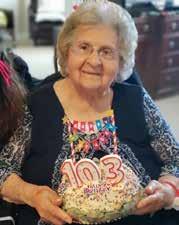


Allen H. Lipis
I often thought that a mitzvah is something very special and extraordinary. That is not the case. You can do a mitzvah for very routine actions: saying good morning, serving another to eat, drink or sleep, being honest in a transaction, feeding a child, or having a guest for lunch.
Doing mitzvos avoids being self-centered. It avoids greed, lust and self-indulgence by making others a priority. Doing good for others is not to gain their esteem, but rather to respect your principles. It binds you to the people you serve. A mitzvah satisfies both you doing the mitzvah and the person receiving it. Every act of kindness does something for the person you are helping, but it also does something intangible for you.


There is an insightful story by a wise man who sat outside a gas station in his rocking chair. He greeted people who were coming into his community or just passing through. One day, a tourist happened to stop to fill up his gas tank, and he asked the old man, “What’s this community like? The old man turned to the tourist and replied, “Well, what’s your town like? The tourist said, “I’m from a town where everyone is very critical of each other. The neighbors all gossip about everyone. It’s a negative place to live. I’m sure glad I’m leaving. It’s not a cheerful place.” The old man looked at the stranger and said, “You know this community is just like that.”
An hour or so later, a family stopped for gas, and the mother went off to the bathroom. The father went over to the old man and asked, “Is this a pretty good community to live? The old man replied, “Well, what’s your town like?” The father replied,” Well, where I’m from everyone is close to each other, and they are always willing to lend their neighbors a helping hand. There’s always a hello and a thank you everywhere you go. I really hate to leave. I feel like I’m almost leaving my family. The old man replied, ‘Well, this community is just like that.
After the family left, the old man’s granddaughter came up to him and asked, “Grandpa, how come you told the first man our community was terrible and then you told the family that it was a wonderful
place to live? The grandfather looked lovingly down into her granddaughter’s eyes and said, “No matter where you go, you take your own attitude with you, and that’s what makes your community terrible or wonderful.”
Before I married my wife, I was living in Columbus, Ohio with Marvin, a professor at Ohio State University. Marvin had a terrible attitude about life. He was 32 years old, wanted to marry, but never did, and thought he never would because he said the women would never marry a guy as old as he was. He thought younger women would not want him. I, on the other hand, was dating Judy and loving my situation.
One Shabbos morning, we went to services at one of the major conservative synagogues. We met the rabbi, and he introduced us to a couple then in their mid-fifties. They happened to be Israelis, and they told us about their eighteen year-old daughter. Their daughter was still in Israel and about to be drafted into the Israeli army. The girl did not want to go into the army. The parents said that we could do a mitzvah if one of us agreed to sign a betrothal document that said that either Marvin or I were to be married to their daughter.
Marvin agreed to do this without any thought other than doing a good deed. Believing he would never marry, he thought he was doing the parents a favor, so he signed the document. A few months later, the daughter arrived in Columbus, and Marvin was invited to the parents’ home to thank him, and to meet the daughter. Marvin came back to our apartment in love. The girl felt the same about Marvin, and they married six months later. This is a perfect example of the famous Jewish remark, “One good deed leads to another.” Helping others ends up helping yourself and that makes you happy.
The Sages say that each Jew should “specialize” in some particular area of mitzvahs. Choose one that you can excel doing in a credible, distinguished manner so you are praised by others. Work on performing at least one mitzvah perfectly. God gave us an abundance of mitzvahs to perform at least one perfectly, so when doing a mitzvah devote 100 percent of your energy, time and concentration in doing it. Take Rabbi Moshe of Kobrin’s advice. He said, “Whatever mitzvah I was busy with at the moment was the focus of my total being.” I think I know what the old man at the gas station meant. Your attitude is what you make of it. Marvin turned his attitude around by doing one mitzvah. ì
















































